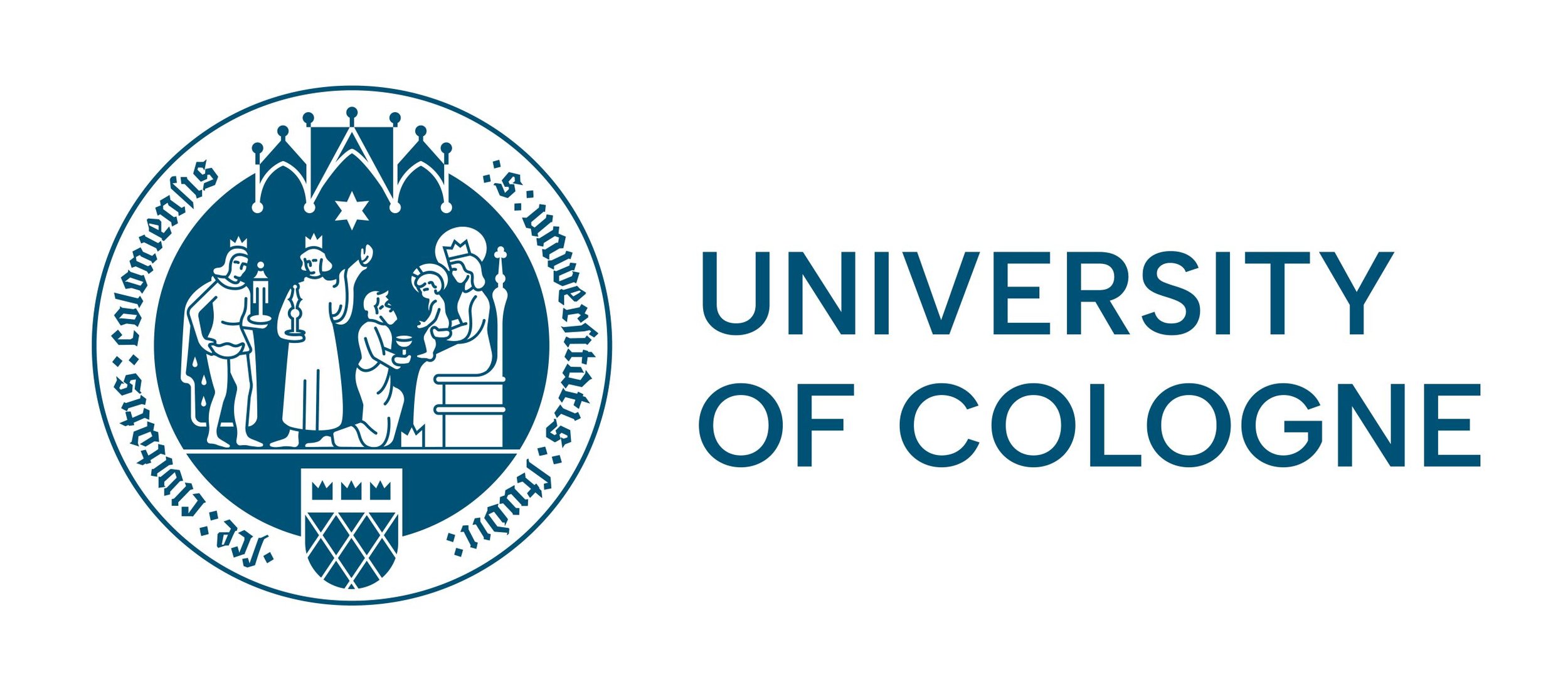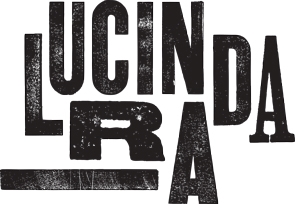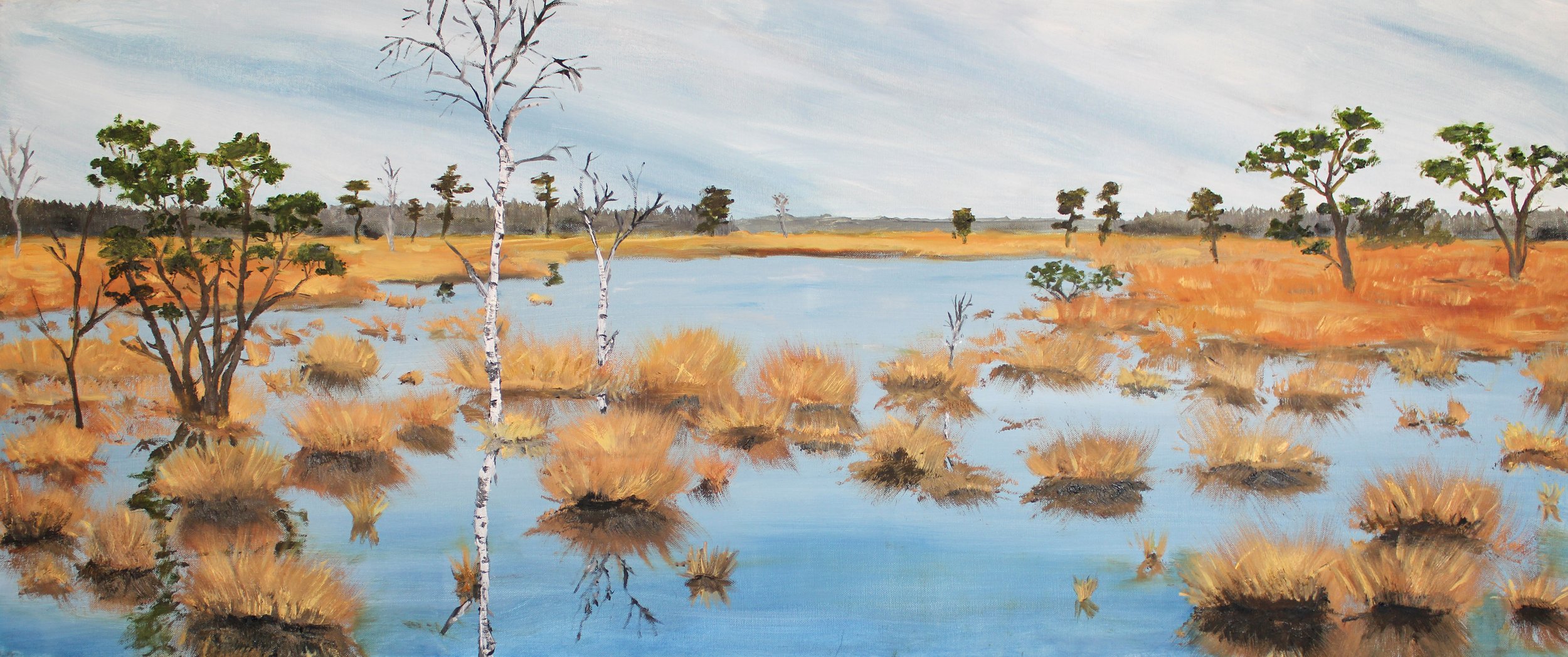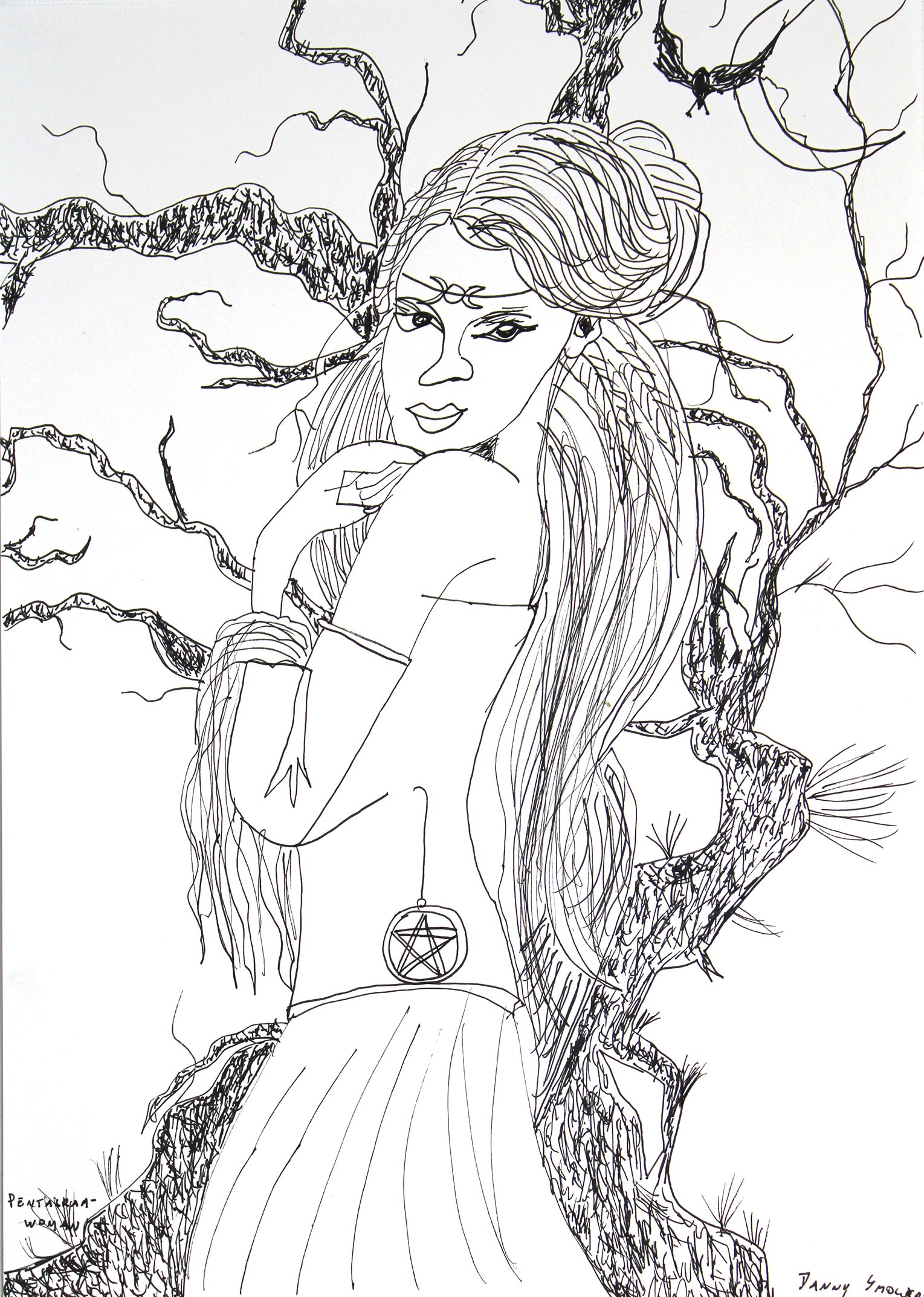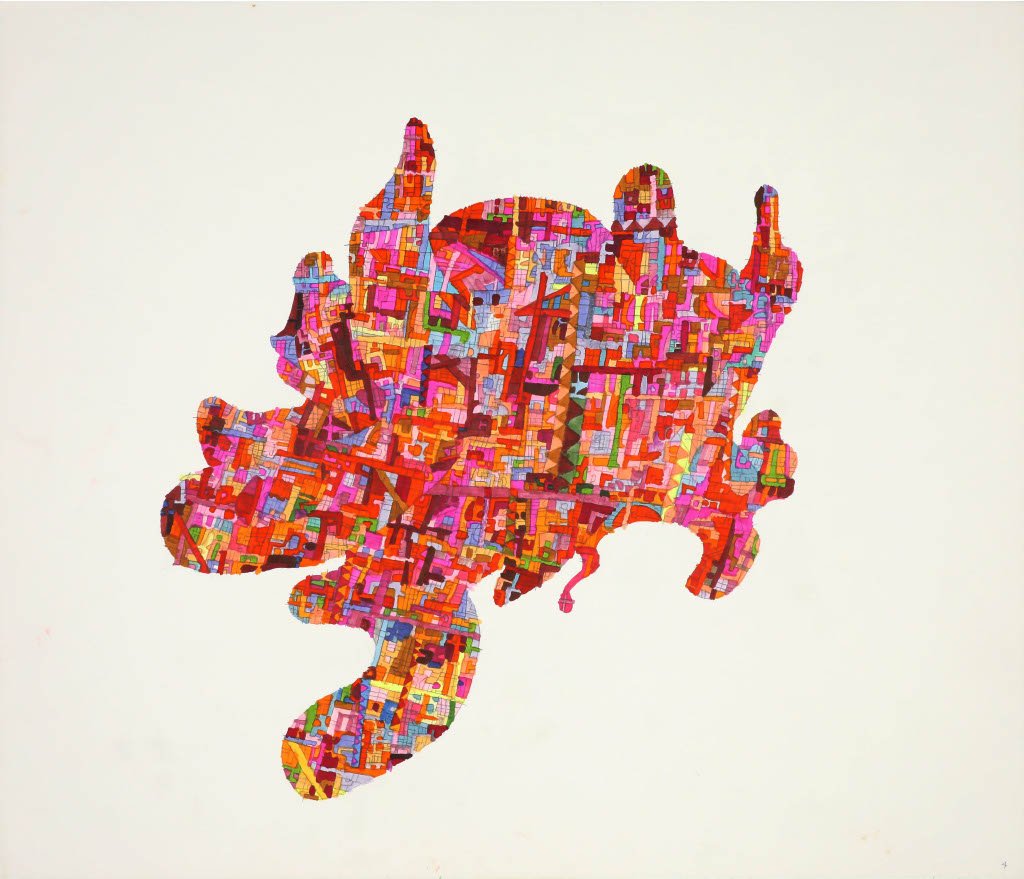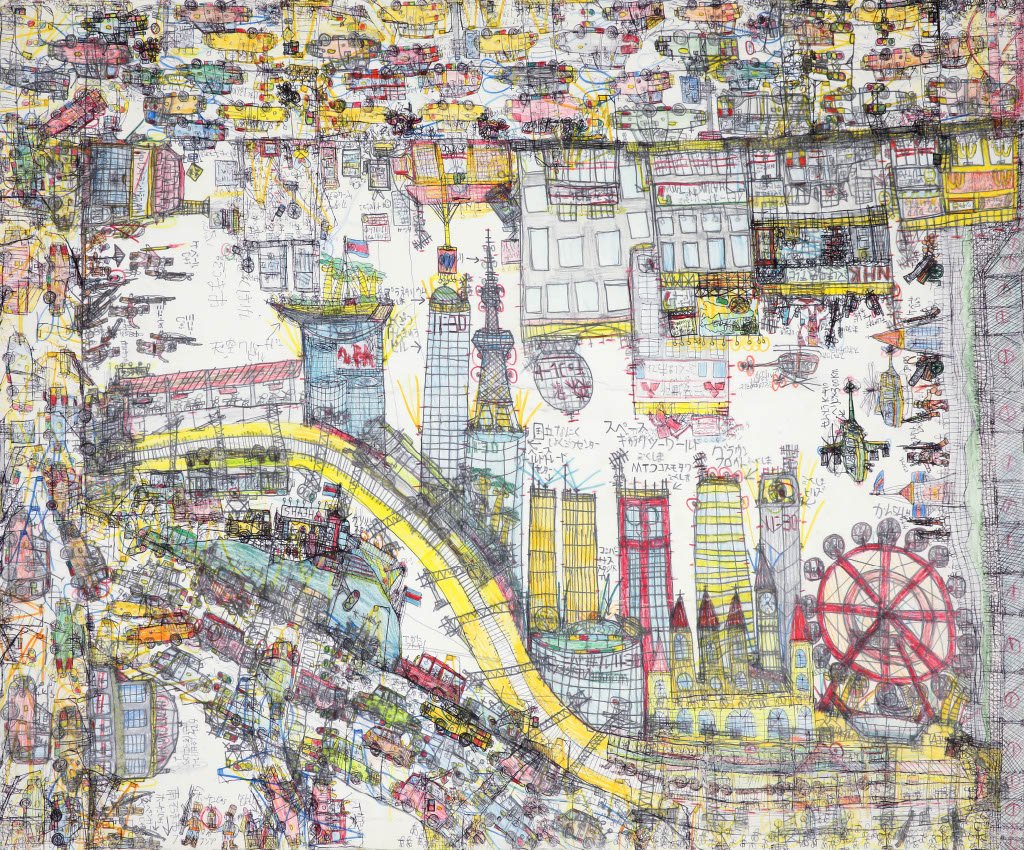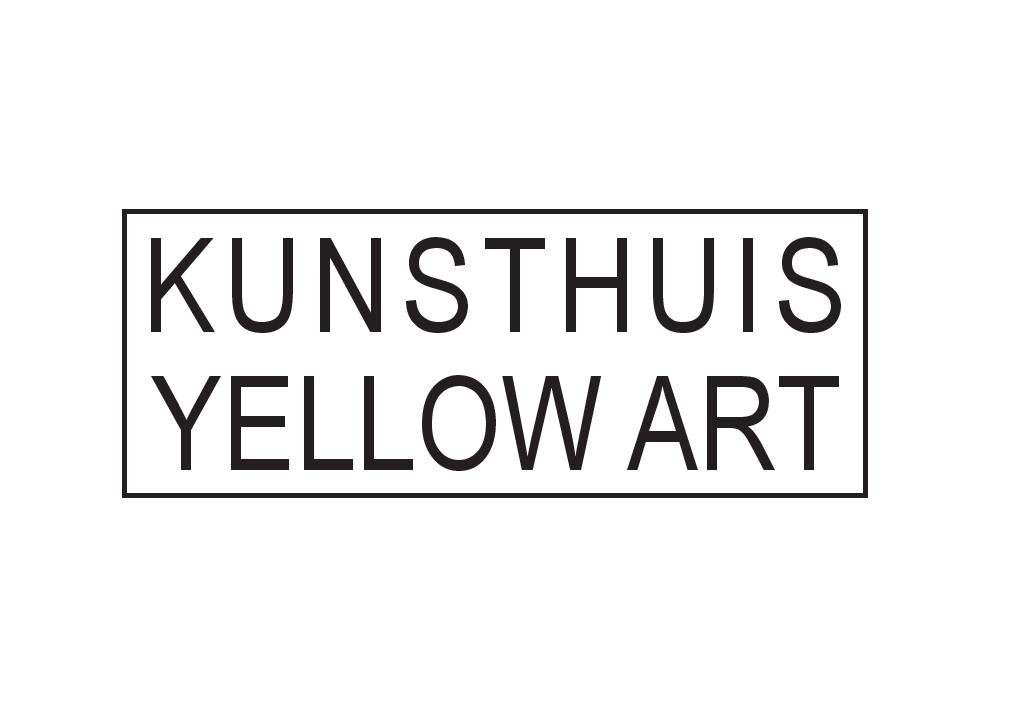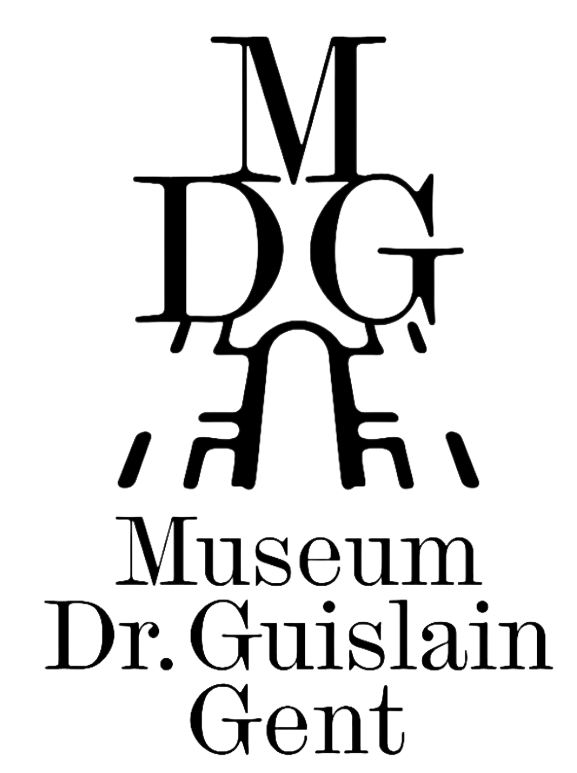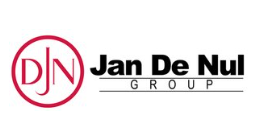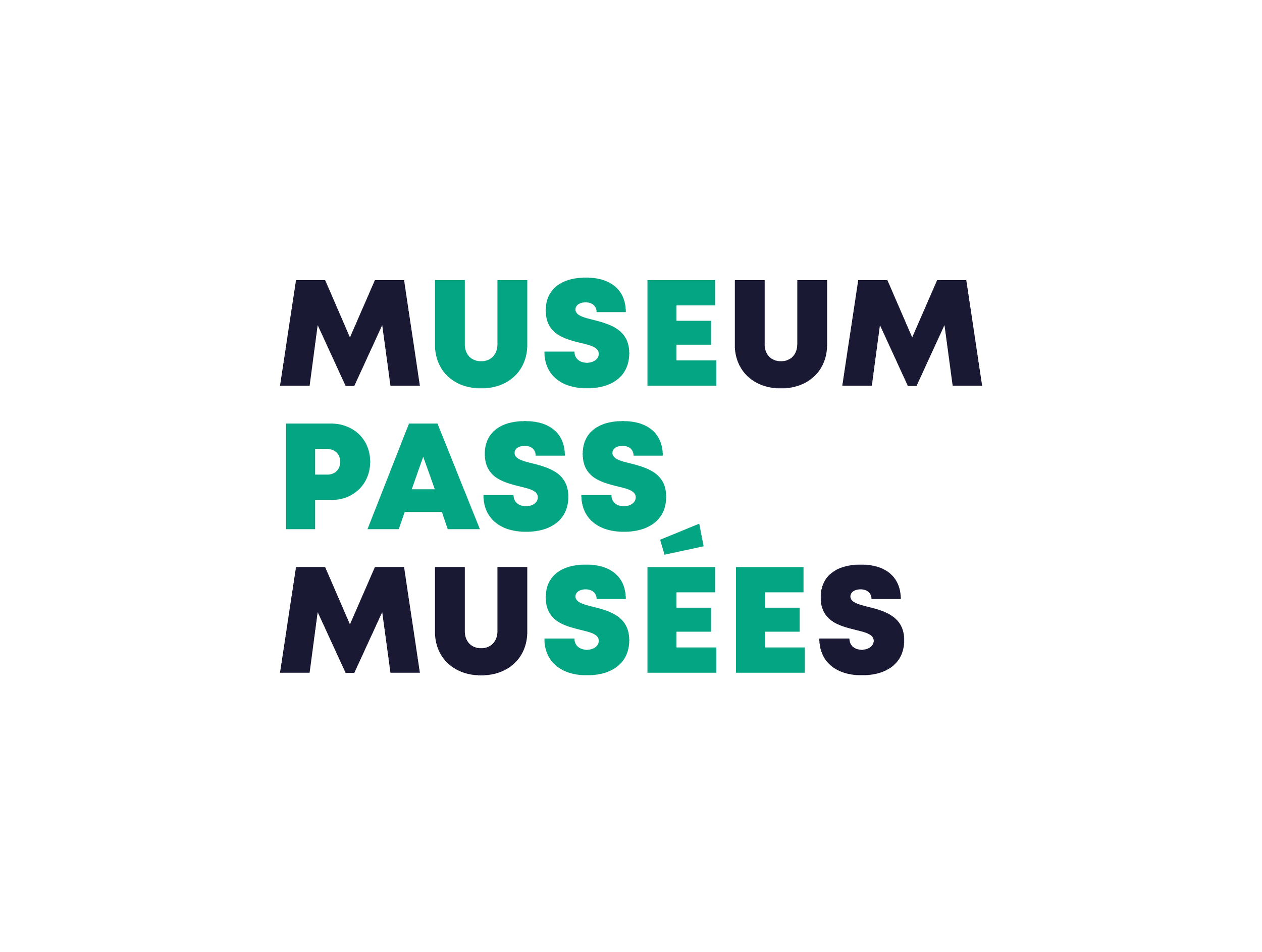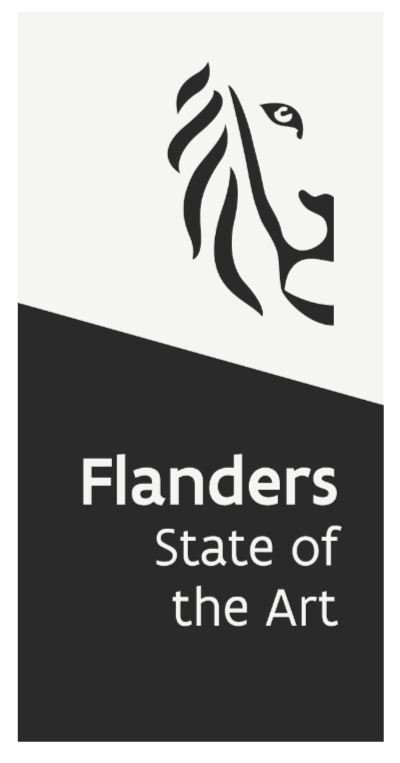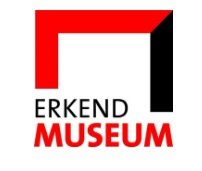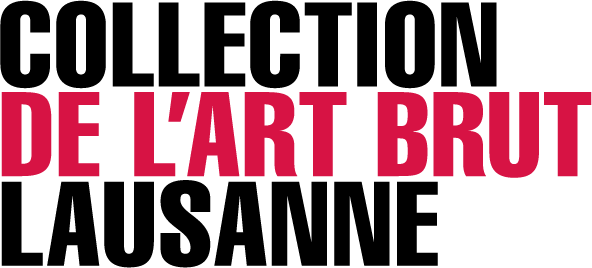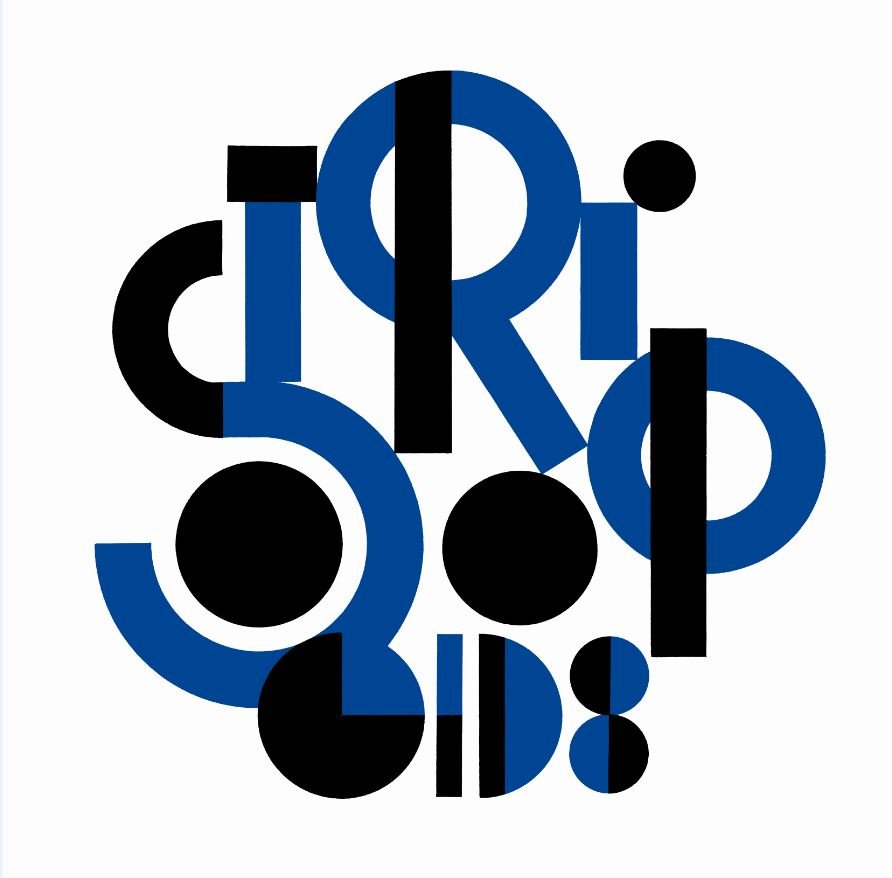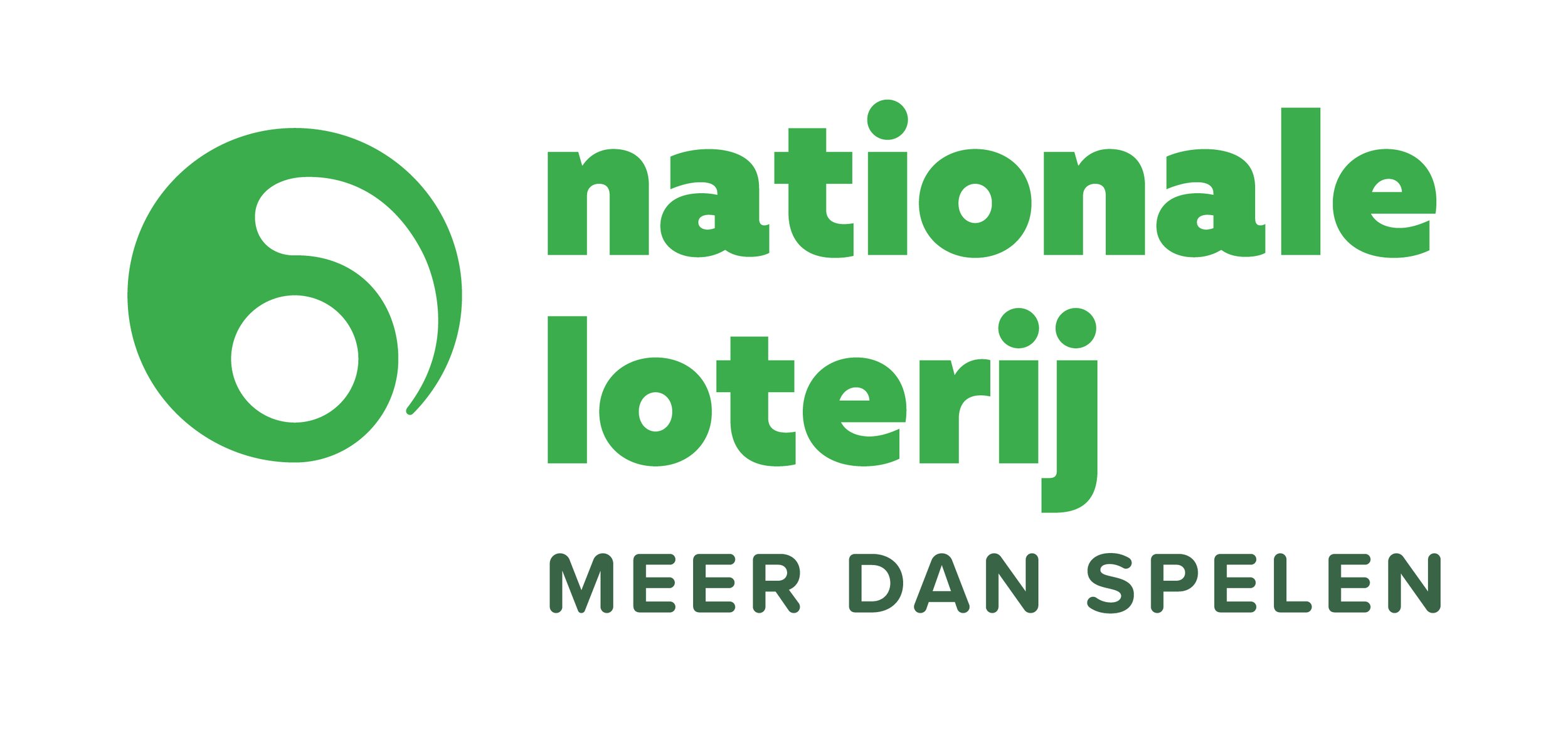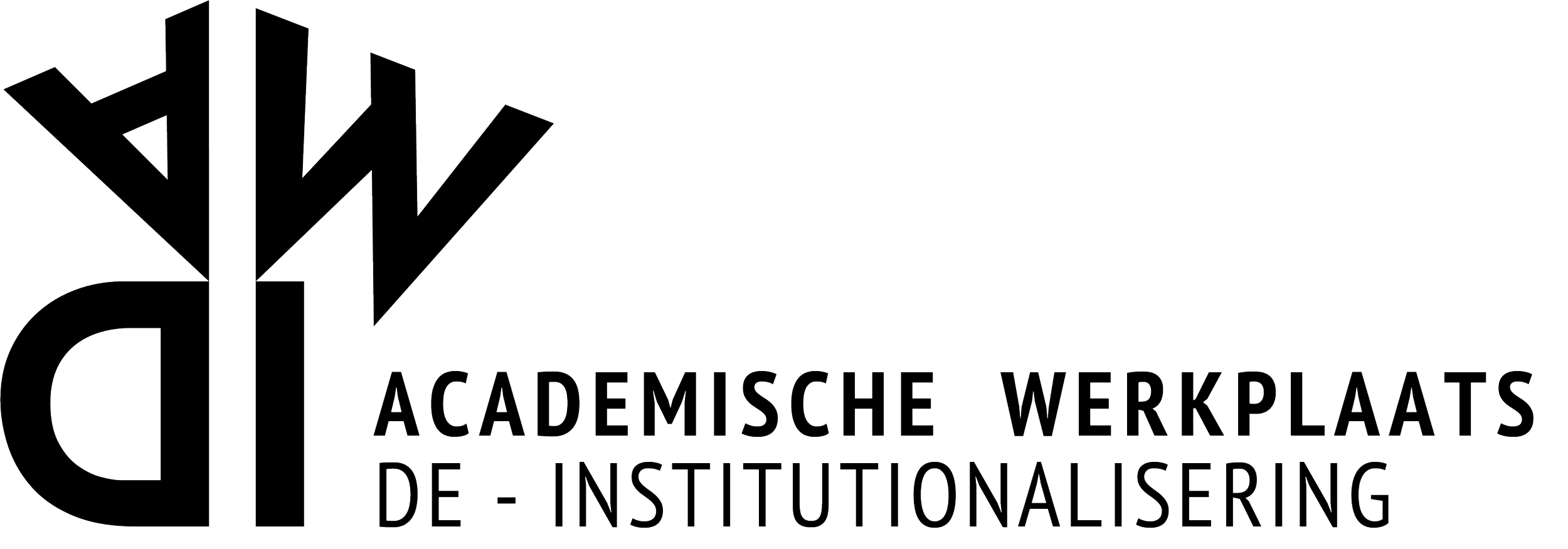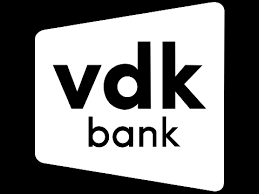
Upcoming events.

Inauguration Not Made of Wood
Foudraine in Alpbach, the place where he started writing Not Made of Wood
'I was interested in people, not in diseases. I don't meet patients, I meet people.'
Jan Foudraine (1929 – 2016)
On February 27, Marijke Foudraine-Kranenburg will donate a unique wooden copy of the famous ‘Not made of wood’, the widely translated bestseller by her late husband, progressive psychiatrist and psychotherapist Jan Foudraine, to our collection.
A book made of wood, but with a warm and beating heart.
The unique copy comes to Museum Dr. Guislain.
‘Not made of wood’ (1971) passionately advocates a social, more humane approach to psychiatric patients. A psychosocial approach like 'our' Jozef Guislain also envisioned in his time. To this day, it remains a passionate plea that is praised, reviled and honored, and is more topical than ever.
We are not hopeless, nor are we made of wood. That is why we would like to celebrate with you this special enrichment of our collection. And not just with you.
PROGRAM
(This event is in Dutch)
27.02 at 2pm (20€)
About the book and its author
Jim van Os (UMC - Utrecht)
Stijn Vanheule (Ugent)
Marijke Foudraine
27.02 at 8pm (5€)
About writing, creation & therapy
Paul Verhaege (psychologist and author)
Connie Palmen (author)
‘If the book has taught me anything, it is that so-called mental illnesses are exacerbations of all of us as human beings.’
Erwin Mortier, curator of A Home of One’s Own'The future is serious, but if you want to learn something from Foudraine, it is this: he is never hopeless.'
Paul Verhaeghe'Since its publication, the book has opened the eyes of psychologists, social workers, healthcare professionals, but also masses of committed readers, to the deep humanity in psychiatry.'
Bart Marius, artistic director of Museum Dr. Guislain
'I opposed the labeling of people with difficulties... I believed that terms such as 'neurotic', 'psychotic', 'schizophrenic', 'psychopathic', 'manic-depressive' and God-knows-what other labels in any case had nothing to do with a mysterious disease nor with anything hereditary.' Jan Foudraine

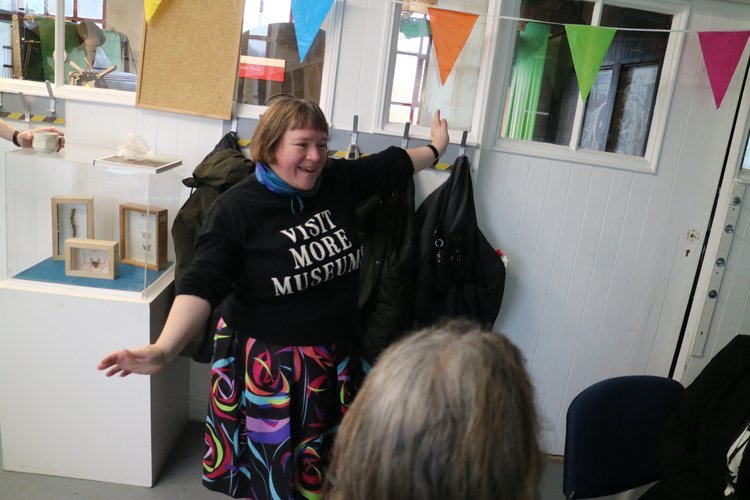
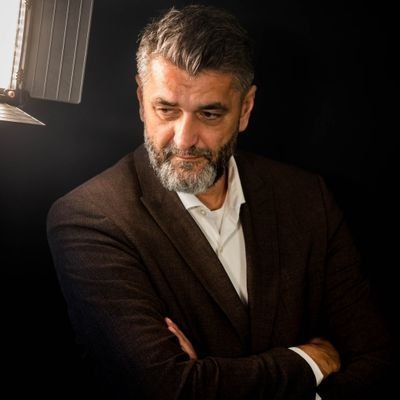


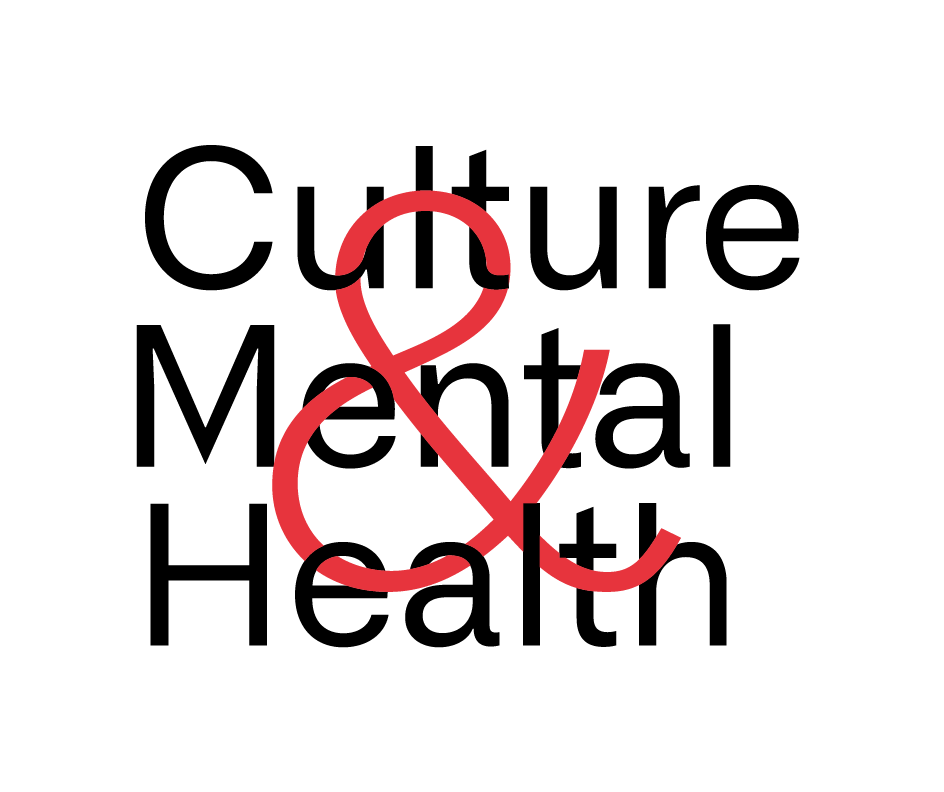
International Conference Culture & Mental Health: Refugees
Welcome to Dr Guislain Museum!
Conference aim
The second Culture & Mental Health international conference will take place in Ghent, Belgium on 28 and 29 November 2024. This conference seeks to promote learning, discussion and debate around cultural interventions aimed at improving the wellbeing of people recovering from mental health difficulties or people in vulnerable situations. The focus of this edition is on supporting the mental wellbeing of forcibly displaced people through art and culture.
In a report in 2022 the EU and WHO call for support for the mental wellbeing of forcibly displaced people through art and culture : “People displaced because of natural disasters, persecution, conflict, generalised violence or human rights violations invariably experience significant loss, physical hardships and other stressors that can lead to psychological distress. A large body of evidence shows how forcibly displaced people contribute positively to society. This potential can be further enhanced by ensuring that they are in good physical and mental health. Therefore, according to the report, it is important to support the arts, as investing in the field is an investment in the mental, physical and social health of forcibly displaced people.”
This conference wants to bring together individuals from the public, academic, third sector and voluntary sectors, to share experiences, practices and knowledge about the importance and impact of the arts, reading, heritage and creativity on improving mental health, wellbeing and resilience of refugees.
Dr Guislain Museum, Ghent, Belgium
A symbolic venue
The Dr Guislain Museum is an obvious choice as a venue for this conference. Housed in the oldest mental asylum in Belgium, which dates back to 1857, surrounded by a mental health hospital. This museum aims to break down the many prejudices that still define what is mental illness and what is ‘normal’.
Conference programme
Our conference programme is the result of a call for papers and workshops that was reviewed by a programme committee. We have designed a divers and rich programme that covers a broad spectrum ranging from research projects to case studies. On top of this we’ve scheduled interesting keynote speakers for the plenary sessions.
Discover the Conference programme: click here for the programme
Fees
GENERAL STUDENT
Conference Day 1 100 EURO 75 EURO
Conference Day 2 100 EURO 75 EURO
Full ticket (2 days) 200 EURO 150 EURO
Conference Dinner 50 EURO 50 EURO
Call for inspiring cases from the Global South
We are calling for inspiring cases of how arts and culture support the mental, physical and social health of forcibly displaced people. The projects have to be situated in the Global South, this comprises Africa, Latin America and the Caribbean, Asia (excluding Israel, Japan and South Korea) and Oceania (excluding Australia and New Zealand).
Conference chair
Bart De Nil is a PhD researcher between UCL Arts & Sciences and Information Studies, investigating public libraries as social infrastructure for creative health. For the past decade he has been leading developments in culturally mediated wellbeing in Flanders, Belgium and internationally.
Keynotes
Sulaiman Addonia ©Lyse Ishimwe
Sulaiman Addonia, Thursday 28 November
Sulaiman Addonia is a British-Eritrean-Ethiopian author based in Belgium. His novels The Consequences of Love (2008) and Silence is My Mother Tongue (2019) have been translated into numerous languages; the latter was a finalist for the 2021 Lambda Literary Awards, the Firecracker (CLMP) Awards, and the African Literary Award from the Museum of the African Diaspora (MoAD) in San Fransisco. His third novel, The Seers, will be published in the UK in June 2024 and in Belgium & the Netherlands in September 2024. He currently lives in Brussels, where he has launched a Creative Writing Academy for Refugees and Asylum Seekers and the Asmara-Addis Literary Festival (In Exile). In 2021, he was awarded Belgium's Golden Afro-Art Prize for Literature, and in 2022, he was elected a Fellow of the Royal Society of Literature.
Marit Törnqvist ©Rogier Veldman
Marit Törnqvist, Thursday 28 November
Marit Törnqvist (1964) is a Swedish-Dutch writer/illustrator of children's books with an award-winning oeuvre and a large audience far beyond the Netherlands and Belgium. In addition to her work, she has initiated numerous book projects for refugee children around the world. Next to illustrating, writing and book promotion, Törnqvist regularly stands on the barricades to give a voice to people on the run. For example, in 2021 she spent three days with an art installation 'The big loss' in front of the parliament building in Stockholm to confront politicians with the failed asylum policy in Sweden.
Nils Fietje ©Sasha Chupryna
Nils Fietje, Friday 29 November
Nils Fietje is a Technical Officer within the Behavioural and Cultural Insights (BCI) Unit at the WHO Regional Office for Europe, where he is leading work on arts and health, having coordinated the first-ever WHO report on the evidence base for arts and health interventions. He is also a co-founder and co-director of the Jameel Arts & Health Lab, with a focus on policy development and research implementation.
Sarah Linn
Sarah Linn, Friday 29 November
Dr Sarah Linn is a researcher based at the Manchester Centre for Youth Studies at Manchester Metropolitan University, UK. She has extensive expertise working with refugee and marginalised communities in the UK, Lebanon and Jordan using creative, collaborative and community-engaged methodologies. She has recently completed work as the Research Associate on Ancient History, Contemporary Belonging, a UKRI funded project which partnered with migrant background young people, Manchester Museum and Sheba Arts to explore the relationships between the forced migration of people and objects (2021-23). She is currently the PI on a British Academy ODA project Surfacing Zarqa which explores the intersection of marginalised youth, heritage and space in Jordan.
Manon Parry
Manon Parry, Friday 29 November
Manon S. Parry, PhD, is an historian of medicine and nursing and exhibition curator, specializing in the uses of the humanities for health and wellbeing. She is Professor of Medical and Nursing History at VU Amsterdam, and Associate Professor in American Studies and Public History at the University of Amsterdam. She has served in formal and informal advisory roles for exhibition projects on health and medicine at the Mütter Museum, Philadelphia; the National Archives and Records Administration and the Library of Congress, Washington, DC; MUCEM, the Museum of European Civilisations, Marseille, and Rijksmuseum Boerhaave, the national museum for the history of science, technology and medicine in the Netherlands. Her current research project is “Human Curiosities: Expanding the Social Relevance of Medical Museums,” funded by the Netherlands Organisation for Scientific Research and Special Collections/University of Amsterdam.
Organised by Dr. Guislain Museum, Iedereen Leest, Red Star Line Museum and Solentra. In co-operation with Universiteit Gent Social Work and Social Pedagogy and University College London Arts & Sciences.
Supported by The Baring Foundation.

TOO MAD TO BE TRUE iii - The Paradoxes of Madness
On October 30 and 31, 2024 (Wednesday and Thursday) the third edition of Too Mad to be True is set to take place in Ghent at the Dr. Guislain Museum, titled The Paradoxes of Madness.
Madness - or psychosis as it is often called – is replete with problems, aporias or contradictions that can be subsumed under the term paradoxes. Such paradoxes appear under various guises and modalities, nested within concepts like language and experience, expression and observation, thought and perception, action and passivity. These oppositions may shift places, or may be seen to paradoxically co-exist in (mad) experience: mad reality can appear as flimsy, insubstantial and strangely unreal, yet also as more intensely real, coherent and meaningful than anything ever experienced; the boundaries of mad subjectivity can take on cosmic proportions, yet private thoughts and feelings may seem under alien control. Understanding mad experience seems to require a philosophical sensitivity and openness to the possibility of contradiction and paradox, whether as features of madness, or perhaps as cracks and fissures running through ordinary subjectivity and reality.
Program
We have put together a diverse program with five key note speakers (see below) and approximately 60 speakers with very different presentations and perspectives. You can find the full program here.
All speakers, abstracts and bio's
In this document you find all abstracts, all speakers, and their short bio's.
Tickets
Online participation: € 20,00 (zoom links will follow later)
Standard: Participation in person + lunch/drinks € 80,00
Psychiatrists: Participation in person + lunch/drinks (accreditation at the Dutch NVvP is requested) € 120,00
Students: Participation in person + lunch/drinks € 40,00
Tickets are available here. For questions and more info, send us an email via info@psychiatrieenfilosofie.nl
Donors to the foundation receive a 15 percent discount, email us for the promotion code.
In 2021 we held the first Too Mad to be True conference in Ghent, with as general theme Philosophies of Madness. In 2023 the second TMTBT conference took place which focused on the Promises and Perils of the First Person Perspective.
Keynote speakers 2024
Lorna Collins
Dr. Lorna Collins is an artist, filmmaker, writer and researcher in creative health, based in South-East England. She writes about art, philosophy and mental health, in books such as Making Sense: Art Practice and Transformative Therapeutics. She also writes fiction and poetry. Her creative œuvre engages with her lived experience of traumatic brain injury and consequent condition of organic psychosis. She is currently working on a documentary film about this theme, and an Arts Council-funded research project ("A Creative Transformation") about the brain, trauma, mental health and creativity. https://lornacollins.com @sensinglorna
Being psychotic: madness as vulnerability, creativity and power
The visions I bring to the world of “Too Mad To Be True” are based on my lived experiences of having ‘organic psychosis’. This is a medical condition, which leads me to have continuous hallucinations. In this performative presentation, I offer my ‘mad’ visions, which take the form of a mobius strip. From one perspective on this mobius strip, we see how I am defined by a medical diagnostic system, which makes it very risky to describe my experiences because if I say anything at all, I run the risk of being detained. This has happened in the past. However, expression is what enables me to carry on and manage life. I fold the moebius strip over onto the other side. Here we see my infinite creativity, which allows me to cope and live within this system. I will show remnants from film, artworks and performance which illustrate this fact. We also see how they open up a parallel layer of reality, which endorses novel senses of identity, meaning, innovation and productivity. My hallucinations certainly enable rather than disable me, even when they are violent and destructive. This viewpoint is perhaps controversial, perhaps empowering. I will be asking questions such as: Can we ever get out of the medical model (and do we really want to)? When do hallucinations cease to be creative experiences, and become clinical symptoms, an aetiology, or signs of 'illness'? Who decides this? How can the two sides of the mobius strip be resolved? I will show how and where to fold and cross the borders of the mobius strip, until there is no difference between them, but a pure threshold of expression and creativity. Opening discourse and conversations – such as we have at this event – frees up the system. Let us kickstart, experiment and evolve with new practice.
Sofia Jeppsson
Sofia Jeppsson is associate professor of philosophy at Umeå University in northern Sweden. She started her philosophical career writing on free will, moral responsibility and topics in applied ethics. In 2018, when she gained her current position with stability and job security, she fully came out of the madness closet, and has since then published primarily on topics concerned with madness and psychiatry.
Sane fears and paradoxical madness
The word “paradoxical” can be used both in a looser colloquial sense – about things like inherent tensions, or unexpected results – and a strict philosophical sense. It is vital to keep these different meanings apart in philosophical discussions. Nevertheless, philosophers of psychiatry often fail to do so when they argue that some experiences that madpeople describe are too paradoxical to exist. Why do otherwise smart philosophers argue so badly about madness? I believe they are often driven by fear. They find it frightening to contemplate that people might experience radically different realities. To quote a psychiatrist I know: We are so used to sharing a single consensus reality, but psychosis patients make holes in it. Philosophers (and clinicians, other researchers and scholars) who insist that no one actually have such experiences, must explain why madpeople nevertheless claim that they do. Two radically different approaches come up in the literature: Some argue that madpeople probably have fairly ordinary experiences, but talk in a confused and highly misleading manner. Others dismiss both madpeople and their experiences as fundamentally incomprehensible – we should not even try to understand them, there is no point. Both approaches can alleviate sane fears; either by presenting madpeople and their experiences as reassuringly similar to the sane, or by keeping them far away at a comforting distance. I have previously shown that many allegedly impossible mad experiences are not, after all, paradoxical in the strict philosophical sense. If philosophers find such experiences inconceivable, it is due to their own mental limitations, not due to these experiences’ inherent paradoxicality. But what if some madpeople do claim to have experienced philosophical paradoxes? There are at least two possible interpretations. First, we could say that these people merely talk in a confused and misleading way. Second, we could accept the possibility that madpeople not only poke holes in consensus reality, but sometimes in logic itself.
Mark Losoncz
Mark Losoncz (1987) defended his PhD thesis at the University of Novi Sad (Serbia) with the title The Concept of Time in Bergson’s and Husserl’s Philosophy. He accomplished part of his doctoral research at École des hautes études en sciences sociales (EHESS) in Paris. As a postdoctoral researcher, he was the guest of the Institute of Ethics at Ludwig-Maximilians-Universität in Munich. He is a researcher at the University of Belgrade (Institute for Philosophy and Social Theory) since 2011. His research interests include: consciousness studies, theories of sense of reality, philosophy of love of and philosophy of death, philosophy & spirituality, and philosophy & psychiatry. He has published several works on the Hungarian minority community in Serbia. He is the (co-)author and/or (co-)editor of fifteen books. His works are published in English, French, German, Serbian/Croatian, Romanian, Slovenian and Hungarian. He received the award for the best philosophical book in Hungarian in 2024.
Tender subversion, or how to believe beyond paradoxes?
I will start my presentation from the question of paradoxes –do they exist at all? I will examine Hegelian synthetic dialectics, Adorno's negative dialects and a philosophy of mysticism in order to throw a light on the possible connection between madness and paradoxicality. I will conclude that madness is paradoxical, both mundane and banal, as well as transpersonally “cosmical”.
My lecture will have the form of a particpatory dialogue, in which I will let me guide by the following ten principles:
1. Conceptualization should be happening almost everywhere. As Diogenes, Umberto Eco and Slavoj Žižek say: even on the toilet. That is to say, we should be open toward the inherent conceptuality of almost everything. To be open toward "whatever singularities".
2. Philosophy is not free at all today. Unfortunately, today's dominant academic philosophy made peace with the System. For instance, philosophy was earlier much more free regarding form. Lucretius wrote a philosophical poem about nature and Nietzsche wrote Zarathustra
3. Philosophy should not remain narcissistically focussed on an alleged originality of "scientific papers". Instead, we should do philosophy with others. In the beach, in social media, while watching an art-work.
4. Accordingly, post-philosophy should be communalistic: commons cannot be consumed and destroyed – there is only common usage within the communities. When commons are used, their value is not minimalized, but even multiplied further.
5. We think and write and read to much. We should not leave all these unnecessary archives to next generations – these burdens. Instead, we should return to pre-Socratic fragments.
6. Humility, poverty and chastity are the Spinozan philosophical virtues. I would add tenderness.
7. Philosophy is free, it does not have to presuppose anything, not even nothingness or emptiness. Philosophy is philosophy precisely because it can be entirely radical, be without premises. However, we have so much pain because of not being empty enough of premises.
8. Let us always imagine how we could falsify, counter-argue ourselves -- in order to serve our ecstasy, that is, leaving space-time, our flesh, this body, this little boy and girl, ourselves, our Central Prison, the ego. But also to keep in tenderly.
9. We should always take into consideration the quadrants (Ken Wilber): nature, community, culture, psycho-spirituality. And even what is transcending all the categories: the One.
10. Despite all our pain and tragedies and vulnerability, we belong to a wonderful world that we must leave tenderly. Let every being be free and happy.
Sebastjan Vörös
Sebastjan Vörös is Associate Professor of Philosophy at the Faculty of Arts, University of Ljubljana, Slovenia. His research interests encompass philosophy of science, epistemology, phenomenology, and philosophy of religion. He is the author of Podobe neupodobljivega (The Images of the Unimaginable; KUD Logos; University of Ljubljana Press 2013), in which he investigates the phenomenon of mystical experiences from neuroscientific, phenomenological, and gnoseological perspectives. He has (co)edited numerous articles on embodiment, enaction and (neuro)phenomenology. Additionally, he has translated several philosophical texts into Slovene, for instance, work by Damasio, Dennett, William James, Whitehead, and Varela and Thompson. Sebastjan Vörös is the head of the transdisciplinary institute Metanoia, and is currently writing a book on the philosophical and scientific work of Francisco Varela.
Of Snakes and Seraphs: Mysticism, Madness, and the Pardoxicality of Life
The title of the talk is borrowed from the now classic study on mysticism, The Varieties of Religious Experience by William James. Towards the end of that fascinating text, James speaks of the “great subliminal or transmarginal region” situated in the hidden recesses of the mind, in which “seraph and snake,” i.e., “classic mysticism,” or mysticism proper, and “diabolical mysticism,” or madness, lie side by side. In my talk, I would like to cast some furtive glances into this mysterious abyss. To begin with, I will argue, contra James, that this “great subliminal or transmarginal region” - the wellspring of both mysticism and madness - is not merely a distinct, deep-seated “mental level,” but signifies the phenomenon of life itself. More specifically, my contention will be that, in both mysticism and madness, we encounter the paradoxicality inherent to life - its ouroboric, circular nature - but that the two modes of being, at least in their “ideal” form, differ in how we respond to, and ultimately integrate, this encounter. Put differently, and more metaphorically, at the heart of vitality lies the ancient serpent-dragon Ouroboros, which, depending on whether its gaze can be withstood or not, can turn into a seraph - or a snake. My talk will consist of two parts. First, by drawing on Francisco Varela’s work on the autopoietic and autonomous systems, I will elucidate what I mean by saying that circularity (recursivity, self-reference) is not only present in life, but constitutes its very “essence.” Above all, I will show that it is integral to both the constitution of the living organism and the constitution of its meaningful relationship with its environment. However, because living beings gravitate towards states of dynamic equilibria, this vital circularity, much like Heraclitean nature, tends to hide itself: it is cloaked behind the temporary stabilities it produces. In the second part, I will argue that, while both the mystic and the madman can be said to come into touch with this hidden, vertiginous core of vitality, the mystic manages to transform the ouroboric dynamism into the (groundless) ground of his existence, whereas the madman fails to do so, and becomes, as it were, fragmented in its ceaseless cycles. I will expand on this topic, and the proposed distinction, by drawing on the phenomenology of anxiety, befuddlement, and wonder.
Natalie Depraz
Natalie Depraz (born 1964) is a French philosopher. She is a specialist in German philosophy, phenomenology, and, more specifically, Edmund Husserl. She is a professor at the University of Rouen Normandy and an academic member of the Husserl Archives at the École normale supérieure (ENS/CNRS). She has worked extensively on the link between phenomenology and neuroscience and, inspired by both Husserl and Varela, she has elaborated a theory and practice of microphenomenology. She has translated, edited, and published numerous books and articles, in French and English, e.g., On becoming aware. A pragmatics of experiencing, 2003 and Attention et vigilance, à la croisée de la phénoménologie et des sciences cognitives, 2014.
A tentative microphenomenology of some schizophrenic disorders. The account of a psychiatrist
Organisers
Jasper Feyaerts (Ghent University), Bart Marius (director of museum dr. Guislain in Ghent) and Wouter Kusters (Foundation for Psychiatry & Philosophy)
Mad caveat
Although madness on this conference is mainly considered on a philosophical and psychopathological level, we cannot forget about madness, on a global, societal level. In the context of global warming and ecological destruction we therefore ask all conference participants to be aware of their CO2 emissions and reduce them as much as possible while traveling to and from the conference.
Background: The Paradoxes of Madness
Madness - or psychosis as it is often called – is replete with problems, obstacles, aporias or contradictions that can be subsumed under the term paradoxes. Such paradoxes appear under various guises and modalities, nested within concepts like language and experience, expression and observation, thought and perception, action and passivity, objectivity and subjectivity. These conceptual oppositions may regularly shift places, or may even be seen to paradoxically co-exist in mad experience: delusions may be upheld with unsurpassable certainty, yet may also seem irrelevant for conducting everyday life; mad reality can appear as flimsy, insubstantial and strangely unreal, yet also as more intensely real, coherent and meaningful than anything ever experienced; the boundaries of mad subjectivity can take on cosmic proportions, encompassing the whole of the universe, yet private thoughts and feelings may seem infinitely far way and under alien control. As such, understanding mad experience seems to require a philosophical sensitivity and openness to the possibility of contradiction and paradox, whether as features that are distinctive to madness, or perhaps as cracks and fissures running through ordinary subjectivity and reality.
In the next 2024 edition of the Too Mad to be True conference, we aim to invite papers and contributions that explore the notion of contradiction and paradox in madness, philosophy and related fields. The following (non-exhaustive) subthemes may be addressed and discussed:
Act and/or affliction: madness is sometimes portrayed as an affliction passively suffered by individuals, yet it may also have—a less emphasized—intentional quality, more or less actively ‘willed’, brought about, and (to some extent) under self-conscious control. Reconciling, or at least acknowledging, these contradictory aspects of act/affliction might be crucial for advancing contemporary understandings of the development and recovery of/from madness.
Freedom and/or necessity: In first person accounts of madness, as well as in psychopathological theories, implicit or explicit notions of freedom versus restriction/determinism are often applied. Some accounts describe madness as a form of transgression, involving boundless human desire and extreme inner freedom. In others, madness is described as something which severely restricts subjective autonomy and freedom, determined by compulsive thoughts, voices and visions.
Self and/or non-self: alterations of selfhood are recognized as crucial features of madness. Some forms of self-experience—e.g., in so-called first-rank symptoms—seem to entail diminshed forms of selfhood, whereas others—e.g., subjectivism, quasi-solipsism, ontological paranoia—seem characterized by an excessive or exaggerated sense of self. In some forms of mad experience, these contradictory and antithetical aspects of self can even combine and co-exist. How can these complex forms of selfhood be understood? And what are their critical implications for contemporary models of so-called minimal self-disorders?
Pride and/or problems: In much modern discourse on psychosis, care and treatment, it is acknowledged that in addition to all negative aspects of psychosis as a mental disorder, there is at least a sense of making strength out of weaknesses, or conceiving a crisis as an opportunity for change. To what extent can madness be considered as something to be proud of (mad pride), something as an extra (psychological) power, and how can both its problematic and its pride aspects be accounted for?
Person and/or system: When we take care of each other, do we act within systemic frameworks, acknowledging theory and institutional responsibilities? Or should care take place on a person-to-person base? How can balances be found between empathic, engaged and personal involvements on the one hand, and professional considerations that take place within a broader social and economic field on the other hand?
Universal and/or aberration: In some theories (e.g., in psychoanalysis), psychosis is approached as an essential trait, common to all human subjectivity, but perhaps varying in the extent to which it becomes manifest. In others, psychosis is identified as something wholly distinct from normality, ascribed to only some individuals and/or occurring at particular moments in time. While the former view might struggle to clarify differences between mad and ordinary subjectivity, the latter might cover over forms of madness already present in everyday experience. How do these oppositions of the universal and the particular play out in theoretical approaches of madness? Is there a way to reconcile them, or should we privilege one over the other?
Literal and/or figurative: How should psychotic language be understood? Is it to be interpreted and translated as a form of metaphorical, figurative, or poetic expression? Or should some statements better be taken at face value, as ordinary descriptive and empirical statements? What contexts of reference and which linguistic approaches can be of relevance in clarifying differences between psychotic and non-psychotic language?
The nature of paradox: What is the philosophical and/or ontological status of paradox? Does it describe a mere figure of thought, a telling sign of confusion, symptomatic of the troubled philosophical or mad mind? Or do paradoxes actually exist in the reality? If so, are all paradoxes formally equal, or should we distinguish between different kinds of paradox (e.g., Zeno’s, McTaggart or Russell’s paradoxes)? And if so, are they perhaps related to different kinds of madness?
Advisory board
Alastair Morgan (Senior Lecturer Mental Health/ Critical Theorist at the University of Manchester, UK).
Angela Woods (Professor of Medical Humanities at the Durham University, UK).
Clara Humpston (Lecturer in Mental Health at the Department of Psychology at the University of York, UK).
Louis Sass (Professor of Clinical Psychology at the Graduate School of Applied and Professional Psychology at Rutgers University, US).
Stijn Vanheule (Professor of Psychoanalysis and Clinical psychological Assessment at Ghent University).

PSYCHO JAZZ
Psycho Jazz 2023
PSYCHO JAZZ IS BACK! The superlative of free jazz pays tribute to chaos, fantasy, genius and good food.
Programme to follow!
Why Psycho Jazz?
In 1975, the Schizo Culture colloquium took place at Columbia University. Organiser Sylvère Lotringer enlisted philosopher Michel Foucault, writer William Burroughs and composer John Cage for panel talks and lectures. The programme also included workshops such as Gay Liberations, Mental Patients' Liberation and Feminism and Therapy.
The event was concluded by a SCHIZO PARTY with a performance by The Ramones. Museum Dr Guislain and Lucinda Ra follow in the footsteps of this legendary event.
“One does not desire revolution. Desire is revolutionary.”
G. Deleuze & F. Guattari
With the support of:
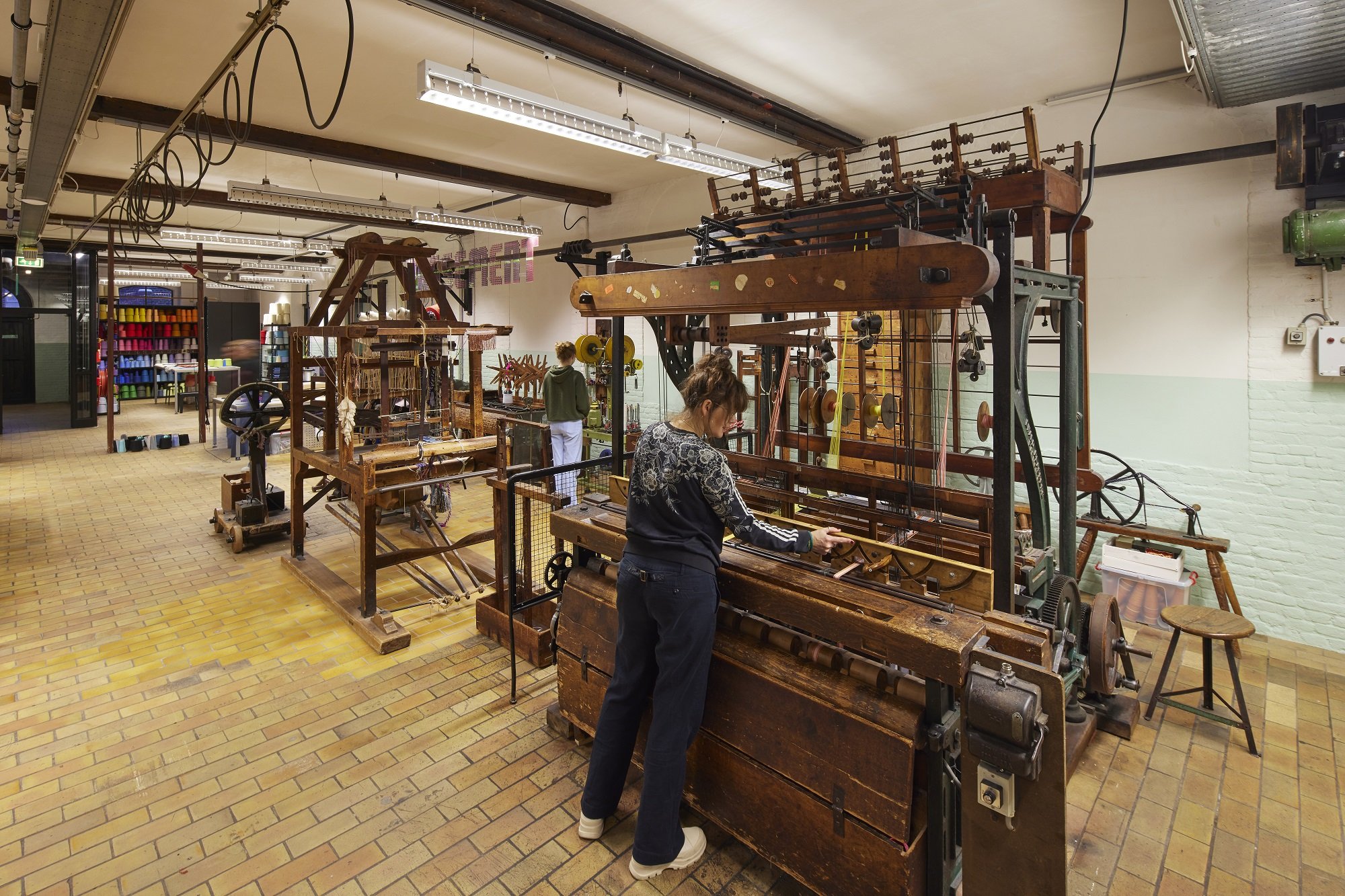
Spring School 2024
In 2023 and 2024 Dr. Guislain Museum will organise with several partners a series of international training events in three European cities with a rich textile heritage: Ghent, Leeds and Tilburg. Although each edition will have a specific focus (communities, co-creation and making/makers) the red thread will be arts-based engagements using textile heritage. The participants of the three editions will be connected through the development of an art engagement using a textile source under the guidance of artist and researcher Claire Wellesley-Smith.
For third and final edition of this series, Dr. Guislain Museum will team up with City Museum Tilburg, TextileMuseum and Arts & Sciences University College London. Together they’ll deliver the International Spring School Cultural Heritage & Wellbeing: Textile Cities from Monday 3 until Friday 7 Juni 2024 in Tilburg (NED).
For five days the participants receive a theoretical underpinning and are going to be guided in developing a wellbeing offering. The participants will encounter a wide range of inspiring cases where making is used for the improvement of the wellbeing.
The Spring School is to be delivered by a highly experienced team of experts who are leading in different fields connected to heritage, community engagement and wellbeing:
- Bart De Nil, expert wellbeing, culture and community engagement, Belgium
Developed training programs and published several books about cultural heritage, health and wellbeing based on this own experience as a practitioner and researcher. Organised and delivered many international training programmes.
- Bart Marius, artistic director Dr. Guislain Museum, Belgium
Is leading an internationally renowned museum about mental health that uses its museum grounds as a place of care. Their focus is on creative community engagement in co-operation with neighbourhood health centres.
- Claire Wellesley-Smith, researcher and artist, United Kingdom
She specialises in long-term engagements in post-industrial textile communities across the north of England. Her research explores connections through textile-based activities that link health, wellbeing and heritage.
- Petra Robben, City curator and director City Museum Tilburg, The Netherlands
- Tamira Waszink, Program maker TijdLab City Museum Tilburg, The Netherlands
- Thomas Kador, lecturer in Creative Health, University College London (UCL) Department of Arts & Sciences, United Kingdom
Is a material culture specialist with research interests in the health and wellbeing potential of (cultural) spaces, collections and their objects. He convenes UCL’s MASc Creative Health programme, which focuses on non-clinical, asset based health interventions.
Organised in Tilburg
From Tilburg, Stadsmuseum Tilburg and TextielMuseum have joined the Spring School as the objective is closely aligned with the policy plans of their own organizations and the municipality of Tilburg. “Art and culture with social impact must be perpetuated,” the Cultural Plan states. After all, projects based on art, heritage and identity can contribute to solving various social challenges.
Who is this training course for?
· Professionals working in cultural heritage organisations (museums, archives, galleries,
libraries with special collections)
· Practitioners working with heritage in community engagement and creative health
· Students and researchers in the field of creative health, museum studies, etc.
At the end of this training course, you'll be able to develop a resource for a specific targetgroup or context, design wellbeing activities, make a detailed plan of a resource and present the rational of a resource to the group.
Practical information
Location: Different locations in Tilburg
Fee: 500,- EUROS (VAT excluded). Reduced fee for students: 350,- EUROS (VAT excluded). For this you will get lunches, refreshments and snacks during the sessions and breaks, course materials.
All other expenses are borne by the participants. Attending the social program is not mandatory. There’s a very large variation of accommodation in Tilburg.
Participants are expected to bring their laptop.
Maximum 20 participants. Places in the spring school are limited to ensure the quality and depth of the interactions and discussions. The organisers also aim to ensure a diverse group of participants.
How to register
Send an email stating your name, position and /or institution to: textilecities@gmail.com
You’ll receive confirmation. If your registration is accepted, you’ll receive an email with more details.
The invoice for the registration fee will be send to the participant after the confirmation. Your registration is only final after payment of registration fee.
The participants will receive in advance a briefing document with a detailed schedule of the spring school.
The spring school 2024 is organised by Dr. Guislain Museum in co-operation with City Museum Tilburg, TextielMuseum and Arts & Science University College London. The program of this training is developed and will be coordinated by Bart De Nil, who’s at the forefront in leading developments in relation to culture-led wellbeing in Flanders, Belgium and internationally.

European Outsider Art Association: Conference Day
OUTSIDER ART, ARTIST COLLECTIVES AND ACTIVISM
From the ancient sculpture workshops of the Classical Antiquity to the recent Documenta 15: artist collectives have always played an important role in art history. From shared ownership to a shared ideology: collectives can bring change on various levels and in various places. How do artist collectives use art to fight for human rights? What makes them so extraordinary in the art world? And can the concept of an artist collective also apply to outsider art studios?
The Museum Dr. Guislain will host the 2024 annual conference and general assembly of the European Outsider Art Association (EOA). Welcome in Ghent!
International Conference
Friday 24 May 2024
Speakers and panelists:
Thomas Röske: director of the Prinzhorn Collection (Heidelberg, Germany) and President of the European Outsider Art Association
Project Art Works: a collective of neurodiverse artists and activists working from a studio in Hastings (United Kingdom)
Art Centre Wit.h: organises art expeditions beyond the boundaries of outsider art
Monika Jagfeld: director of Open Art Museum (Sankt Gallen, Switzerland) and EOA board member
Marc Steene: director of Outside In (Chichester, United Kingdom) and EOA board member
Carl Havelange: director of Trinkhall museum
Michiel De Jaeger: collaborator of Créahm Liège
Villa Voortman: artist collective
Lucinda Ra: artist collective
Monika Perenyei: art historian and chief curator of the Psychiatric Art Collection of the Hungarian Academy of Sciences
Bart Marius: director of the Museum Dr. Guislain
With a special focus on artistic collectives and activism in Latin America, in collaboration with the University of Cologne (Marileen La Haije and Bieke Willem):
Marileen La Haije: postdoctoral research fellow at the University of Cologne
Sofía Lanusse: director of the Outsider Art Fair and EOA board member
Florencia Rodríguez Giles: artist, part of the artistic collective CAOs (Argentina) (online)
Alfredo Olivera: founding member of Radio La Colifata (Argentina) and Colifata France
Beatriz Liebe & Verónica Rodríguez: founding members of the performing arts festival L’Altre Festival (Spain) and El Otro Festival (Argentina) (online)
Santiago Barugel: part of the recreation team at the Dr. C. Tobar García children’s hospital for mental health (Argentina)
Larisa Zmud: artist, part of the artistic collective Belleza y Felicidad (Argentina) (online)
Visits of the exhibition Off-Comics (in collaboration with the Collection de l’Art Brut in Lausanne and curator Erwin Dejasse) and the exhibition with outsider art works from Japan in collaboration with Kunsthuis Yellow Art and Mizue Kobayashi.
Questions?
Contact Yoonhee.Lamot@museumdrguislain.be
The European Outsider Art Association (EOA) operates as an umbrella organisation devoted to the promotion of art and artists outside the mainstream art world.
With the support of

International Conference European Outsider Art Association
OUTSIDER ART, ARTIST COLLECTIVES AND ACTIVISM
From the ancient sculpture workshops of the Classical Antiquity to the recent Documenta 15: artist collectives have always played an important role in art history. From shared ownership to a shared ideology: collectives can bring change on various levels and in various places. How do artist collectives use art to fight for human rights? What makes them so extraordinary in the art world? And can the concept of an artist collective also apply to outsider art studios?
The Museum Dr. Guislain will host the 2024 annual conference and general assembly of the European Outsider Art Association (EOA). Welcome in Ghent!
PROGRAMME
Two-days visits through Belgium
Thursday 23 and Saturday 25 May 2024
OUTSIDER ART TOUR
23 May 2024
8:30 – 9:00 | We meet at the main entrance of the Museum Dr. Guislain (car park Jozef Guislainstraat 43). The bus leaves at 9:00.
Please be on time. If you have trouble finding us? Contact us on +32 471 68 47 39.
10:15 | LaM - Lille Métropole Musée d'art moderne, d'art contemporain et d'art brut, Villeneuve d’Ascq, France
12:30 | Kunstwerkplaats De Zandberg (+ lunch), Harelbeke, Belgium
15:00 | La Pommeraie and Fondation Paul Duhem, Quevaucamps, Belgium
± 19:00 | Back in Ghent
25 May 2024
7:30 – 8:00 | We meet at the main entrance of the Museum Dr. Guislain (car park Jozef Guislainstraat 43). The bus leaves at 8:00.
Please be on time. If you have trouble finding us? Contact us on +32 471 68 47 39.
9u30 | Art et marges museum, Brussels, Belgium
12:00 | Trinkhall museum (+ lunch), Liège, Belgium
14:30 | Créahm, Liège, Belgium
16:15 | Museum of Flint – Tower of Eben Ezer (+ sandwiches), Bassenge, Belgium
± 20:15 | Back in Ghent
International Conference
Friday 24 May 2024
9:00 | Coffee and registration
9:30 | Welcome and Introduction
Welcome by Yoon Hee Lamot, curator Museum Dr. Guislain
Welcome by Lien Van de Velde, director Cultuur Gent
Introduction by Thomas Röske, director Prinzhorn Collection, University Hospital Heidelberg, Germany: Collective Outsider Art?
9:55 | Bart Marius, artistic director Museum Dr. Guislain, Ghent, Belgium: Collective heritage: the museum as common
10:30 | Break
10:50 | Art studios and artist collectives
Luc Vandierendonck, director Wit.h, Kortrijk, Belgium: Sottobosco
Kate Adams, artistic director & CEO of Project Art Works, Hastings, UK: Personalising Environments for Creative Freedom and Purpose: sometimes art happens in the process
Monika Jagfeld, director open art museum, St. Gallen, Switzerland: lumbung brut
11:50 | Panel discussion and performance
Panel discussion: Can the concept of an artist collective also apply to studio work?
Moderator: Thomas Röske, director Prinzhorn Collection, University Hospital Heidelberg, Germany
Panellists: Michiel de Jaeger (production collaborator Créahm, Liège, Belgium) / Carl Havelange (artistic director Trinkhall museum, Liège, Belgium) / Marc Steene (director Outside In, Chichester, UK)
Performance by Vincent Obert de Thieusies, JP De Brabander and Dirk Bryssinck of Villa Voortman, Ghent Belgium
12:50 | Lunch
14:00 | Psychiatry and artist collectives
Monika Perenyei, Psychiatric Art Collection of the Hungarian Academy of Sciences, Budapest, Hungary: Dreampalaces: emotionally safe spaces and their filmic representation in the work of the Hungarian-American psychiatrist Irene Jakab in the1970s
Dirk Bryssinck, Villa Voortman, Ghent, Belgium: Villa Voortman: a meeting place in the city of Ghent
Lucinda Ra, Ghent, Belgium: studio visit
15:00 | Break
15:20 | Artistic Collectives and Activism in Latin America, in collaboration with the University of Cologne (Marileen La Haije and Bieke Willem)
Marileen La Haije, researcher, Cologne, Germany: Minding Arts: Arts-based Practices of Mental Health and Human Rights Activism in Latin America
Sofía Lanusse, director Outsider Art Fair New York, USA: Art on the margins of the system in Argentina (online)
Beatriz Liebe & Verónica Rodríguez, El Otro Festival, Rosario, Argentina & L’Altre, Barcelona, Spain: The Other Festivals. An ibero-american dialogue about Performing Arts and Mental Health (online)
Alfredo Olivera, Radio La Colifata, Paris/Buenos Aires, France/Argentina: Happening "colifato"
Florencia Rodríguez Giles, artistic collective Club de Artes y Ocios (CAOs), La Plata, Argentina: Artistic Health (online)
Santiago Barugel: Hospital Tobar García, Buenos Aires, Argentina: Magic circles
Larisa Zmud: Belleza y Felicidad Fiorito, Buenos Aires, Argentina: Food Tables: Community luxury, flavor, dreams, and desires (online)
17:15 | Visit of the exhibitions Off-Comics and Ikigai
19:00 | Dinner (EOA members & speakers only)
21:30 – 23:30 | EOA party
General Assembly
Sunday 26 May 2024
10:00 | Coffee
10:30 – 12:00 | EOA General Assembly (members only)
Ticket price Total Package (23-26 May): 130 euros
The ticket price includes:
Two-days visits through Belgium: entrance fees and lunch included
International Conference: coffee, lunch and dinner (dinner exclusively for EOA members) included
General Assembly
The European Outsider Art Association (EOA) operates as an umbrella organisation devoted to the promotion of art and artists outside the mainstream art world.
With the support of

ravensbrück
Aline Vervoort, Stefanie Claes's grandmother, was arrested with her parents in their home in Winksele during World War II. For a year, Aline stayed in the German women's concentration camp Ravensbrück. She survived those dark months full of cold, hunger and abuse. Her life was forever marked by the horrific events of war. Nothing was ever the same again.
As a child, Stefanie sometimes dreamt that soldiers invaded her street and she had to flee. But it was not until she was 16 that she really realised the tragedy that had taken place in her family, that she started having conversations about it with her grandmother and mother. Gradually, it became clear that her family's war past was everywhere between, in, on and under.
With Mia Kermis, Stefanie developed her special theatre language: small, artisanal, personal and expressive. This way of storytelling continues to theatricalise the story of Aline Vervoort, and its echo through the generations.
As inspiration for ravensbrück, Stefanie drew on conversations with her grandmother and her mother and snippets from personal letters, in addition to documentaries, historical reference works and interviews with trauma experts. ravensbrück is a wordless and expressive performance for adults and (their) children aged 10 and up, for a limited audience. More than about the literal meaning of war trauma, ravensbrück is about how certain events have a lifelong effect in your life. Three generations of women take centre stage, because everyone is a child of someone.
Practical
> Do. 2.05.2024 (8pm) + Fri. 3.05.2024 (8pm)
> Museum Dr. Guislain
> Click here for tickets
Concept, ontwerp & spel Stefanie Claes / Dramaturgie & feedback Sofie Van der Linden, Barbara Claes & Simon Allemeersch/ Lichtadvies Marlies Jacques / Grafische vormgeving Mario Debaene / Productie Lucinda Ra / Coproductie De Studio & VIERNULVIER / In samenwerking met De Grote Post, Museum Dr. Guislain & c o r s o / Met de steun van De Vlaamse Gemeenschap, Stad Gent & deAuteurs / Met dank aan Algemeen Rijksarchief Dienst Archief Oorlogsslachtoffers / Spreiding Vincent Company
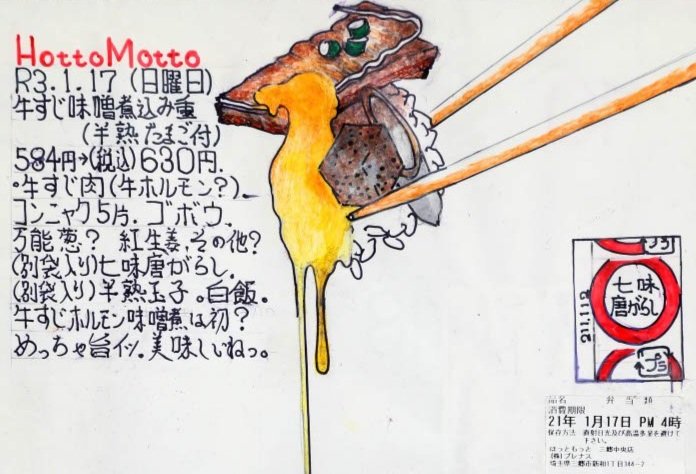
Ikigai
Itsuo Kobayashi, Untitled, 2021, Collection of the artist.
Ikigai is a Japanese concept that resembles the term raison d’être. What makes life worth living? What are we searching for? Questions that can have multiple answers and are different for each one of us. Ikigai is about a personal quest, inspired by our own personal needs and those of our environment. A concept that connects us, sharpening our focus. Now and then we all take stock of our lives. By reflecting on what we really want in life, we get a better idea of who we are. But representing the world in which we live also promotes awareness and engagement. Ikigai shows what makes life worth living.
Kunsthuis Yellow Art from Geel has joined forces with Aiseikai, a Japanese welfare organisation that promotes the work of artists with a disability. Yellow Art is an art studio for people with mental vulnerability, and is affiliated with OPZ Geel, a public psychiatric care and knowledge centre in the city of Geel. It is a safe space for meeting and imagination. The artists of this Belgian art studio collaborated with their Japanese colleagues through a mail art project.
Besides being the fruit of this interaction, Ikigai is also unique as this is the first time many of these Japanese artists will be showing their work in Belgium. All the artists offer a unique perspective on their ikigai, starting from their cultural background and artistic practice, with artworks ranging from visual diaries and sophisticated pastel drawings to imaginary cityscapes and sculptures made of folded leaves.
The exhibition takes you on a journey, with the imagination of these Belgian and Japanese artists charting your course. An opportunity to explore your own ikigai.
© Annelies Vrints, Danny Smolders, Norimitsu Kokubo, Mina Seino
Partners:
With the support of:
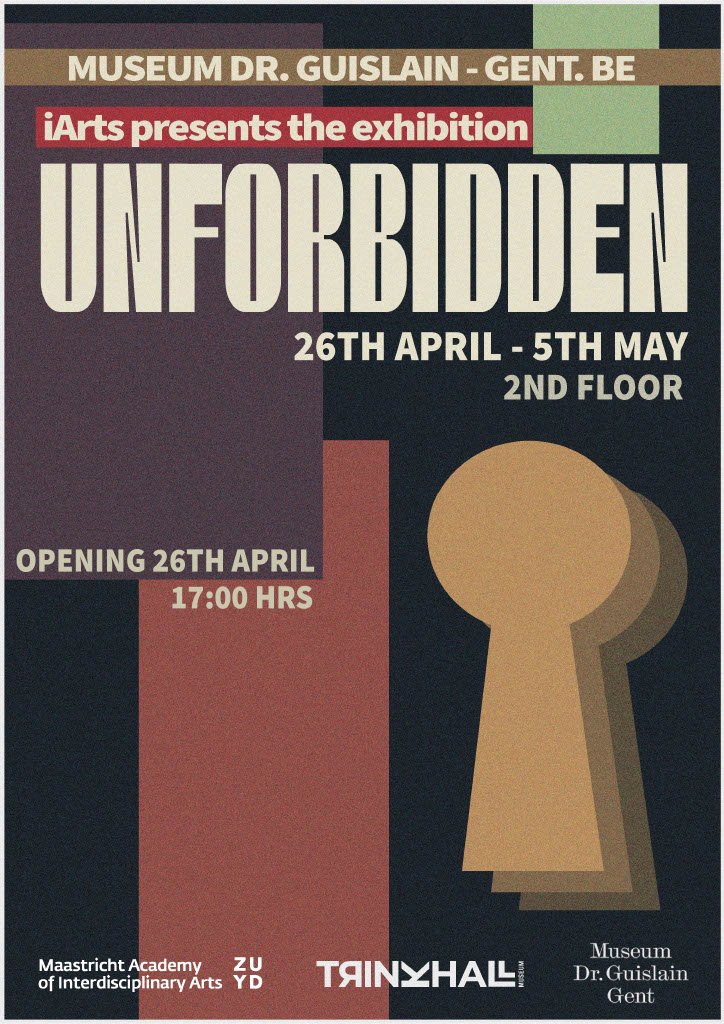
UNFORBIDDEN
iArts year one invites you to visit “Unforbidden”, an exhibition with psychiatry and psychology as its focal point. The students have viewed the Unhinged and Off-Comics exhibition at museum Dr.Guislain, Ghent, and L’événement d’être là at museum Trinkhall, Liege. In response to this, the students have conducted artistic and theoretical research, which has resulted in a collection of artworks expressing their findings. Through these diverse artworks they invite you to contemplate the complexities of the human mind, offering unique perspectives on emotion, cognition and identity.
We look forward to welcoming you!
Opening night: Friday 26th of April, 17.00 - 20.00, works will be visible until Sunday 5th of May, at Museum Dr. Guislain
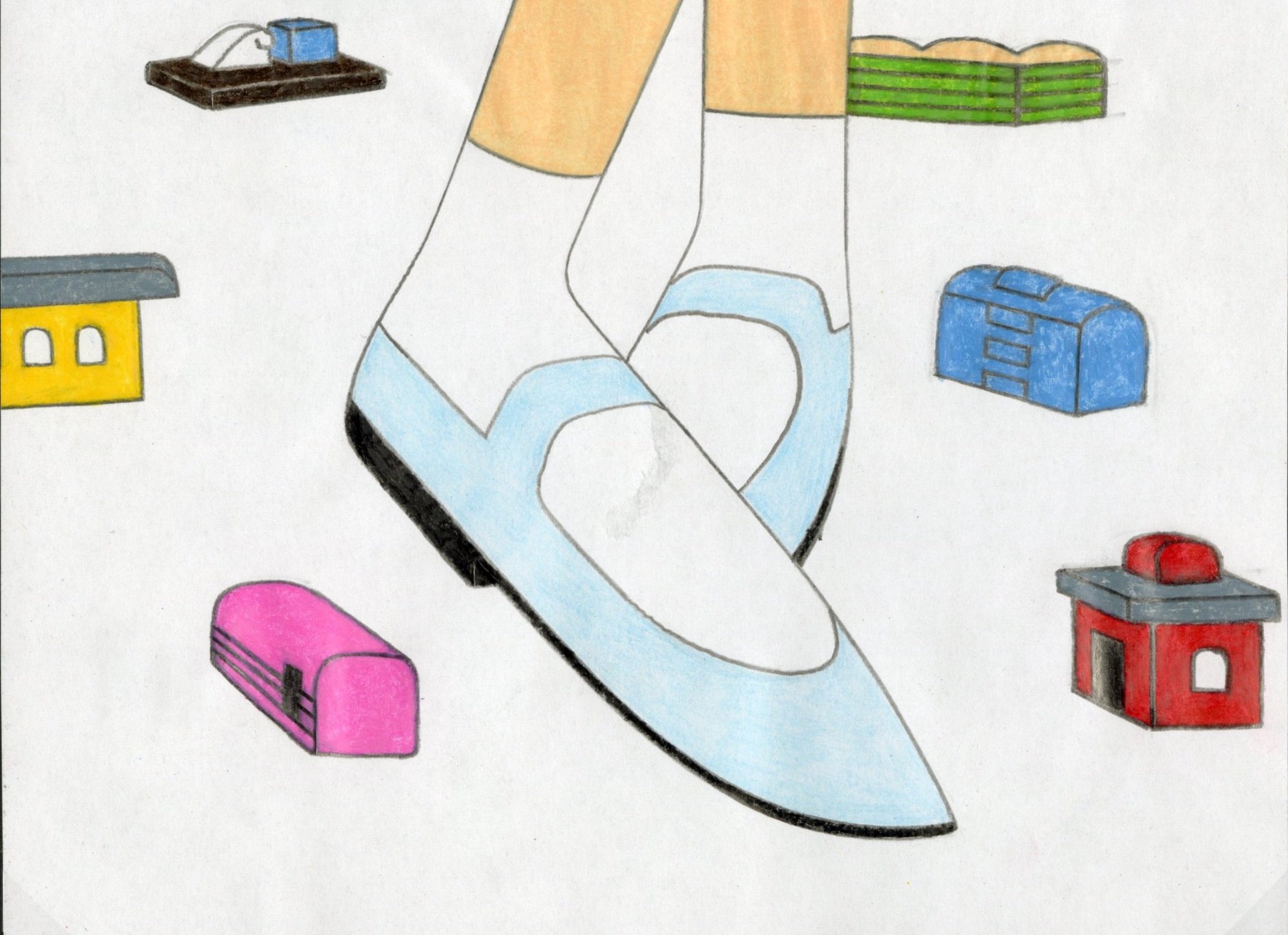
Off-Comics: kidsedition ✏️
Tomoyuki Hirano, New Miho-san Series 1, 2012, Collection artist, Machida.
Explore the Off-comics exhibition with a guide! Playfully discover extraordinary comics and brilliant illustrators. Then it's up to you! Get to work like a real artist in our drawing studio.
Everyone is welcome, as long as you love to draw! ✏️
Practical
> Drawing workshop + guided tour
> 2 pm - 4 pm (we meet at the reception)
> Age level: 5 - 10 years
> Ticket: 3 euros/child (+ entrance ticket for an adult)
> Registration via info@museumdrguislain.be

EGGHUNT
Tomoyuki Hirano, New Miho-san Series 1, 2012, Collectie kunstenaar, Machida.
Come and find (wooden) eggs during the first week of the Easter holidays! Decorate your egg according to the theme of the Off-Comics exhibition: comics and cartoon characters! Hang your egg with a ribbon on the branches of the willows in the courtyard garden.
Afterwards you will receive a bag of chocolate eggs! Ask at the reception desk.
Everyone is welcome to look for an egg in the courtyard garden.
TIP: There are not only eggs to collect, but also golden stars! Find a star and choose a nice present at the reception!
Practical
Find and decorate eggs from Saturday 30.03 to Sunday 7.04.2024 during the museum's opening hours. You can find the paint & chocolate eggs at the reception desk!

Grafixx@Guislain
Off-Comics presents an extraordinary history of the comic strip. Word and image come together in work that flouts all the rules. Heroes like Tintin, Captain America or Tex Willer appear in personal fantasy worlds and new protagonists come to life.
On the occasion of the expo, Grafixx is curating a special day programme at Museum Dr Guislain in Ghent on Saturday 23 March! Come and listen to the book club with Martha Verschaffel, Gabri Molist and Kaylan Saro, join the workshop with Kim Troubleyn, or be tempted to buy in the zine fest, with self-published works by artists from all over the world.
Programme
13h - 17h: Zine fest
A fresh portion of delectable small press will be served at the zine fest. Bookworms and image hunters will enjoy a carefully chosen selection of picture books, comics and zines from international authors and exciting publishers.
2pm - 5pm: workshop
Kim Troubleyn will teach you to etch with home, garden and kitchen tools! Join the table at any time.
15h - 16h: book club
During the book club, Martha Verschaffel, Gabri Molist & Kaylan Saro, together with Obi Mundorff, open their bookcase, and with it a piece of their creative soul. They will talk about their own recent publications, reveal their fondest sources of inspiration, and scrutinise favourite publications.
FREE EVENT + REDUCED ENTRANCE EXPO OFF-COMICS
© Kaylan Saro, Martha Verschaffel en Gabri Molist

WE MAKE FIORETTI
Five young people, tutors, an attic and objects from the past: what happens when rules fall away, freedom has free rein and stopping can lead to starting again?
The creative journey starts with archive objects, but soon expands to other objects, spaces, statements or own stories as starting points for new creations. In complete freedom, collaborations emerge, experimentation, isolation and stopping to start again. The expo is therefore the result of a diversity of personal stories.
We make Fioretti comes about thanks to the collaboration between Museum Dr Guislain and Fioretti, the children's and youth department of Guislain Hospital. The young people are supervised by artist Karolien Soete. This falls under the project ErfGoedVoelen, in which heritage objects are used in the care sector.
Want to soak up the atmosphere? See the video: "We make Fioretti"
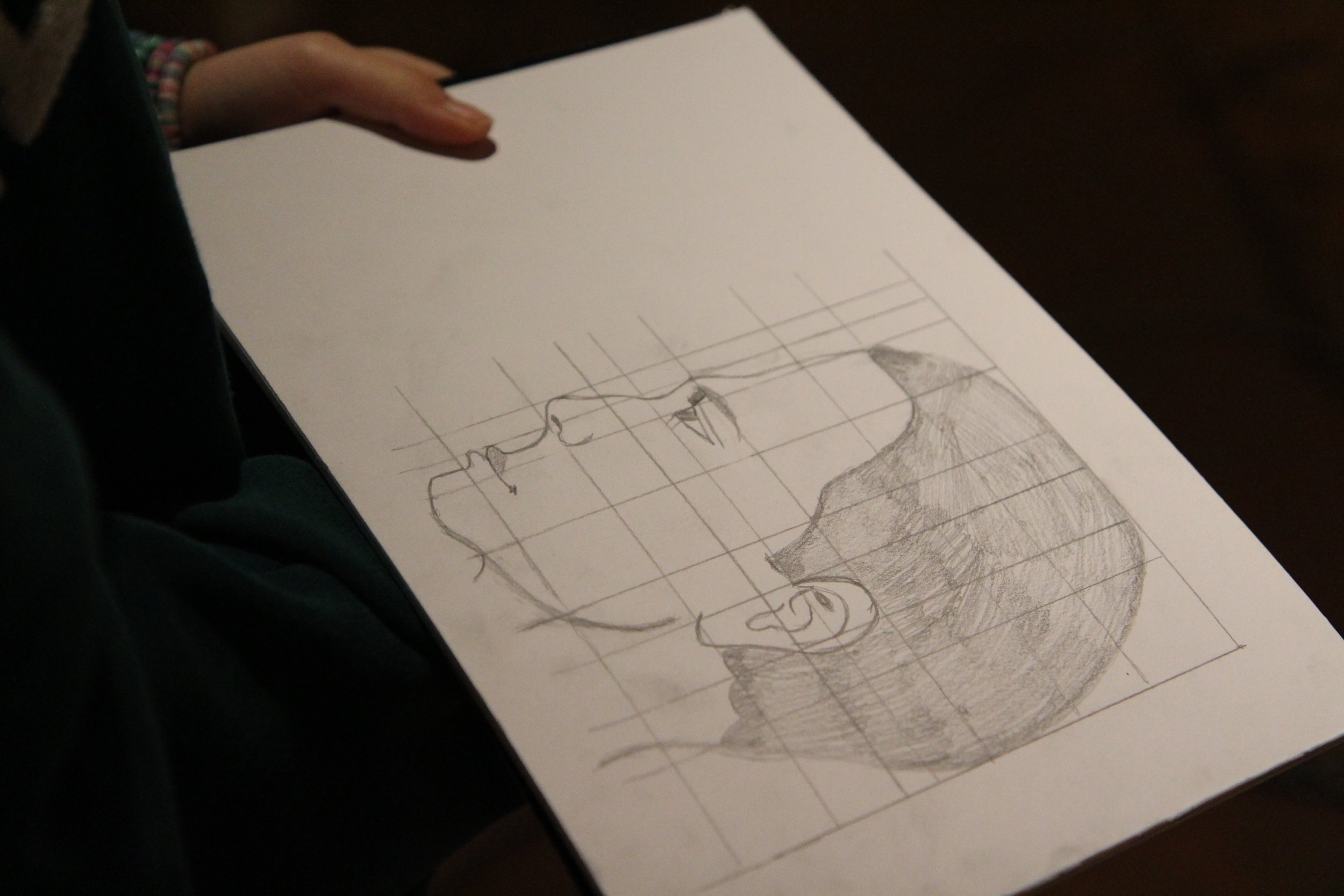
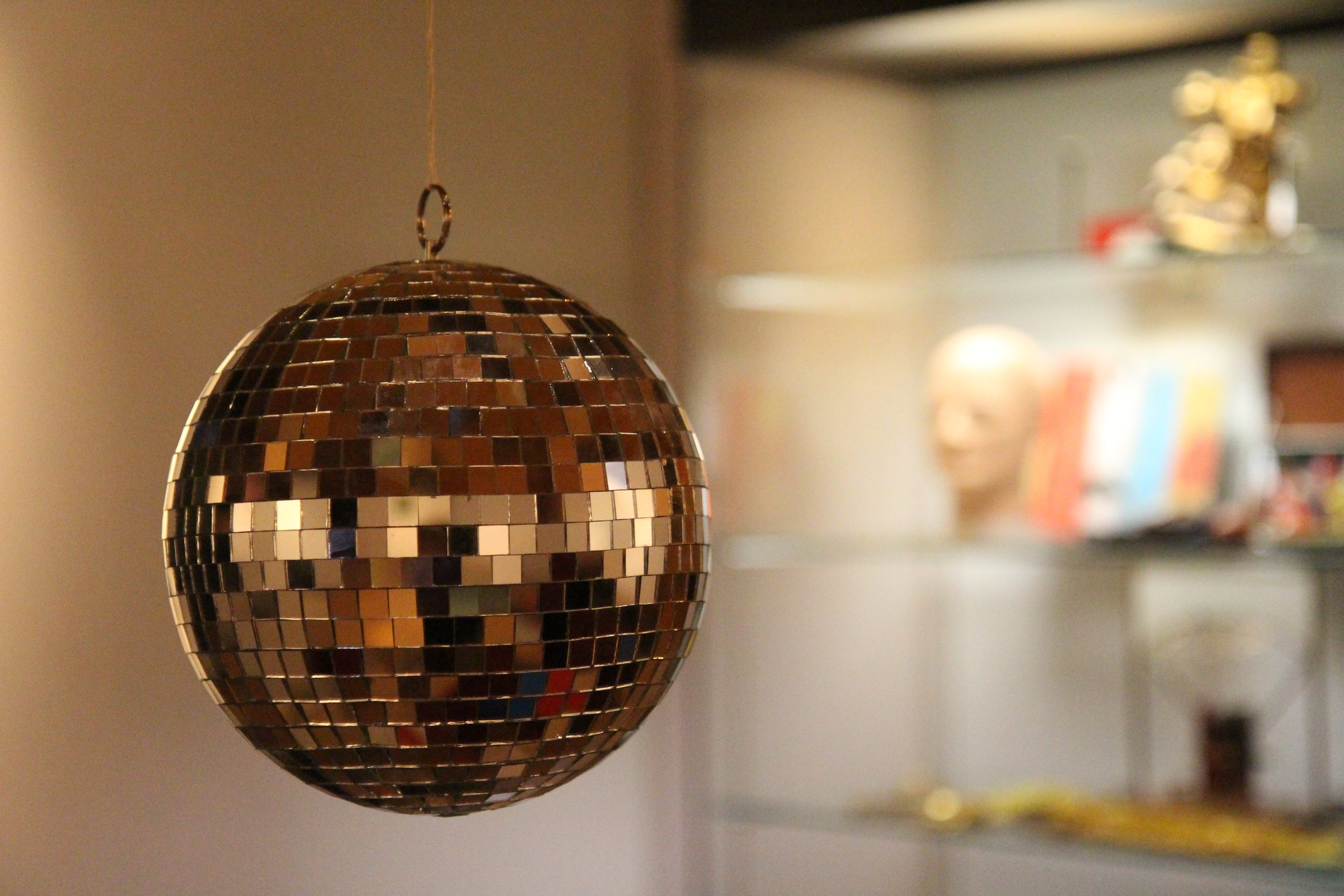
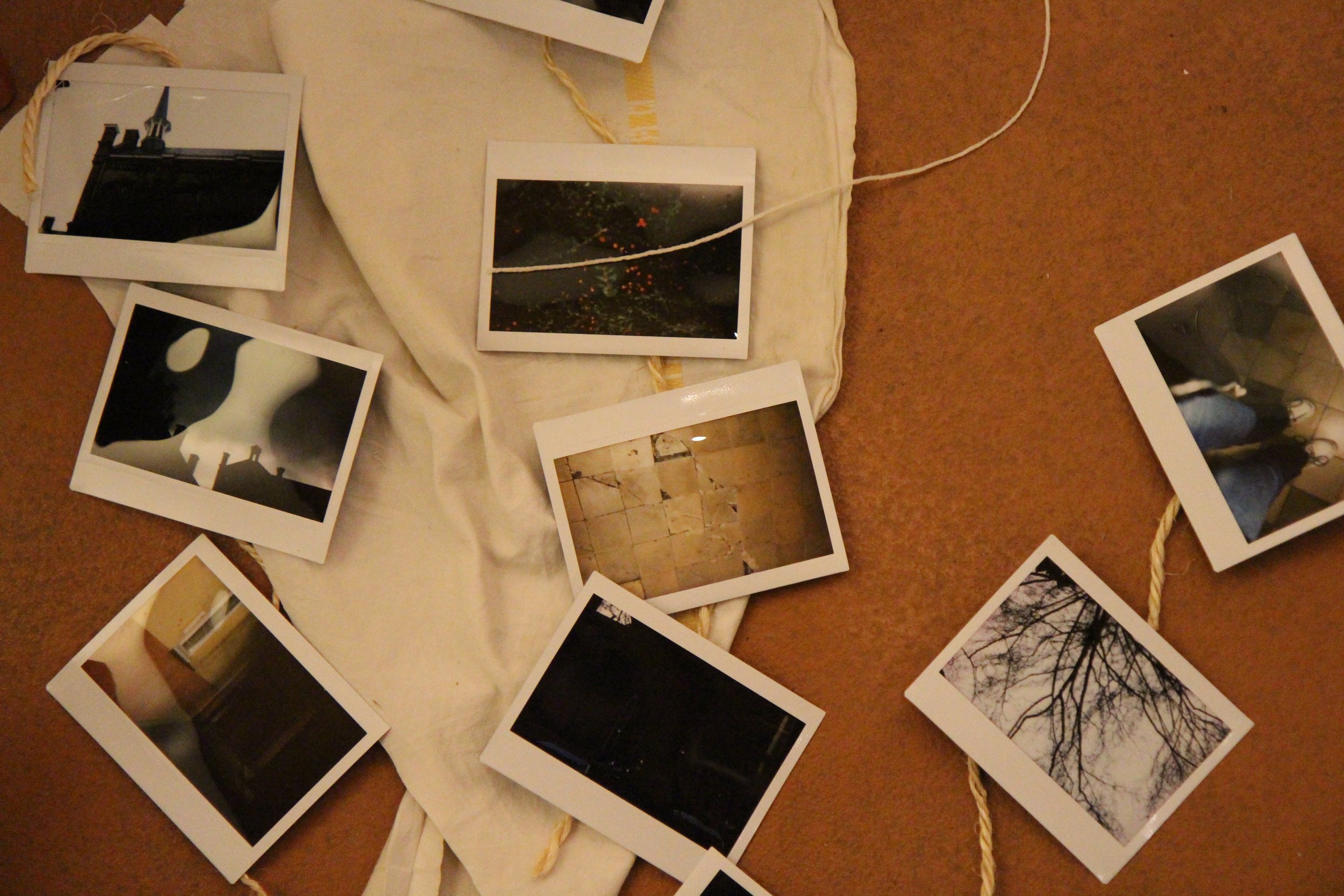
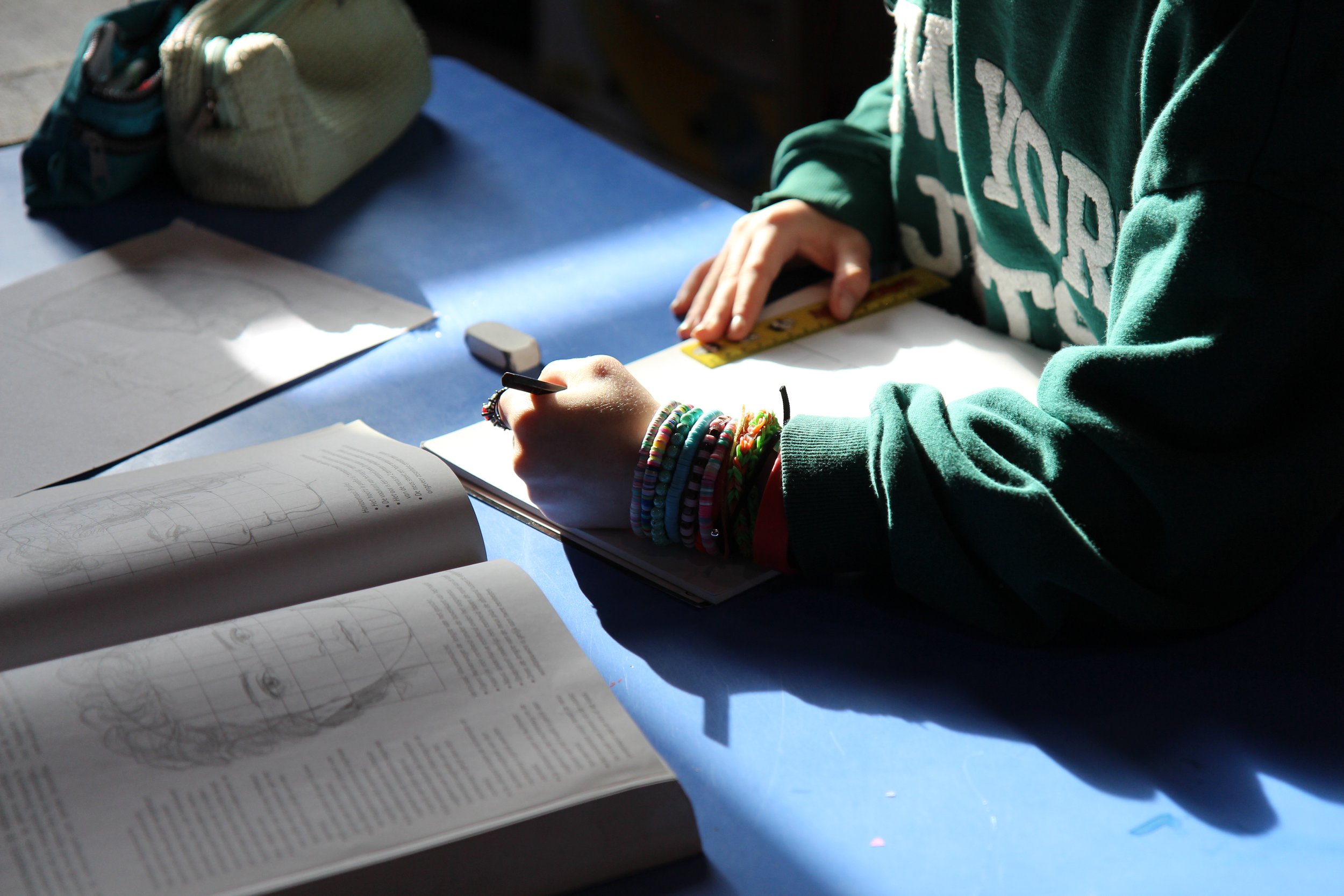
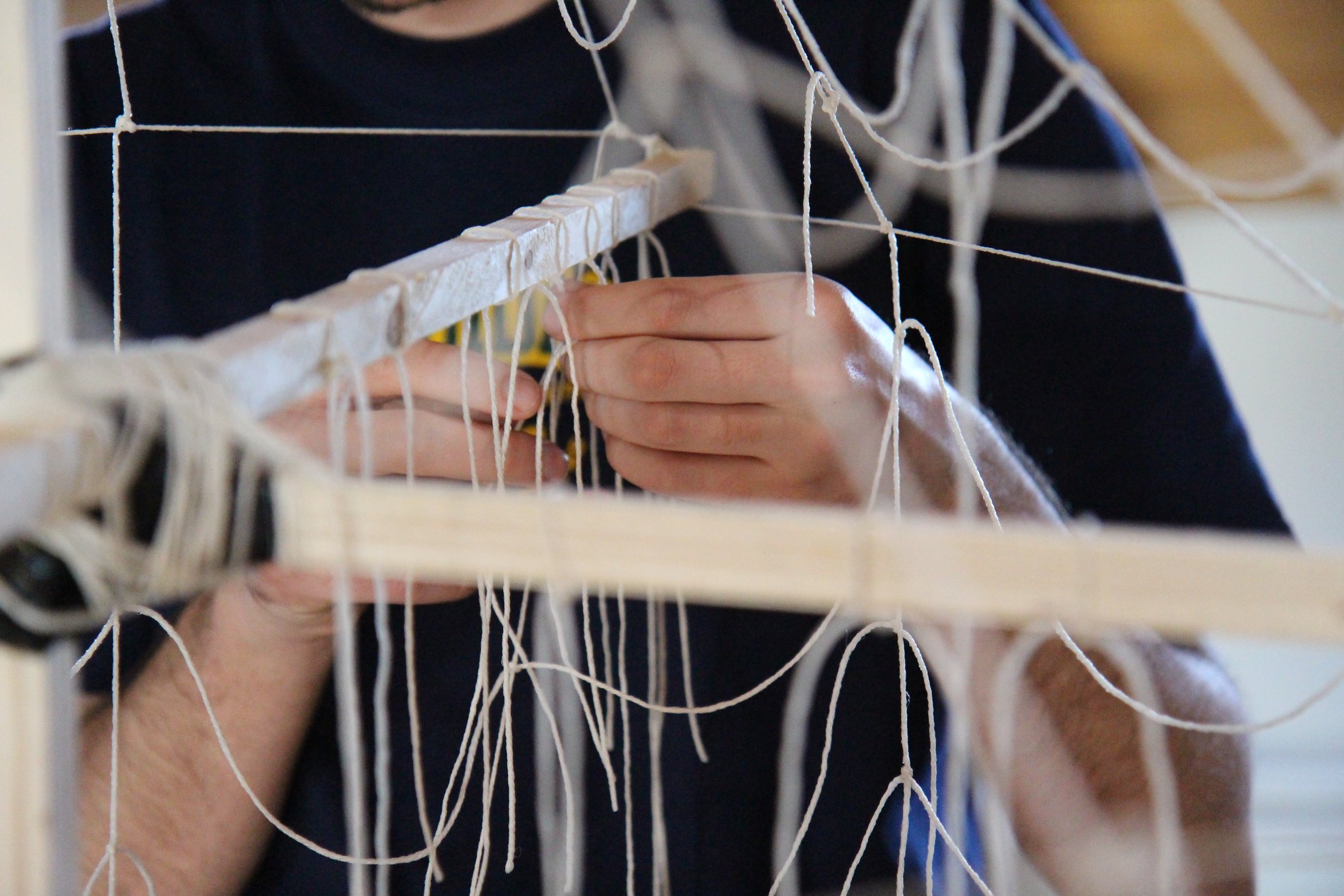
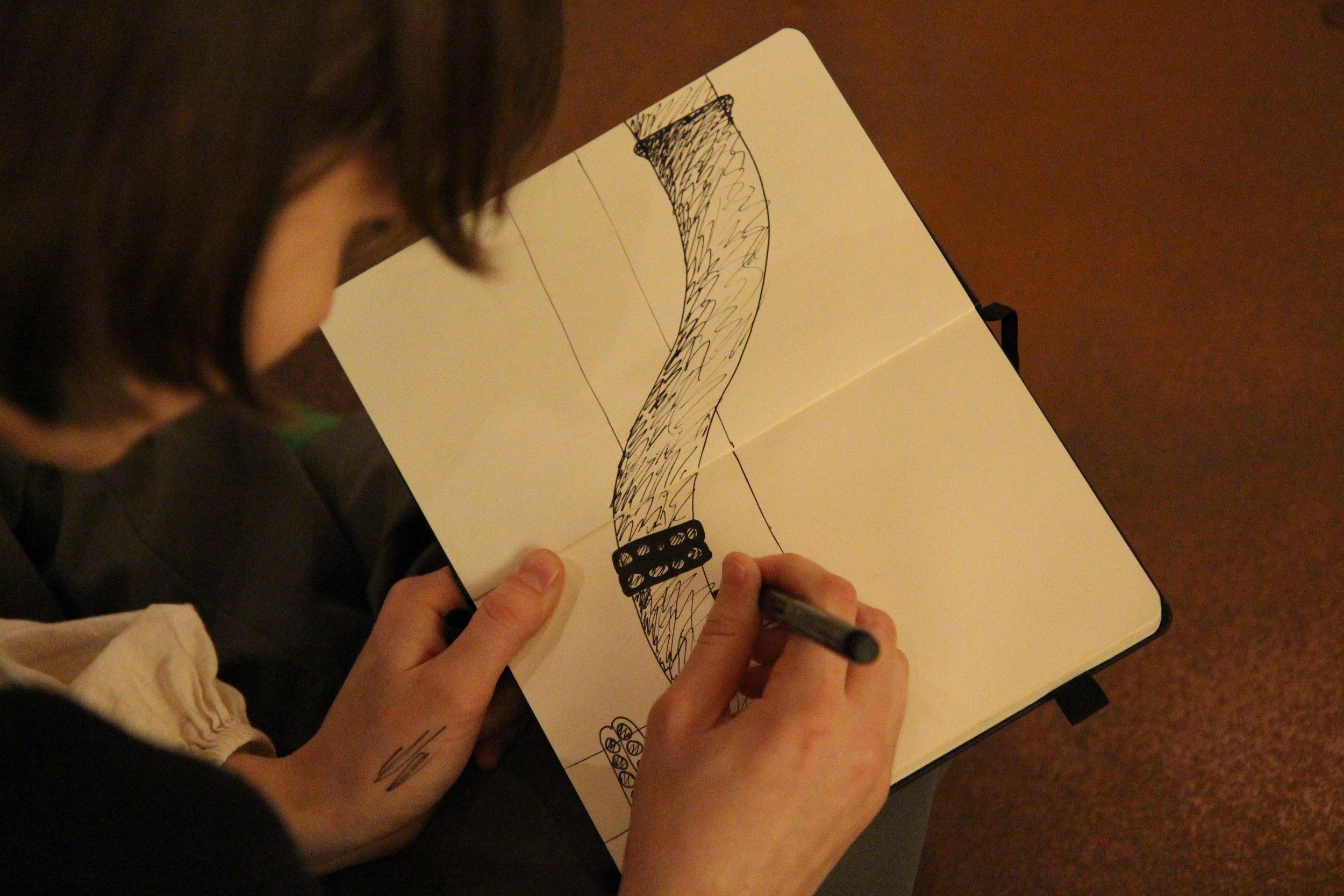
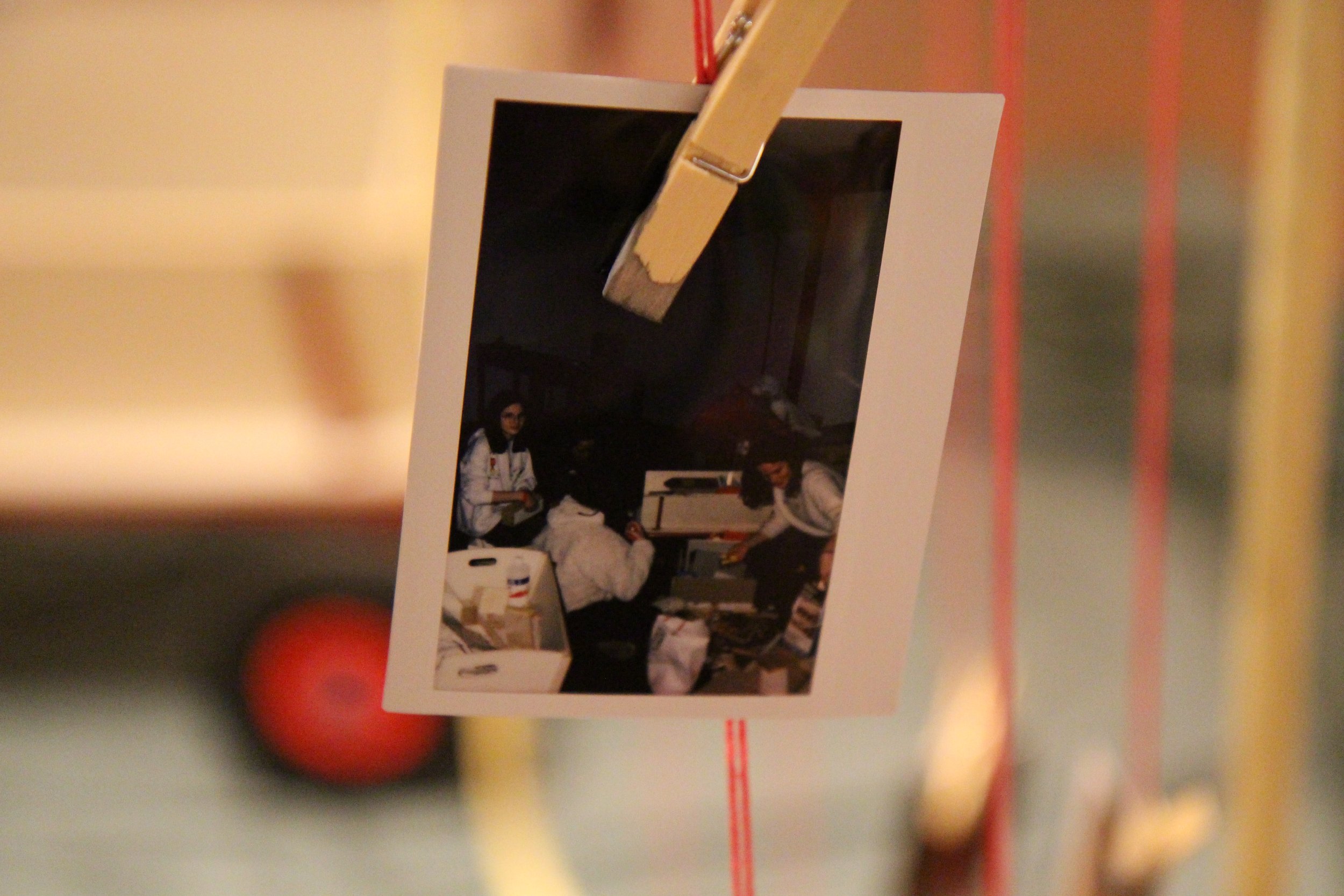
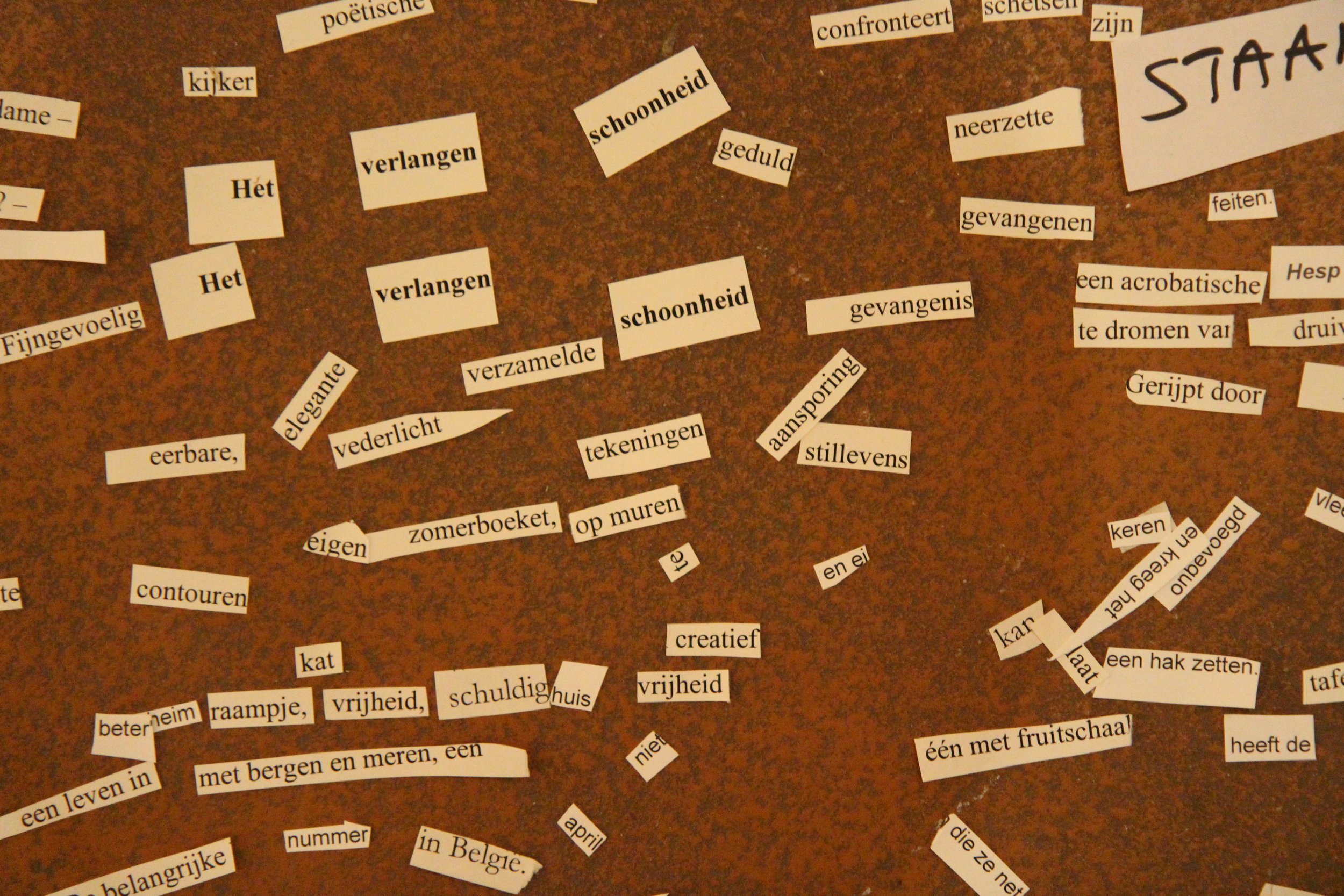
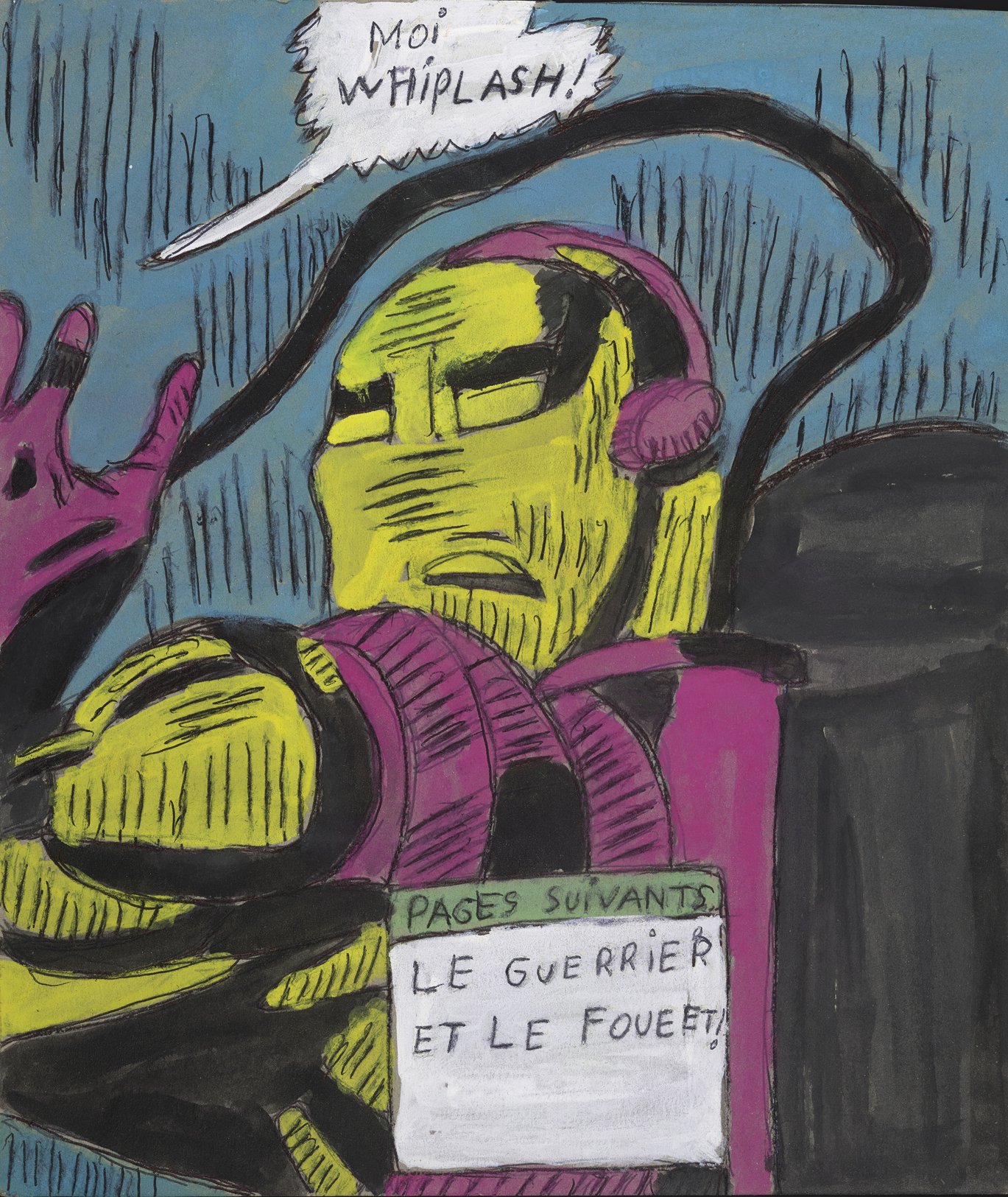
Off-Comics
Kanako Tayu, untitled, 2011. Photo: Claudine Garcia, Atelier de numérisation – Ville de Lausanne. Collection artist, Shiraoi
Historical epics, chronicles of everyday life, real or imagined personal trauma…: Off-Comics zooms in on a unique history of comics, where words and images come together in works that flout convention. Heroes such as Tintin, Captain America or Tex Willer pop up in personal fantasy worlds and new protagonists are brought to life. The works in the exhibition have been created outside the traditional art circuit or distribution channels for comics. While their makers have absorbed the imagery and codes of the ninth art, they have reworked them, incorporating them into their own unique imagination and visual language. Like many contemporary comics artists, they also devise new and surprising thematic, narrative, and aesthetic resources. The exhibition showcases exceptional work from renowned museums such as the Collection de l’Art Brut in Lausanne, as well as from national and international art studios and private collections. Words and images are combined in unconventional ways for a refreshing immersion into this other world of comics.
Featuring work by
Sarah Albert, Denis Boudouard, Luigi Brunetti, Wouter Coumou, Hein Dingemans, Karel Frans Drenthe, Johann Fischer, Alfons Frenkl, Giga, Michael Golz, Tomoyuki Hirano, Vojislav Jakić, Frank Johnson, Daniel Johnston, Jim Kaliski, Johann Korec, Katsutoshi Kuroda, Gérard Lattier, Jean Leclercq, Pascal Leyder, Jean-Jacques Liabeuf, Andreas Maus, Norbert Moutier, Yuichi Nishida, Marilena Pelosi, Aldo Piromalli, Luciana Rossi, Gustav Sievers, Kanako Tayu, Dominique Théate, Alfred Trouvé, Oskar Voll en Clemens Wild.
Curator: Erwin Dejasse
In cooperation with:
With the support of:

CARBON Annick, mei 2022, Bierbeek
Annick faces the irreversible effects of Huntington's disease as a young mother. The exhibition CARBON shows a series of works created by Annick in May 2022 in the creative studio of Saint Camillus.
In a short span of time, an explosion of creativity emerges. Her work is an expression of her perseverance and finesse: the disease affects all control over movements and leads to cognitive and emotional difficulties - memory, concentration, ordering thoughts, but also depressive feelings and helplessness.
Annick draws inspiration from Frida Kahlo's portraits. A reflection of strength or a union of suffering?
Museum Dr Guislain's exhibition draws attention to Huntington's disease, a relatively unrecognised hereditary disorder that can strike mercilessly at a young age.
Image: Annick, untitled, carbon pen, alcohol pen and oil pastel, 2022. Artist collection.

Winter School 2024 in Leeds (UK)
In 2023 and 2024 Dr. Guislain Museum will organise with several partners a series of international training events in three European cities with a rich textile heritage: Ghent, Leeds and Tilburg. Although each edition will have a specific focus (communities, co-creation and making/makers) the red thread will be arts-based engagements using textile heritage. The participants of the three editions will be connected through the development of an art engagement using a textile source under the guidance of artist and researcher Claire Wellesley-Smith.
For second edition of this series, Dr. Guislain Museum will team up with Leeds Museums and Galleries and Arts & Sciences University College London. Together they’ll deliver the International Winter School Cultural Heritage & Wellbeing: Textile Cities from Monday 22 until Friday 26 January 2024 in Leeds (UK).
For five days the participants receive a theoretical underpinning and are going to be guided in developing a wellbeing offering. The participants will encounter a wide range of inspiring cases where co-creation is used for the improvement of the wellbeing. Leeds Museums and Galleries have an embedded Community Team who lead on this offering for the organisation, with goals of improving people’s wellbeing being an integral part of many aspects of the programming across the city’s museums and art gallery. Discover how exhibitions, family workshops, adult programmes, and more are utilised to help people improve their own mental health whilst accessing culture in Leeds.
The Winter School is to be delivered by a highly experienced team of experts who are leading in different fields connected to heritage, community engagement and wellbeing:
- Bart De Nil, expert wellbeing, culture and community engagement, Belgium
Developed training programs and published several books about cultural heritage, health and wellbeing based on this own experience as a practitioner and researcher. Organised and delivered many international training programmes.
- Bart Marius, artistic director Dr. Guislain Museum, Belgium
Is leading an internationally renowned museum about mental health that uses its museum grounds as a place of care. Their focus is on creative community engagement in co-operation with neighbourhood health centres.
- Claire Wellesley-Smith, researcher and artist, United Kingdom
She specialises in long-term engagements in post-industrial textile communities across the north of England. Her research explores connections through textile-based activities that link health, wellbeing and heritage.
- Chris Sharp, keeper at Leeds Industrial Museum and Thwaite Watermill (LM&G), UK
Is a manager at 2 of the council run museums in Leeds, before which he was an Assistant Community Curator focusing on wellbeing through access to cultural activities and programming. Chris continues to embed a people-centred approach, believing a friendly and kind experience can break down barriers for people and open their horizons for their own benefit.
- Kate Fellows, head of Learning and Access (LM&G), United Kingdom
Is an experienced and caring senior manager at LM&G who leads a team of dedicated museum professionals across 9 museums and galleries delivering life-long learning accessible to people on their own terms.
- Thomas Kador, lecturer in Creative Health, University College London (UCL) Department of Arts & Sciences, United Kingdom
Is a material culture specialist with research interests in the health and wellbeing potential of (cultural) spaces, collections and their objects. He convenes UCL’s MASc Creative Health programme, which focuses on non-clinical, asset based health interventions.
Organised in Leeds
Much like Ghent and Tilburg, Leeds is unashamedly a textile city. Its growth from a small town to a large industrial hub happened rapidly during the nineteenth and twentieth centuries, driven by the industrial revolution and the wool trade.
This trade can be dated back to Cistercian Monks at Kirkstall Abbey from the 1100s and increased massively in the early 1800s making Leeds one of the largest and most diverse cities in the UK.
Leeds Museums and Galleries are a local authority NPO for Arts Council England, managing 9 sites across the city including what was once the world’s largest Woollen Mill, an Elizabethan Country House, city centre art gallery and museum, and ruined abbey.
Their collections are of international importance, and are used along with the venues and skills of its representative workforce to engage with and improve the lives of both the local community and visitors from further afield.
LM&G are proud to be a local authority museum service meeting the needs of the city’s population through resources they themselves own. Health and wellbeing, alongside environmental responsibility and social justice, are at the heart of what they do with their portfolio.
Tilburg
The last edition of Cultural Heritage & Wellbeing: Textile Cities will be the Spring School in Tilburg (The Netherlands), in cooperation with Erfgoed Tilburg and Arts & Sciences University College London, from 3 to 7 June 2024. Focus: making/makers.
Who is this training course for?
Professionals working in cultural heritage organisations (museums, archives, galleries, libraries with special collections)
Practitioners working with heritage in community engagement and creative health
Students and researchers in the field of creative health, museum studies, etc.
At the end of this training course, you'll be able to develop a resource for a specific targetgroup or context, design wellbeing activities, make a detailed plan of a resource and present the rational of a resource to the group.
Practical information
Location: Different locations in Leeds
Fee: 500€ (VAT excluded) / students: 350€ (VAT excluded)
For this you will get lunches, refreshments and snacks during the sessions and breaks, course materials. All other expenses are borne by the participants. Attending the social program is not mandatory. There’s a very large variation of accommodation in Leeds.
Maximum 20 participants. Places in the winter school are limited to ensure the quality and depth of the interactions and discussions. The organisers also aim to ensure a diverse group of participants.
Participants are expected to bring their laptop.
How to register
Send an email stating your name, position and/or institution to: textilecities@gmail.com
You’ll receive confirmation. If your registration is accepted, you’ll receive an email with more details. The invoice for the registration fee will be send to the participant after the confirmation. Your registration is only final after payment of registration fee. The participants will receive in advance a briefing document with a detailed schedule of the winter school.
The winter school 2024 is organised by Dr. Guislain Museum in co-operation with Leeds Museum & Galleries and Arts & Science University College London. The program of this training is developed and will be coordinated by Bart De Nil, who’s at the forefront in leading developments in relation to culture-led wellbeing in Flanders, Belgium and internationally.
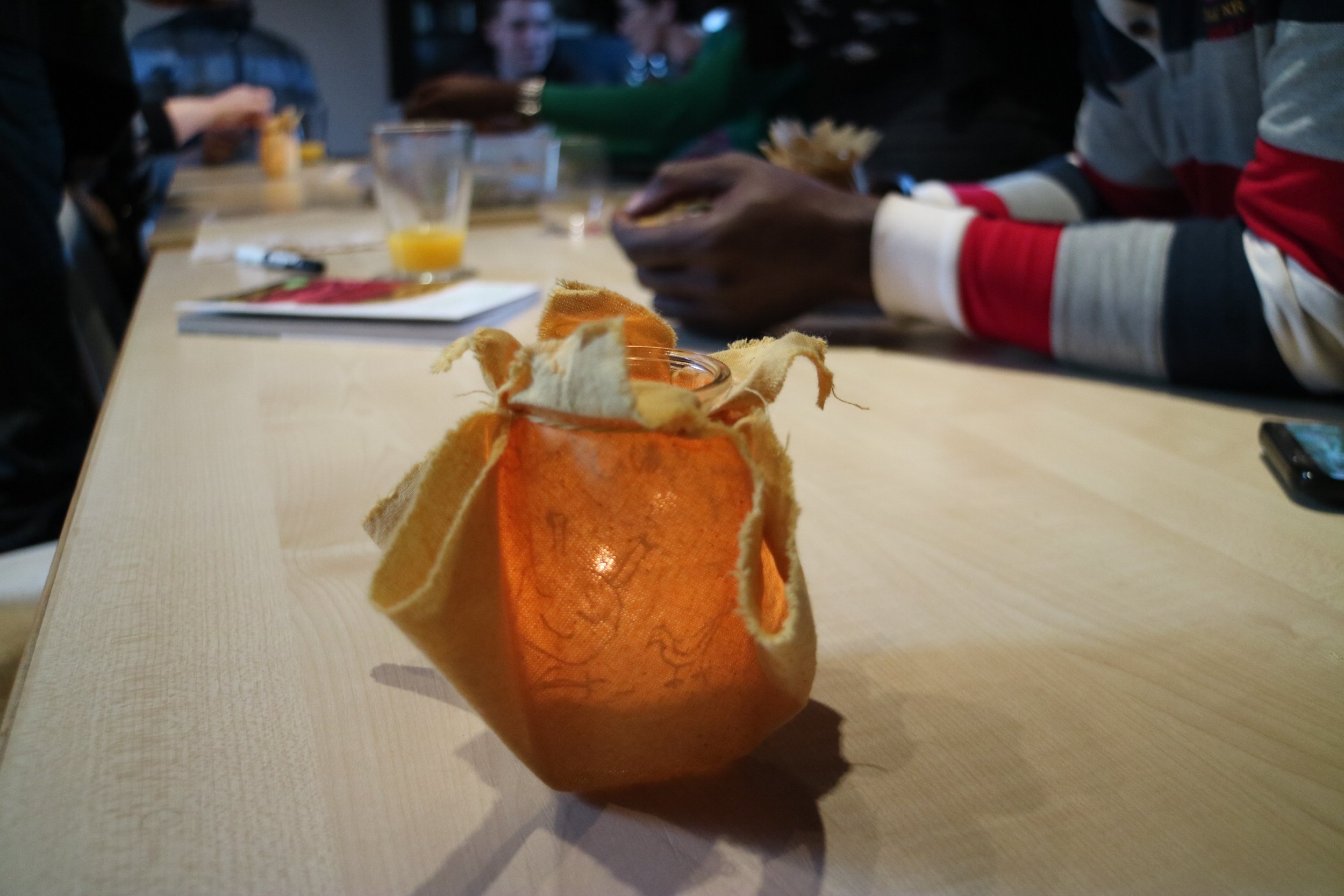
Symposium Culture and Mental Health: Refugees
Dr. Guislain Museum, the internationally renowned mental health museum in Belgium, is organising a symposium on culture, mental health and refugees at Leeds Arts Gallery on Saturday 20 January 2024. They will also be launching the call for contributions for the International Conference on Culture and Mental Health: Refugees on 28 and 29 November 2024 in Belgium.
A growing number of studies show how forcibly displaced people make a positive contribution to society. As has been recently advocated by the World Health Organisation (WHO) we can enhance their potential by ensuring that they are in good physical and mental health. Therefore it is important according to the WHO to support the arts, as investing in the field is an investment in the mental, physical and social health of forcibly displaced people. This symposium brings experts from the UK and Belgium to share local experiences, practices, and knowledge about the importance and impact of culture on improving mental health, wellbeing, and resilience of refugees.
This symposium takes place prior to the International Winter School Cultural Heritage & Wellbeing: Textile Cities from 22 to 26 January 2024 in Leeds. This international training event is organised by Dr. Guislain Museum in cooperation with Leeds Museums and Galleries and Arts & Sciences University College London.
PROGRAMME:
Welcome from Leeds
Daniela Nofal, Counterpoints Arts (UK) on the report 'Arts, Refugees and Mental Health' published by The Baring Foundation.
Bart Marius, Dr. Guislain Museum (Belgium), is leading an internationally renowned museum about mental health that uses its museum grounds as a place of care. Their focus is on creative community engagement with refugees in cooperation with neighbourhood health centres.
Nadia Babazia, Red Star Line Museum (Belgium), stories of people and migration form the red thread that runs through the Red Star Line Museum in Antwerp and are also the base for participation and diversity. Nadia summarizes her work as: "bringing people together".
(speaker to be confirmed), Leeds Museums and Galleries (UK)
Bart De Nil (Belgium) will introduce the International Conference Culture & Mental Health: Refugees in 2024 and launch the international call for contributions.
Q&A
Practical Info:
Where: The Henry Moore Lecture Theatre in Leeds Arts Gallery. Get directions with Google Maps
When: 20 January 2024, 14h – 16h (doors open at 13h45).
Registration: Attendance is free, but we ask to register here.

Transformation/ Camille Robcis
Title: Disalienation: Politics, Philosophy, and Radical Psychiatry in Postwar France
This talk maps the intersections of politics, philosophy, and radical psychiatry in twentieth-century France. It focuses on a psychiatric movement called “institutional psychotherapy” which had an important influence on many intellectuals and activists, including François Tosquelles, Jean Oury, Felix Guattari, Frantz Fanon, Georges Canguilhem, and Michel Foucault. Anchored in Marxism and Lacanian psychoanalysis, institutional psychotherapy advocated a fundamental restructuring of the asylum in order to transform the theory and practice of psychiatric care. More broadly, for many of these thinkers, the asylum could function as a microcosm for society at large and as a space to promote non-hierarchal and non-authoritarian political and social structures. Psychiatry, they contended, provided a template to better understand alienation and offer perspectives for “disalienation.”
Bio:
Camille Robcis is Professor of French and History at Columbia University. She specializes in Modern European History with an emphasis on gender and sexuality, France, and intellectual, cultural, and legal history. She is especially interested in the intersections of politics and ideas. She is the author of The Law of Kinship: Anthropology, Psychoanalysis, and the Family in France (Cornell UP, 2013) and of Disalienation: Politics, Philosophy, and Radical Psychiatry in Postwar France (Chicago UP, 2021). She is currently working on a new project, The War Against Gender.
Practical Info:
When: December 14 - 8:00 pm
Where: Museum Dr. Guislain
Free registration HERE

Transformation/ Noelle Coelho
Title: Memory, Art and Resistance: Gender-Based Violence in the Favelas of Maré
The talk will aim to reflect on the relation between memory, art, and resistance based on the experiences of women affected by gender-based violence in Maré. Maré is the largest group of favelas in the state of Rio de Janeiro, with approximately 140 thousand people, mostly black (62.1%) and female (51%), distributed across sixteen favelas. In terms of population, Maré is the ninth most populous neighbourhood in the city of Rio de Janeiro and, in size, is larger than 96% of Brazilian municipalities. Although located in the heart of the city, Maré has one of the worst Human Development Indexes (HDI) in Brazil. For this exchange, the trajectory and outcomes of different projects that have been implemented with women affected by violence in Maré, through partnerships between universities and civil society organisations, between 2018 and 2023, will be presented. The projects, in which women played a central role at all stages, raised subjects such as ancestry and memory, colonial heritage and institutional violence, intersectionalities of race, gender and sexuality, resistance strategies and art. Through this exchange, we hope to think together about the political place of memory in the construction of multiple processes of resistance.
Bio:
Noelle Coelho Resende has a PhD in law and is a psychoanalyst who dedicates herself to working in the field of care and institutional violence. Inspired by the work of Fernand Deligny, she is interested in thinking about care from a territorial, cartographic and collective perspective. In recent years, she has worked on different projects with women affected by gender-based violence. She is currently a post-doctoral researcher at the Fundação Oswaldo Cruz (Ministry of Health/Brazil), involved in participatory projects to develop health initiatives in vulnerabilised territories. With 15 years' experience in the field of human rights protection and state violence, she was president of the Human Rights Council of the State of Rio de Janeiro, participated in the monitoring of the National Truth Commission and was responsible for the investigation on Torture and Deprivation of Liberty in the Subcommission of Truth of the state of Rio de Janeiro.
Practical Info:
When: 9 NOV - 8:00 pm
Where: Museum Dr. Guislain
Free registration HERE
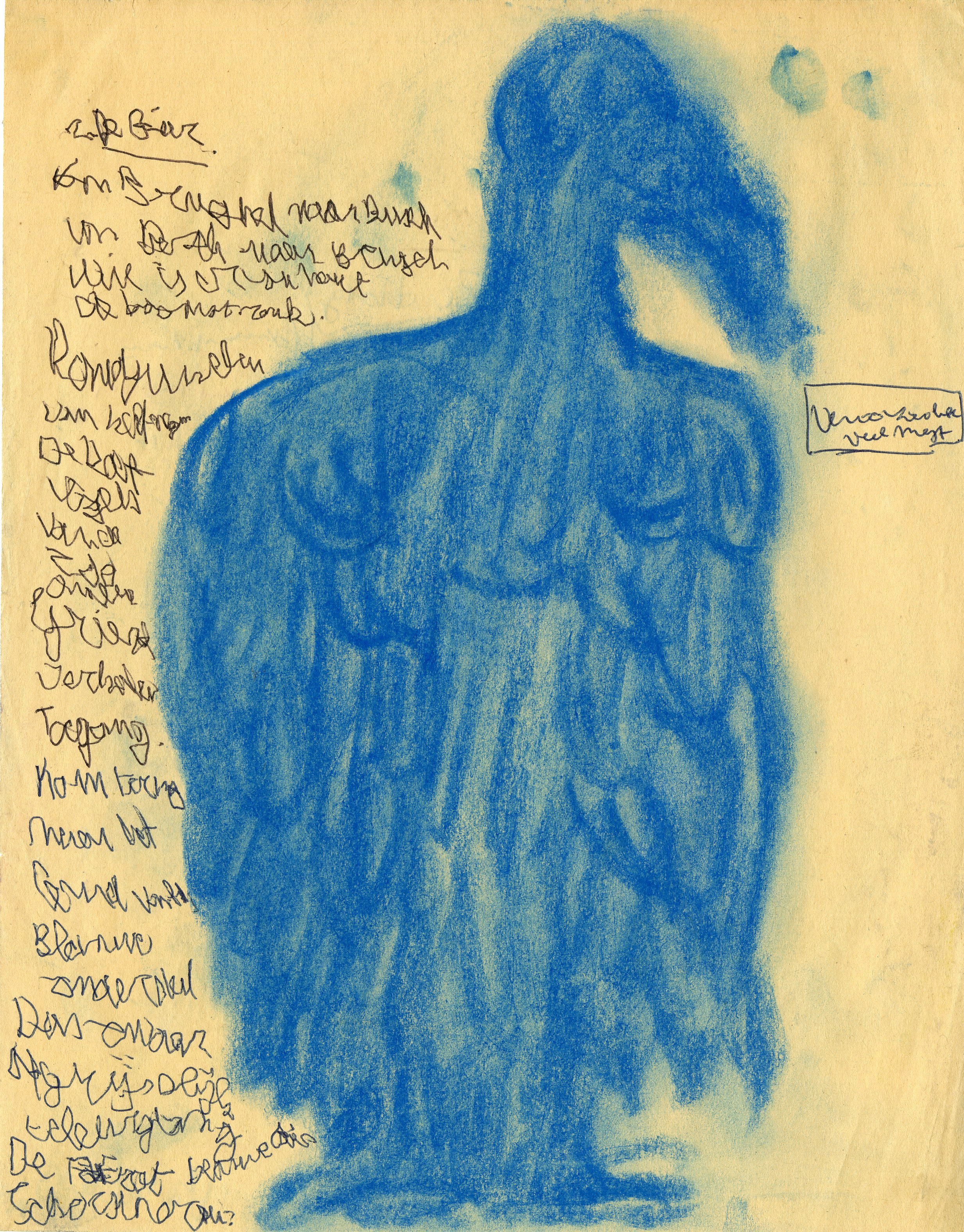
Untitled
Nothing is as it seems at the Dr. Guislain Museum. Neither the buildings, people, histories, nor arts allow you to pass judgment on the truth. The new exhibition Untitled adds new elements to these illusions. It reaches out to the voiceless, the invisible, and the anonymous artists.
Today identity is a central theme in political and social debates. In search of their role in society, museums also question themselves. They are transforming into creative breeding grounds where different interest groups are given a forum. But what about the voiceless? The unknown artists with oeuvres without context?
Georges Van de Walle
While classical art museums use categories, schools, and art movements to grasp the artistic reality, Untitled plays the game without all those rules.
Dr. Guislain Museum serves up the tried-and-true recipe of Fine Arts and Contemporary Art. A chronology of icons, historical works, religious scenes, and fascinating still lifes are awaiting. But nothing is what it seems. The division is a product of imagination, simply to underscore the unnatural division between players and outsiders.
Artists without an audience or network are outside the classic role-playing, but Dr. Guislain Museum captures the void within its walls. The fact that most works are untitled and/or their creators remain unknown does not mean they lack meaning. If art is supposed to speak for itself, and the life of an artist is of no importance in finding meaning in a work, then Untitled is an invitation to assess the value of these works for yourselves.
Let yourself be guided by the confusion inherent in this magical place where every prejudice dissolves into nothingness.
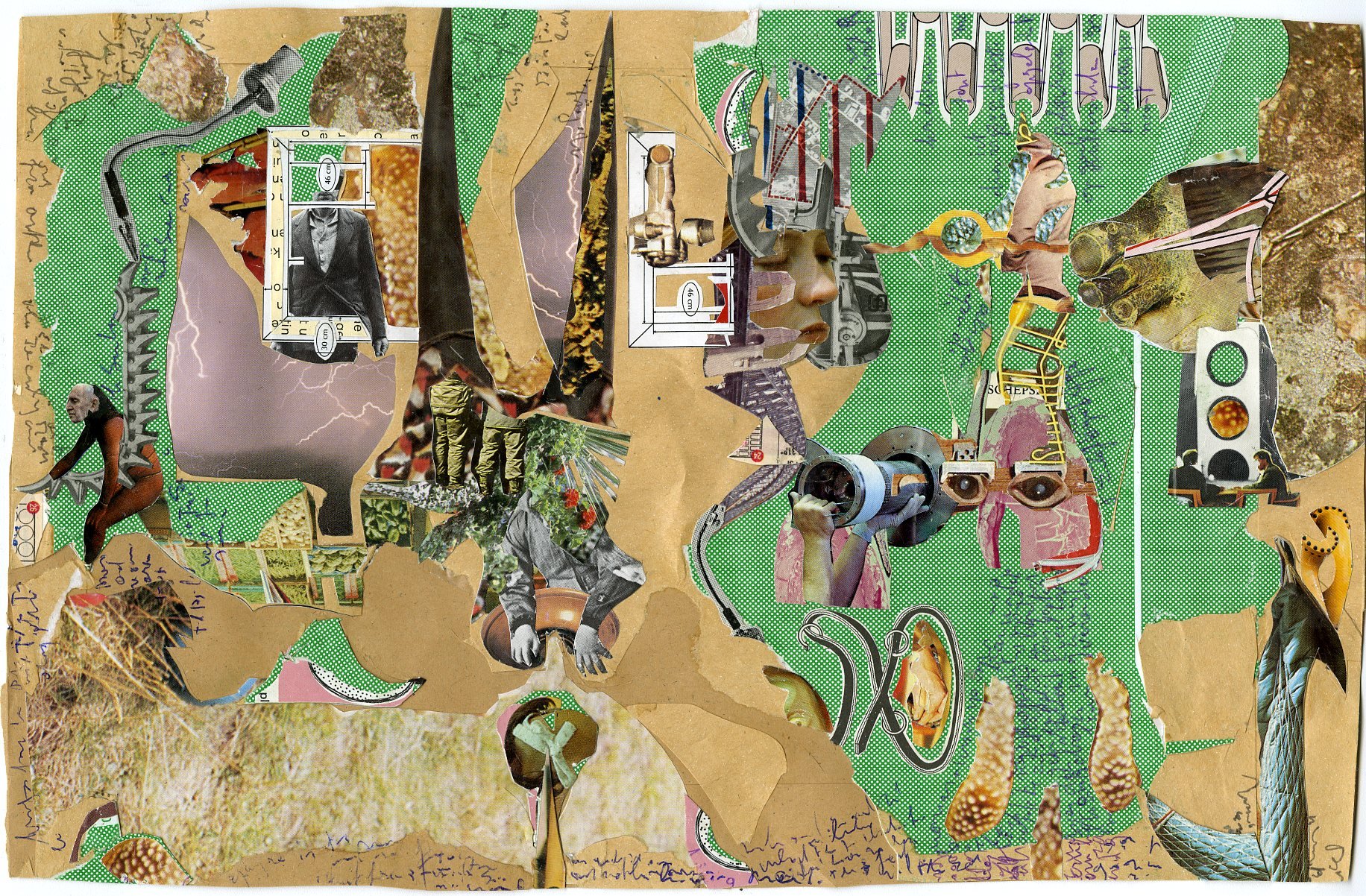
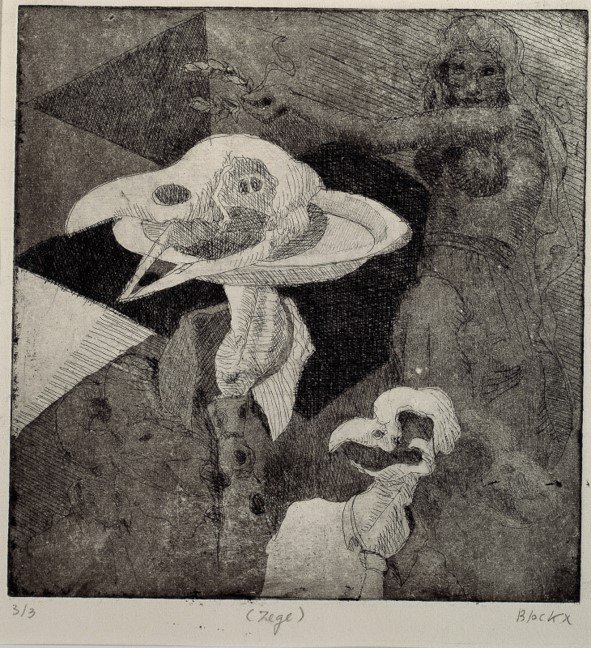
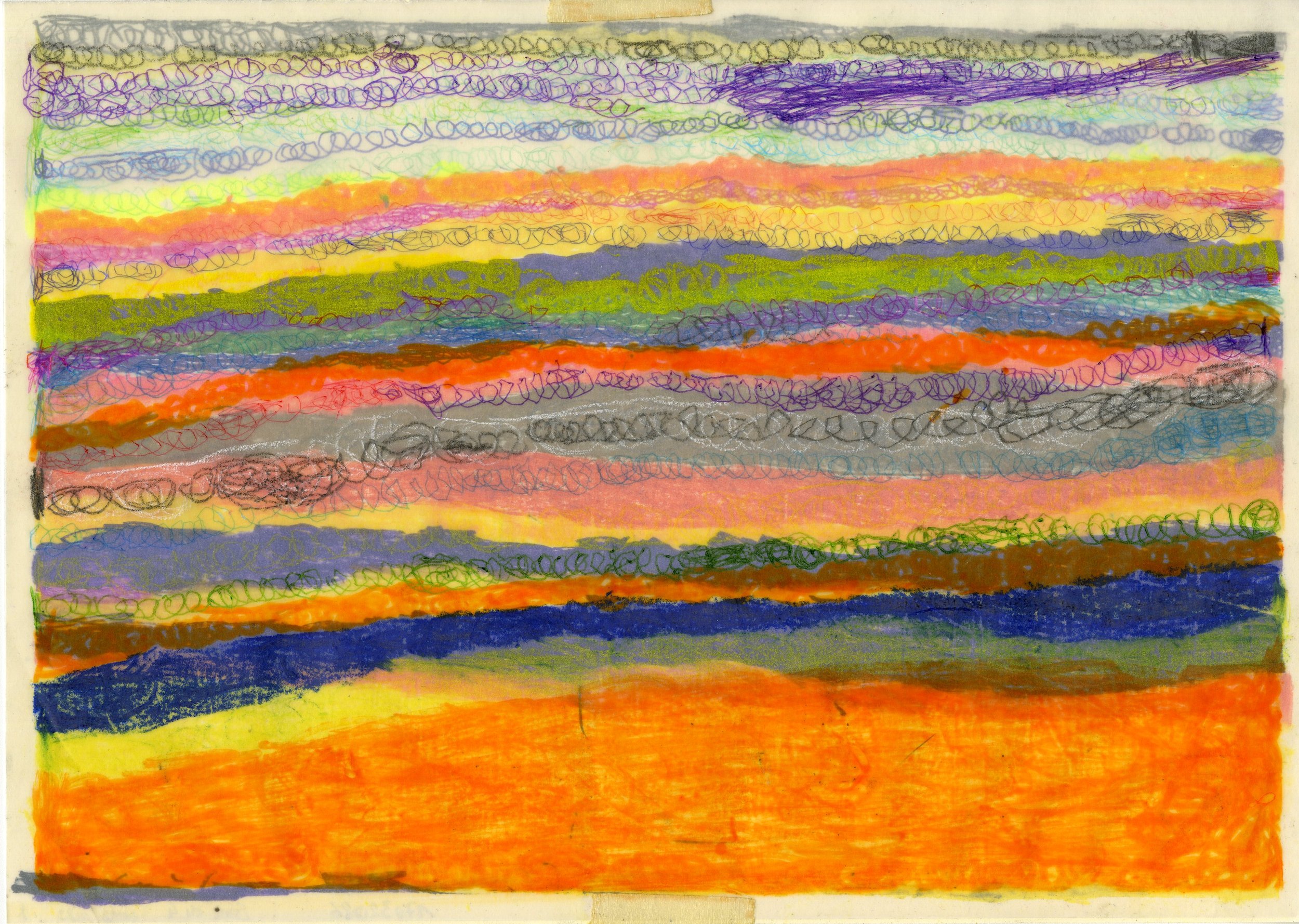
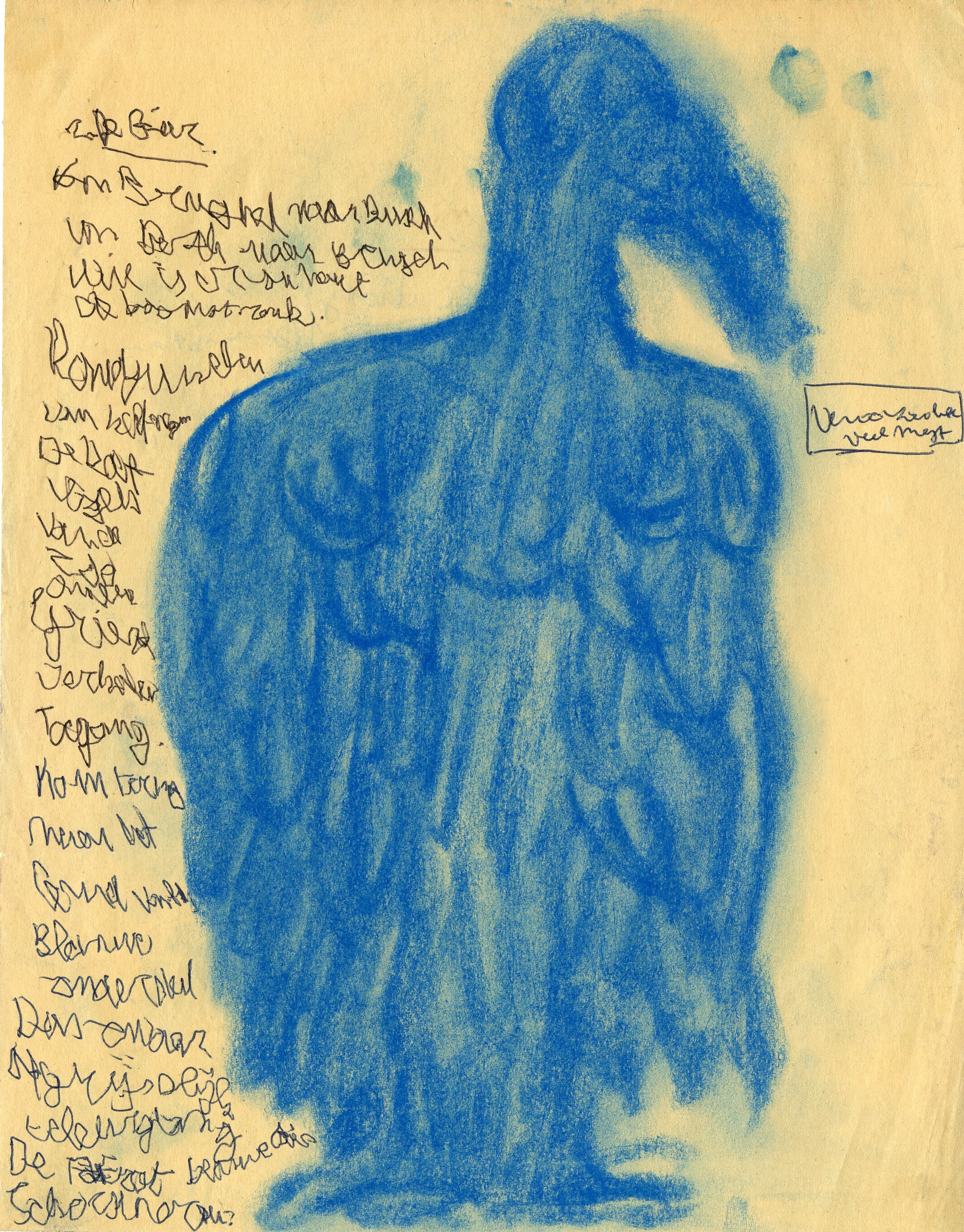
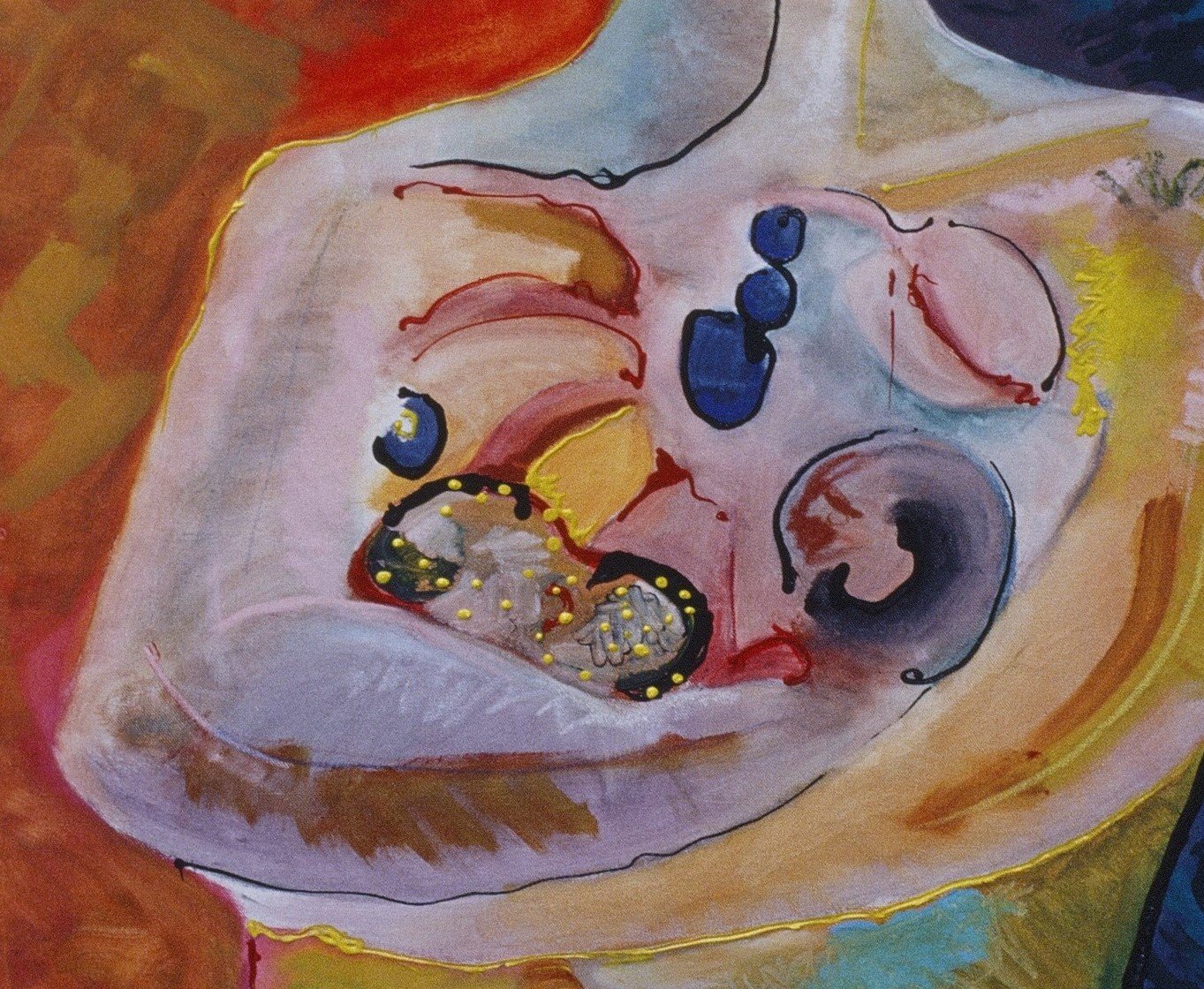
Perspectives on Arts & Health
By Dr Bernardine Farrell
On Thursday, September 28, 2023, the 3i University Network is hosting a day where arts and health meet.
The universities of Ghent, Leuven, Lille, and Kent (known as the "3i University Network") welcome the curious, the interested and the professionals to the Museum Dr. Guislain for a day full of discussions, roundtable talks, a friendly lunch, and a reception.
The universities' researchers will be sharing new developments in the field of health humanities. This field brings together academics, non-governmental organizations, healthcare professionals, policymakers, and the public to create positive changes in the areas of heritage, culture, and wellbeing.
The event takes place in a warm, open, and friendly atmosphere. Everyone is warmly invited to listen, speak, and explore!
DETAILS
Join us? Sign up here.
Where? Museum Dr. Guislain
When? Thursday, September 28 | 10:15 AM - 6:00 PM
Pricing? Standard: €10 | Student: €5 | Social rate: €2 (lunch included)
PROGRAM
-
Bart Marius, artistic director Museum Dr. Guislain, Belgium
-
This talk will highlight key issues and interventions in the critical medical humanities, offering an overview on current and future directions in the field.
Dr. Arya Thampuran, assistant professor, Institute for Medical Humanities, University of Durham, UK -
-
We will reflect on the possibilities of podcasting as a medium and what it teaches us about the general opportunities and challenges of public engagement with research.
Dr. Dieter Declercq, senior lecturer in film and media, University of Kent, UK
Elena Dikomitis, podcaster and humanitarian aid worker, Belgium
Silke Vanhoof, neurodivergent researcher and dramaturg, WeThePeople, Belgium -
-
Questioning Health Narratives
Prof. Simona De Iulio and Prof. Laurence Favier, information and communication sciences, University of Lille, France
Eating together – a therapeutic art?
Dr. Bernardine Farrell, researcher, University of Kent & FoodSEqual project, Universities of Reading/Plymouth, UK
Body Diversity on Display: Experiences and Reflections from a Museum in the Making
Dr. Tinne Claes and Annelies Vogels, Vesalius, KU Leuven & UZ Leuven -
-
We will discuss what could be meant by the word ‘therapy’ - its goals and effects; artistic objects and practices; and its 'value' amongst different forms of arts therapy.
Prof. Jürgen Pieters, literary theory, University of Ghent, Belgium
Sharmila Madhvani, psychologist and author, Belgium
Simon Allemeersch, researcher, faculty of psychology and educational sciences, University of Ghent, Belgium & theatre maker/author, Belgium
Sabrina Vanpoucke, art therapist and lecturer music therapy, Arteveldehogeschool, Belgium -
Prof. Tessa Kerre, Head of Clinic, Ghent University Hospital
Prof. Piet Bracke, health sociologist at University of Ghent
Dr. Fleur Helewaut, general practitioner, Belgium -
English will be the main language during this event.
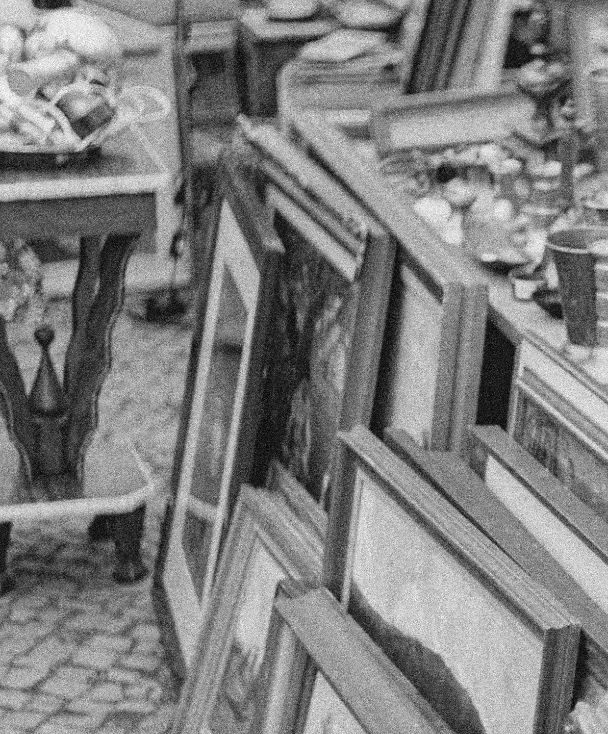
Flea Market
In the courtyard of the Museum Dr. Guislain a flea market takes place on Tuesday 15 August from 11 am to 6 pm.
Come and nose around or register for a free location via info@museumdrguislain.be (pass on your name, address and phone number). You can find all information and regulations here below.
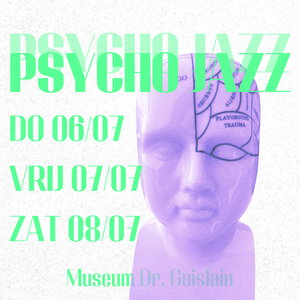
PSYCHO JAZZ
THREE DAY MEETING
Thursday 06/07 18h-22h Free
The Wild Classical Music Ensemble
Blue Flavour
Friday 07/07 14h-18h Free
Goeste Majeur Fanfare
Bart Maris & Giovanni Barcella Duo
Saturday 08/07 14h-22h Free
BackBack
Slapstick – Applausorkest (Applause Orchestra) (Stefaan Dheedene)
Directed by Paola Bartoletti – Dick van der Harst – Fulco Ottervanger
In collaboration with WIT.H & Lucinda Ra

Summer 2023 at Museum Dr. Guislain
Summer starts! Meet us at Museum Dr. Guislain for refreshment and fun.
Check the program:
Sea Legs / 5 July
Go together on a yoga and motion adventure on the track of the exhibition The Gust of Wind.
More information or your registration here.
Psycho Jazz / 6 July / 7 July / 8 July
Enjoy this three day musical meeting. It is totally free! Discover the program here.
(with the support of VDK Bank & City of Ghent)
Flea market / 15 August / 12h-18h
Find the best bargains at the courtyard of Museum Dr. Guislain.
Exhibition The Gust of Wind / all summer long
Escape the heat and discover how a limitation can also become a force. More information? You find it here.
Exhibition SAFE ( R ) SPACE / all summer long
Young people allow you in their safe space. Discover their story about their search for gender expression and identity. Do you want to know more? Click here.
DISCOVERY TRAILS // all summer long
1// Teenager Search (11-13 years)
Bring out your inner Sherlock Holmes. Ask for it at the ticket counter.
2// Family Trail Safe ( r ) Space (2-11 years)
What do you need to be yourself? Ask for it at the ticket counter.
3// Treasure Hunt The Gust of Wind (2-11 years)
Find the treasure! (Free) registration here.
CAFE HET BADHUIS (the bathhouse) // all summer long
Enjoy something fresh or tasty thanks to Pardon Servies (Excuse me service) (Wednesday-Friday). A project which supports young people in search for a job in hospitality.
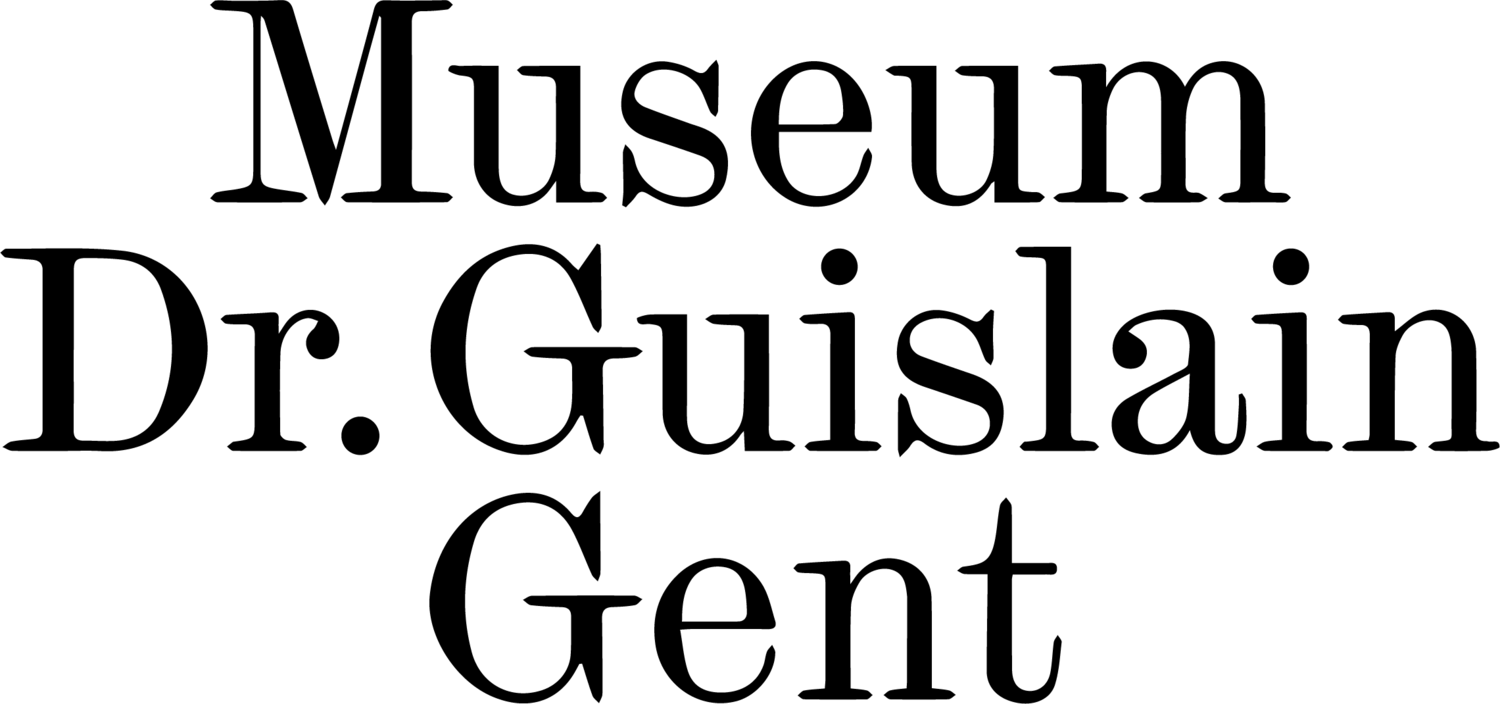





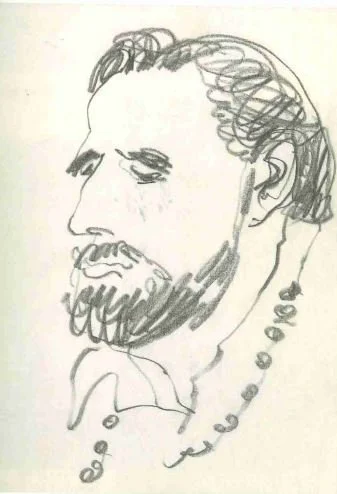

















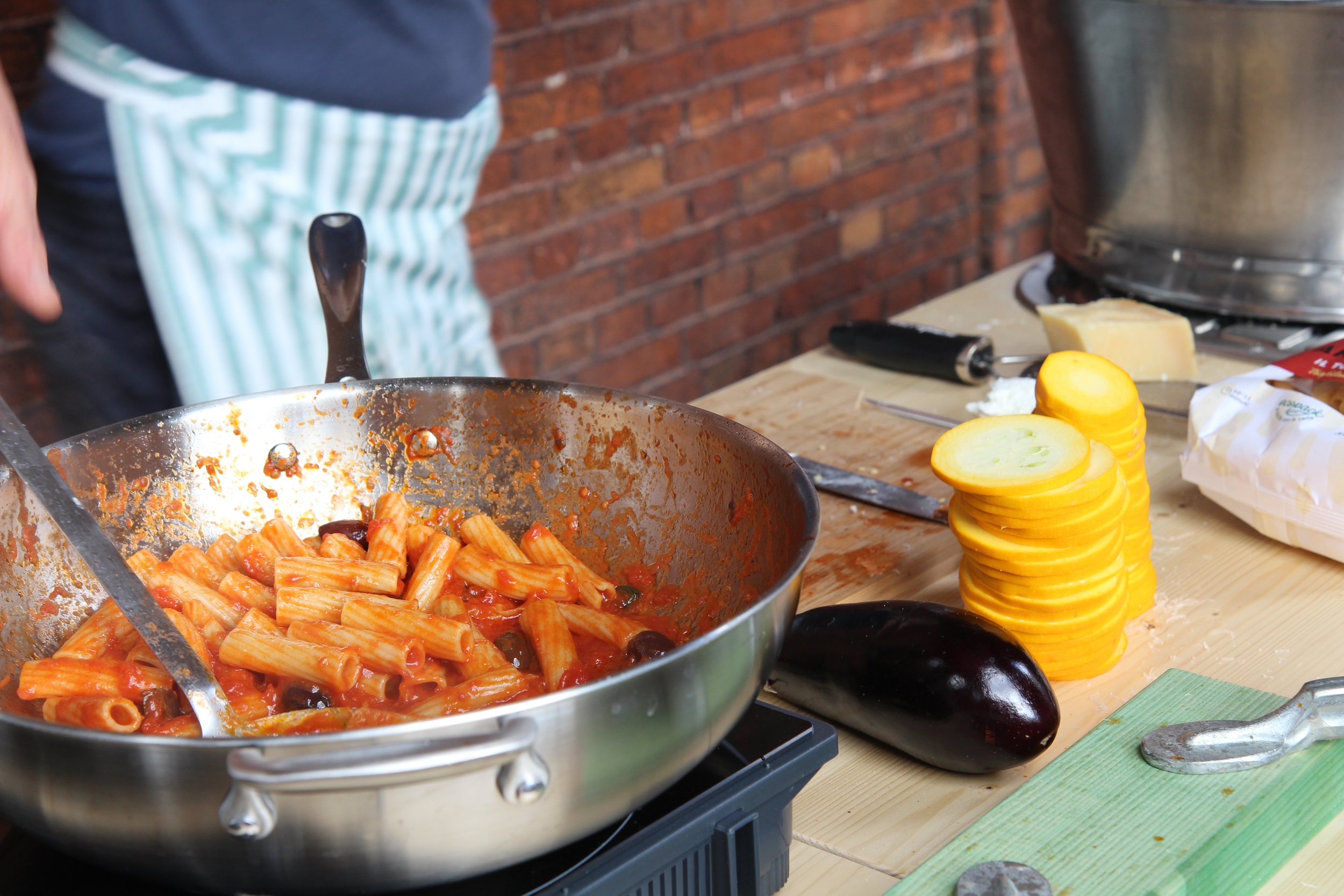
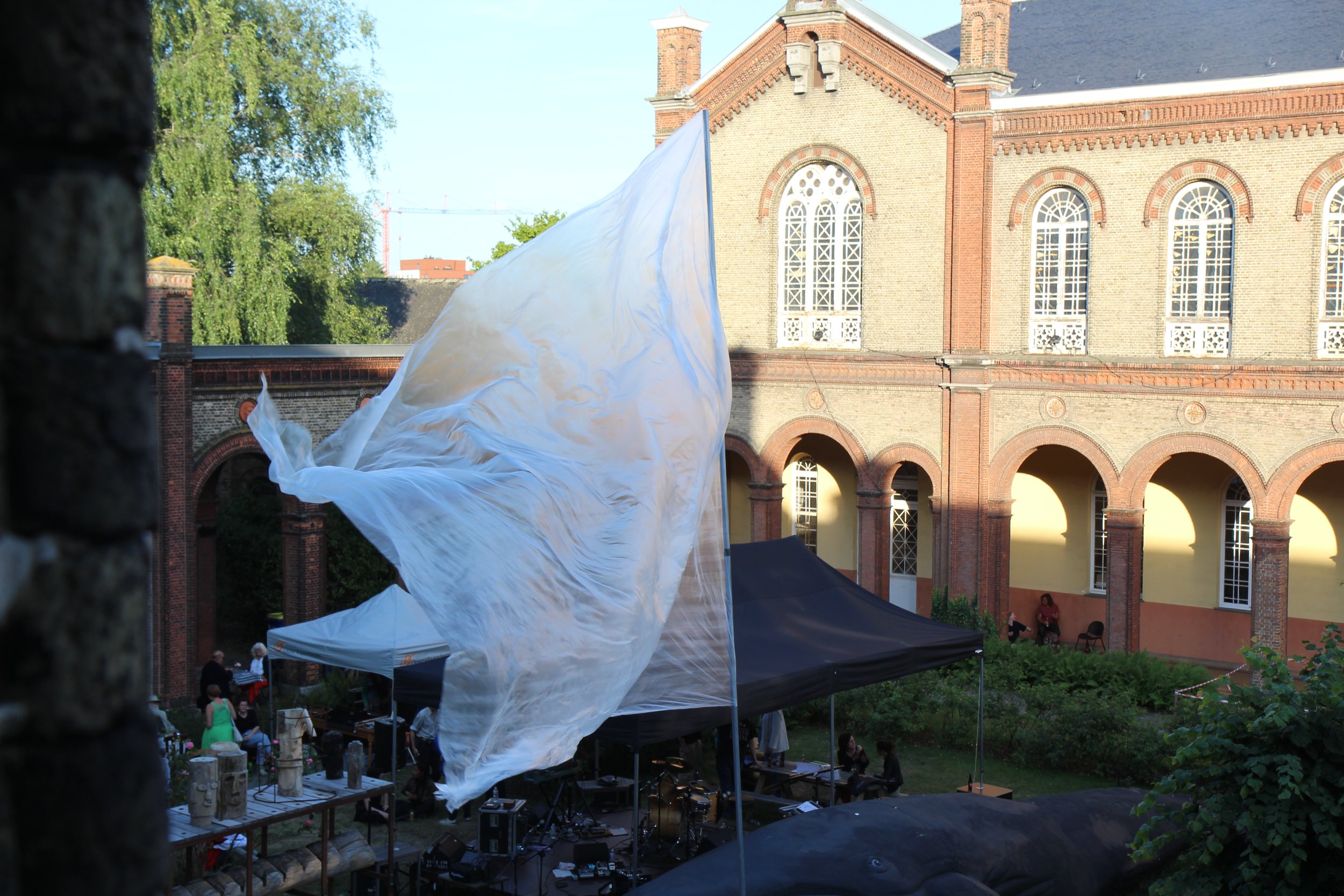
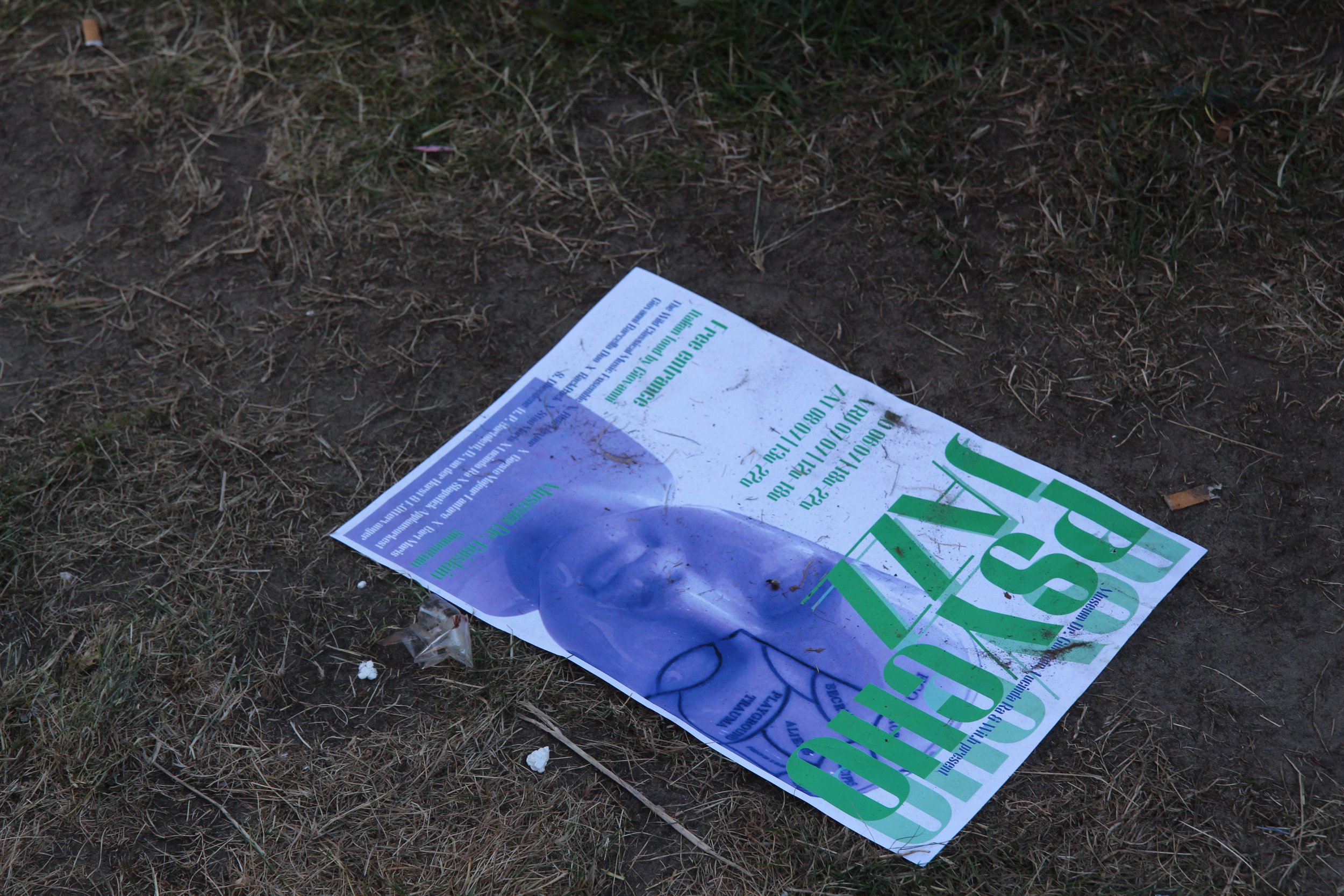
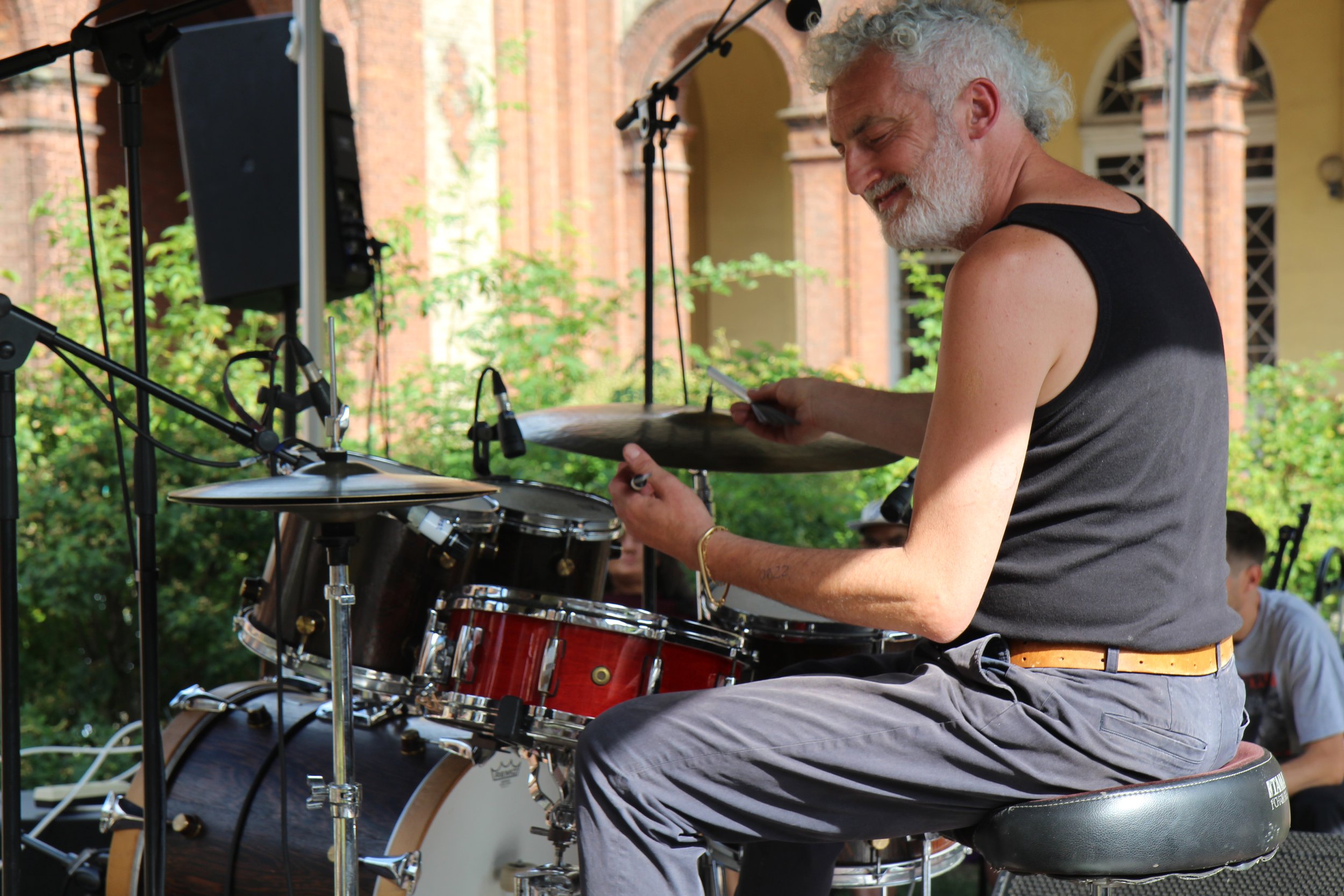
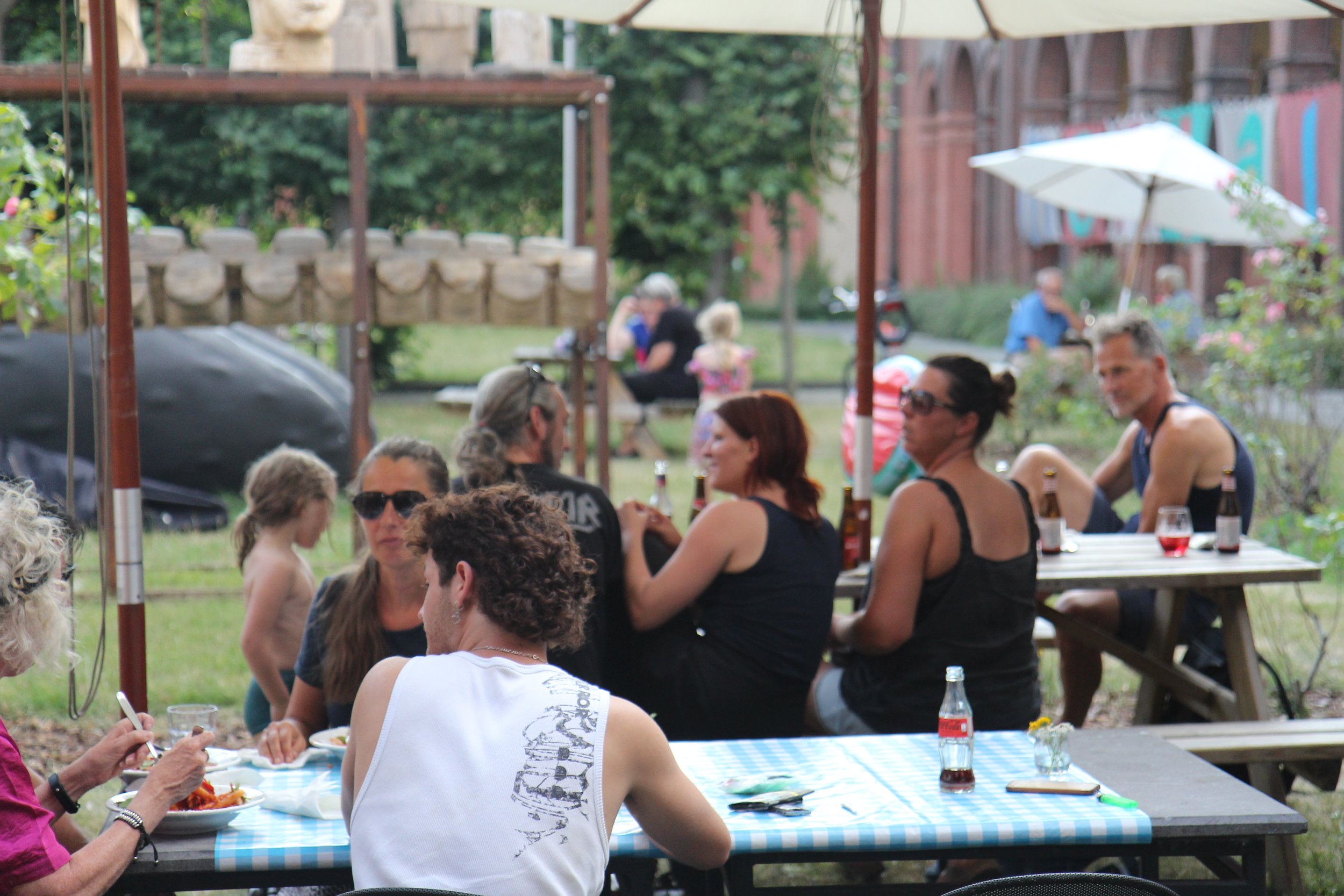
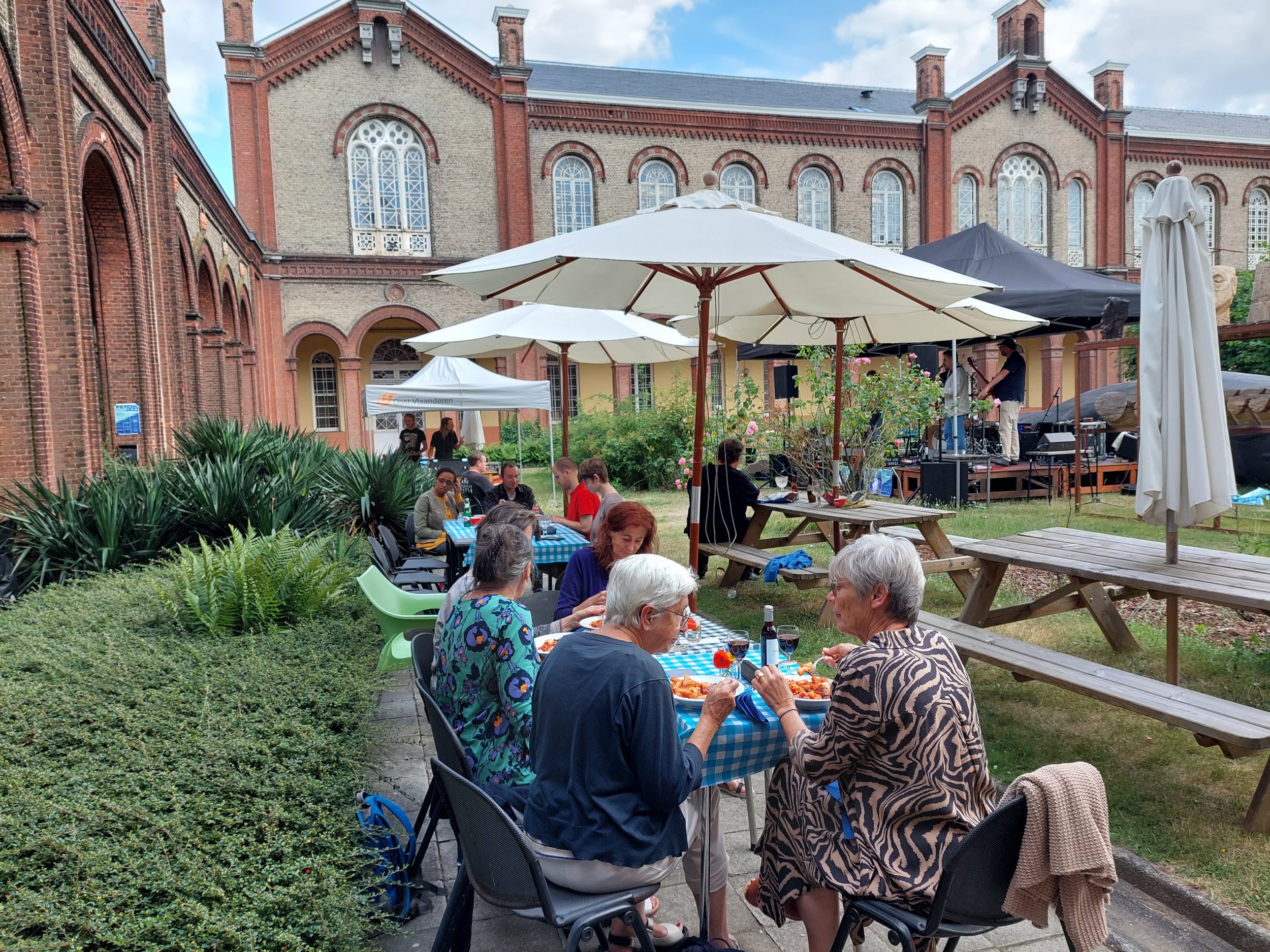
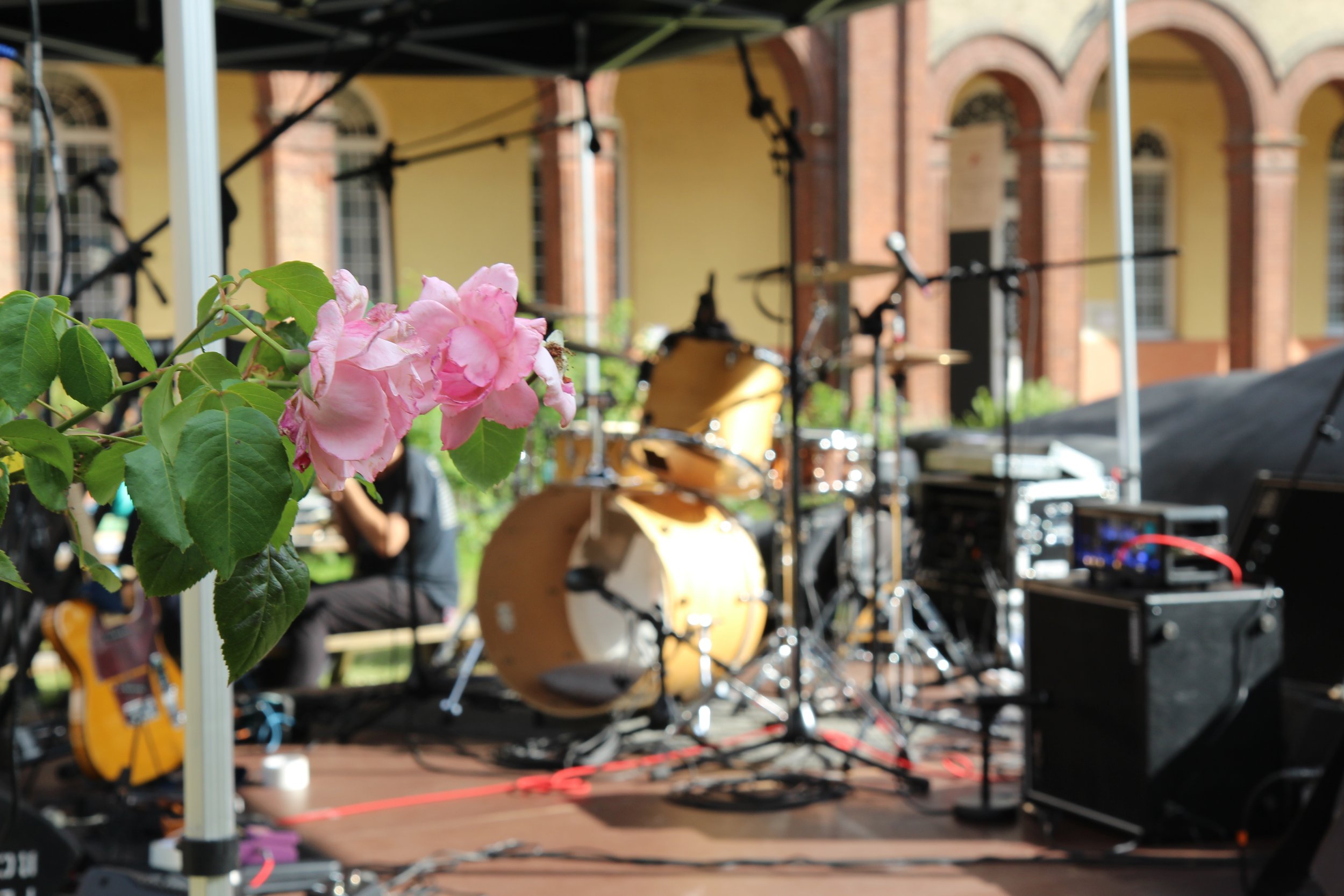
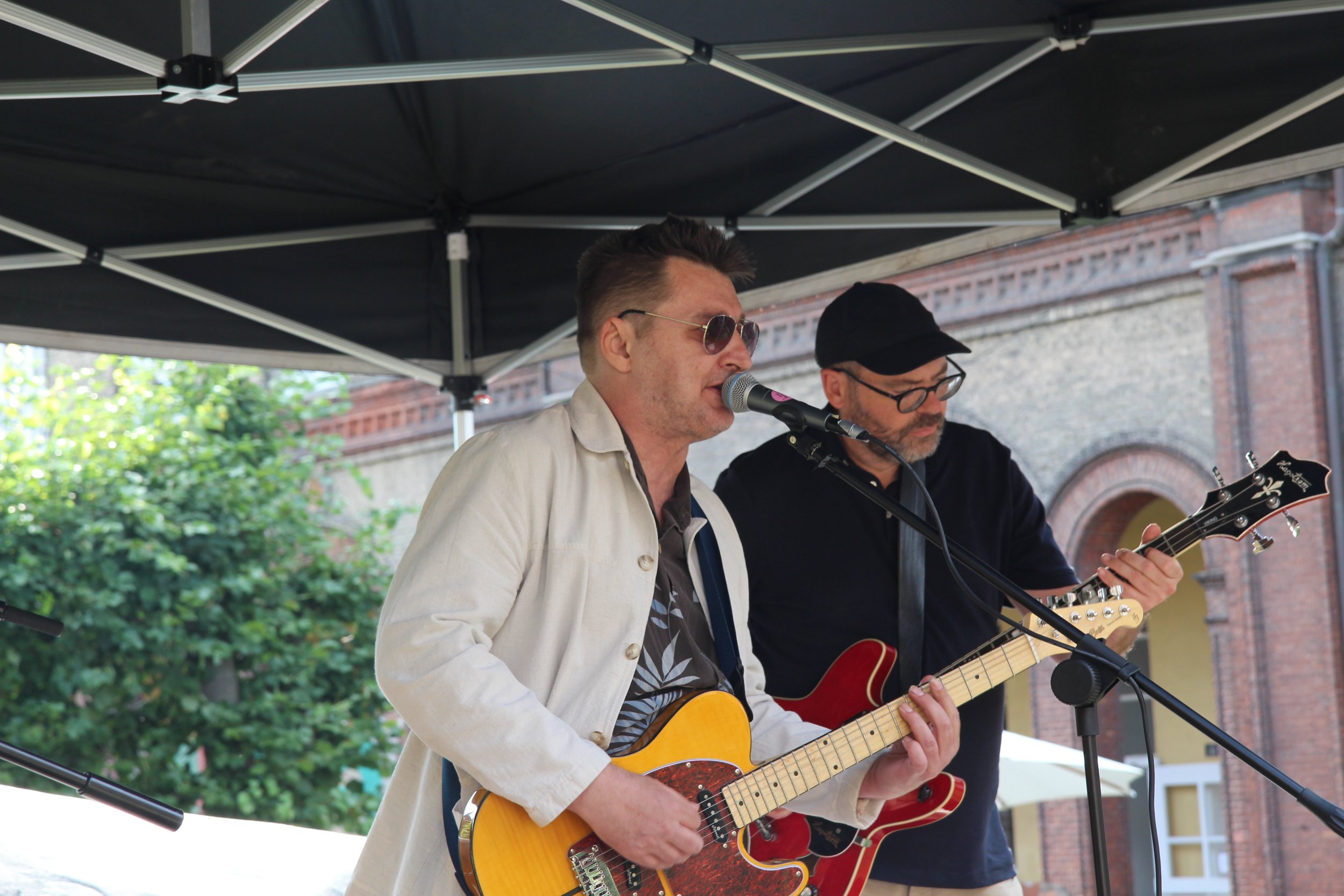
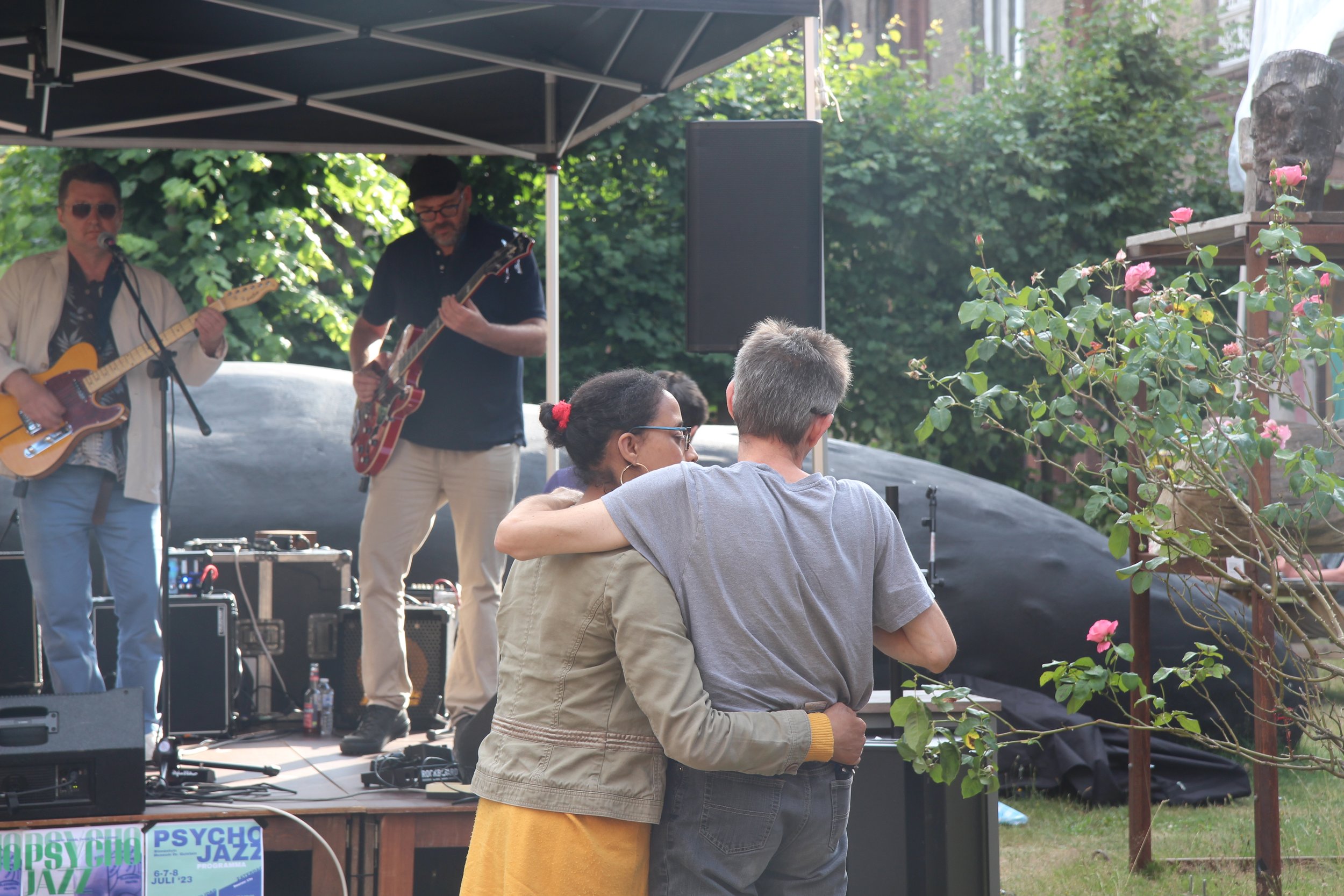
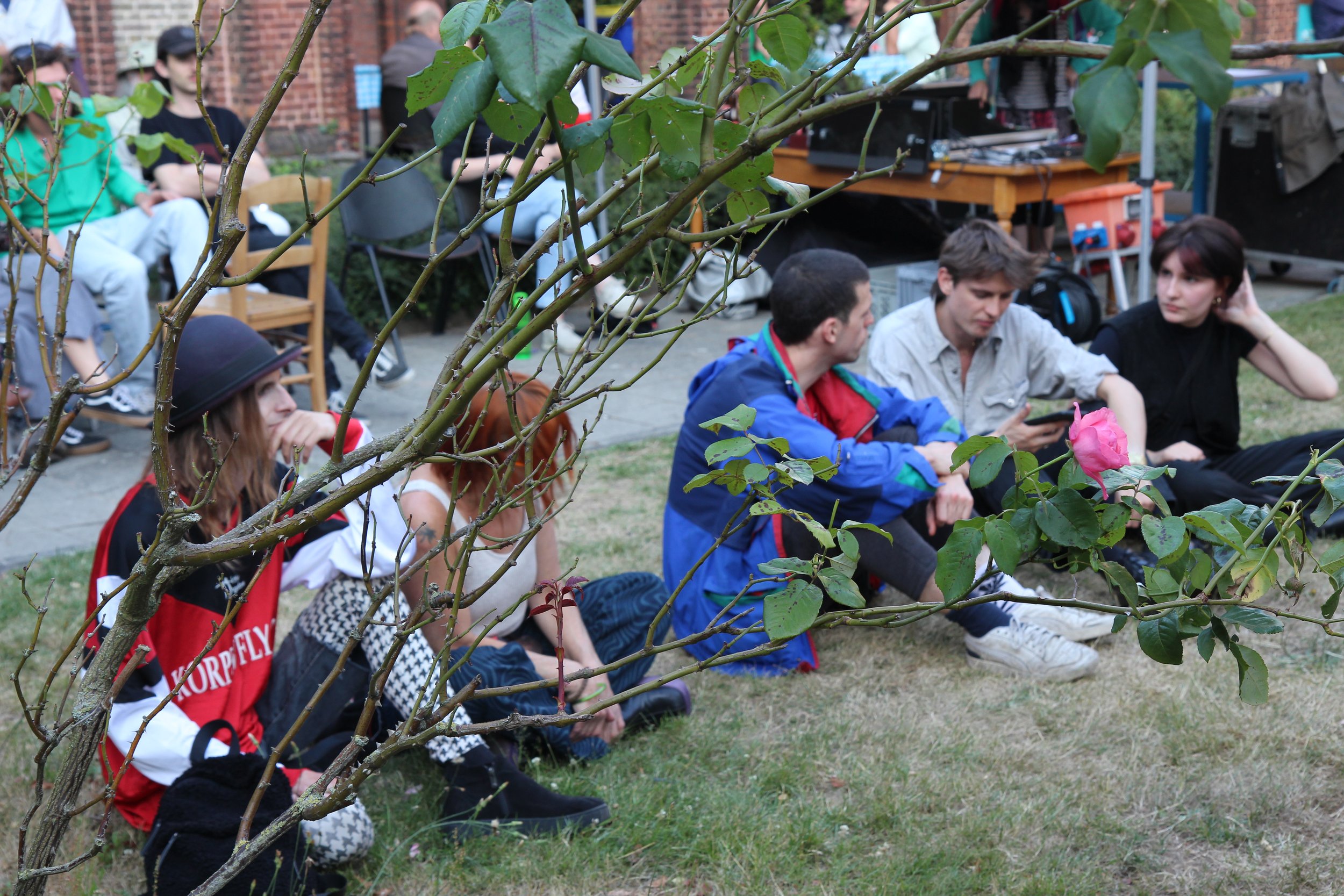

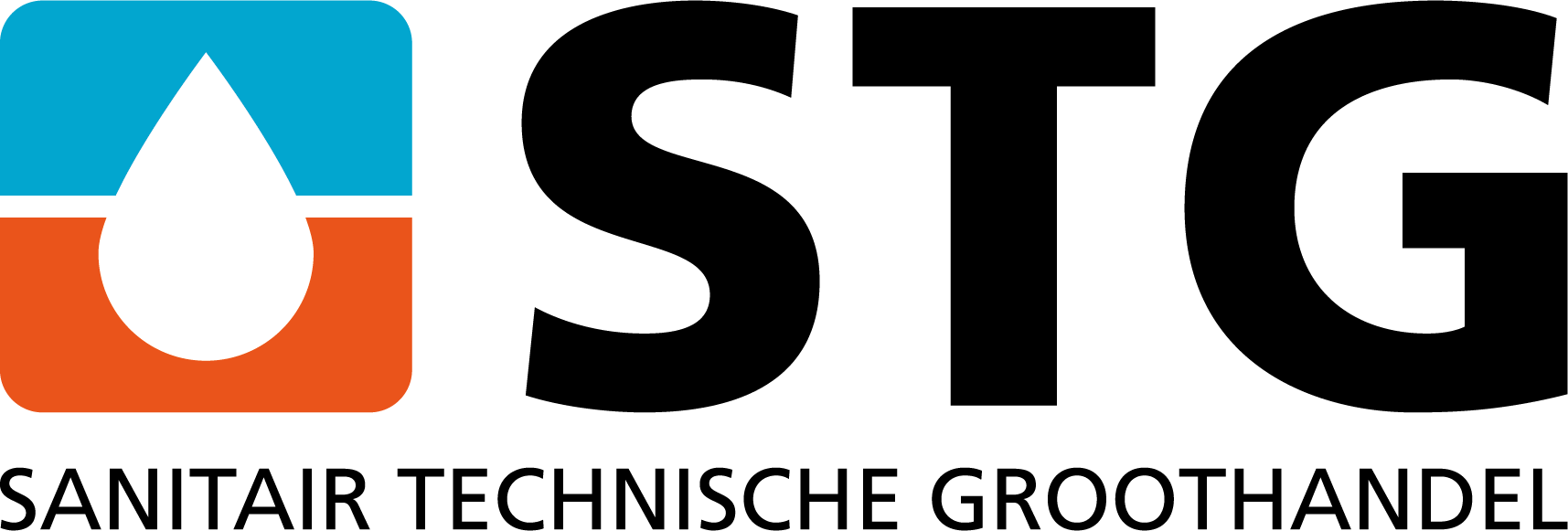



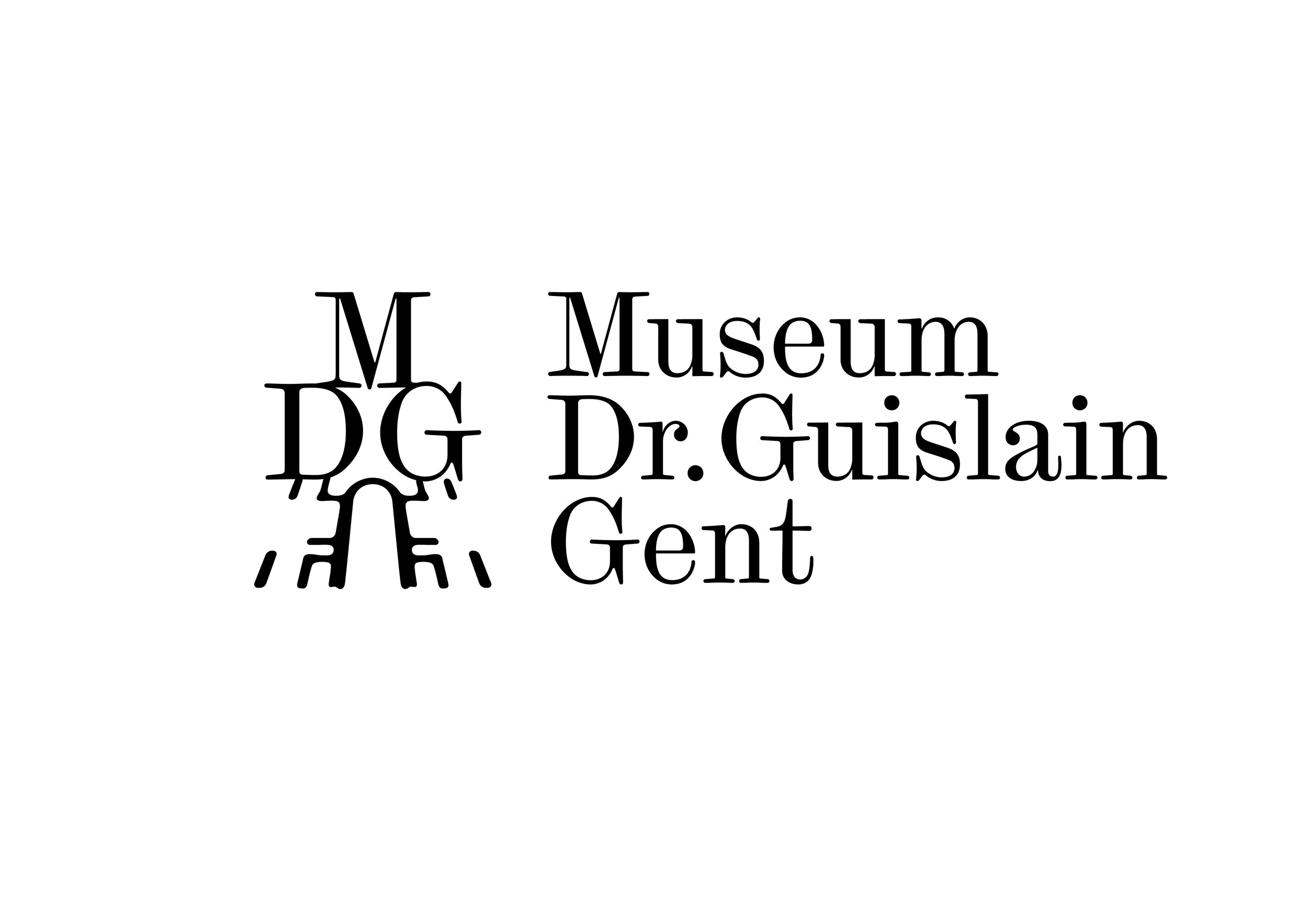

![logo_erkendmuseum_rgb[1].JPG](https://images.squarespace-cdn.com/content/v1/60eed83e54d87837c4bba258/1705412062315-9095KV9BTLFQVHYWA6JR/logo_erkendmuseum_rgb%5B1%5D.JPG)


